The best beginner drones: we've tested the top flying cameras for new pilots
Earn your wings with the best beginner drones
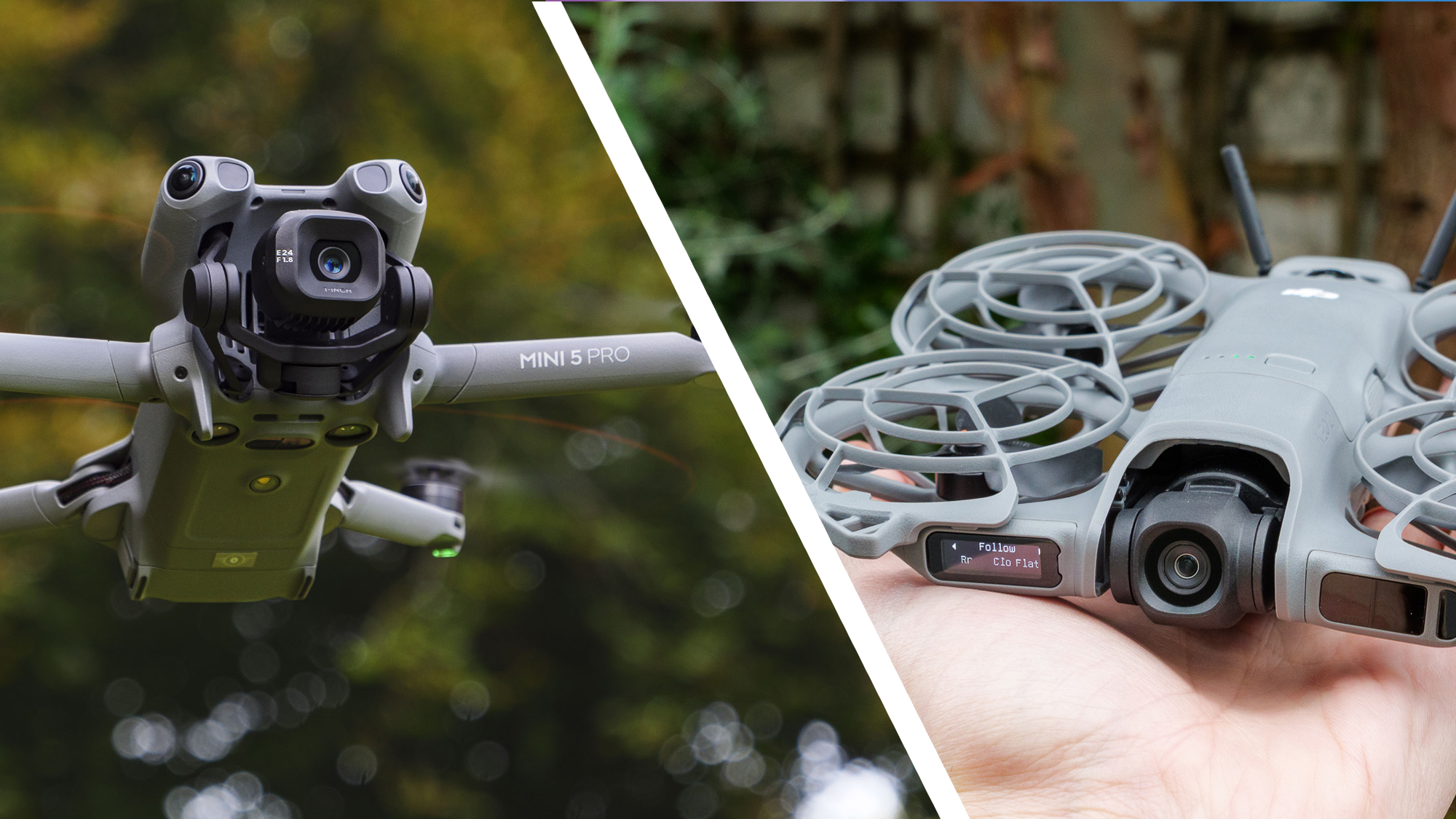
Sign up for breaking news, reviews, opinion, top tech deals, and more.
You are now subscribed
Your newsletter sign-up was successful
I and my team of drone reviewers have accumulated countless hours in the air, evaluating models that range from the ultra-affordable to the full-on professional. We all started with one of the best beginner drones, and it's thanks to this extensive hands-on testing that we have the insight to identify precisely what makes an excellent starter model. Whether your goal is taking your first steps into aerial photography, or simply enjoying recreational flight, you'll discover the top beginner-friendly options right here.
For me, the DJI Mini 4K stands out as an exceptional choice for drone newcomers. It’s lightweight, remarkably simple to control, and capable of producing crisp video footage. It also represents one of DJI's most budget-friendly offerings. For those comfortable learning without guardrails such as obstacle detection or automatic subject tracking, the Mini 4K provides an ideal introduction to drone piloting without breaking the bank.
DJI doesn't (quite) monopolize the drone market, and my recommendations include various alternative manufacturers. All the drones here come in under 250g take-off weight, allowing them to bypass most (of the ever-changing) registration regulations and, in some countries, flight restrictions. Each model has undergone thorough real-world testing, with particular attention paid to user-friendliness, reliability, and camera performance.
Whichever you pick, these models provide a solid gateway to the worlds of drone flight and aerial photography.

I'm TechRadar's Cameras Editor, with more than 15 years' experience in the photo and video industry. During that time, I've had the opportunity to fly many of the best camera drones, but I still remember my first experiences taking to the air. As a result, I've developed a practical knowledge of what makes a good beginner drone. In curating this guide, I've tried to cover a range of beginner drones for different buyers. Some are affordable, entry-level options. Others are mid-range models that cost more, but give learners more possibilities as their skills improve. If you're in the US, it could pay to explore DJI alternatives, due to the DJI ban.
Why you can trust my judgement
Every drone in this guide has been put through its paces by an expert reviewer – either myself or one of my highly experienced team. Most of us are based in the UK and have gained the A2 Certificate of Competency (A2 CofC). Collectively, we have amassed hundreds of hours of practice spanning the last 15 years.
We test all types of consumer and prosumer drones, ranging from budget sub-250g models (which all of the drones in this particular guide are) to premium triple-camera beasts. The quality of a drone's camera is a main area of focus, but I and my team also fly for the sheer fun of it.
☑️ 10s of drones reviewed
☑️ 15 years of product testing
☑️ Over 16,000 products reviewed in total
☑️ Nearly 200,000 hours testing tech
Each drone in this guide has earned its place for particular reasons, whether that's down to the flight experience, accessibility, affordability, reliability, on-board features, or camera quality. For each model, myself or the tester has written an in-depth review to share our experiences, pinpointing precisely why we recommended it.
⭣ Read more
When it comes to beginner drones, their usability and flying importance is just as important as their cameras – so I and the team place equal emphasis on both during our testing.
To test the former, I run through their stabilization in the air, overall responsiveness and their top speed. Most beginner drones lack obstacle avoidance powers, but if they do have them I fly them though an obstacle course to see how well they work.
After checking the drone's battery life claims based on real-world flights, I then move onto their cameras. Most beginner drones have small sensors that struggle in high-contrast situations, but I fly them through a variety of lighting conditions to see where their breaking point is and in what conditions you can realistically expect usable footage.
I then evaluate their footage, taken at a range of frame-rates, on a calibrated monitor, alongside some of the drone's sample still photos. When it comes to image quality, I look at detail, sharpness across the frame, and high ISO noise handling. I then combine these results with our overall impression of the drone's design, features and value to produce my final verdict.
Meet the team
Collectively, our team of reviewers has amassed hundreds of hours safely testing drones in UK and US skies, covering all of the latest and greatest models since consumer-level drones became a thing.

James Abbott is a professional photographer and freelance photography journalist. He contributes articles about photography, cameras and drones to a wide range of magazines and websites where he applies a wealth of experience to testing the latest photographic tech. He's one of our top go-to drone experts.

Sam has been writing about tech and digital culture for over 20 years, starting off in video games journalism before branching out into the wonderful worlds of consumer electronics and photography. Over the years he has written for Wired, Stuff, GQ, T3, Trusted Reviews and PC Zone, and now lives on the Kent coast in the UK – the ideal place for a camera reviewer and drone pilot to ply their trade.
The best beginner drones
Why you can trust TechRadar
Below you'll find full write-ups for each of the best beginner drones in our list. We've tested each one extensively, so you can be sure that our recommendations can be trusted.
The best beginner drone overall
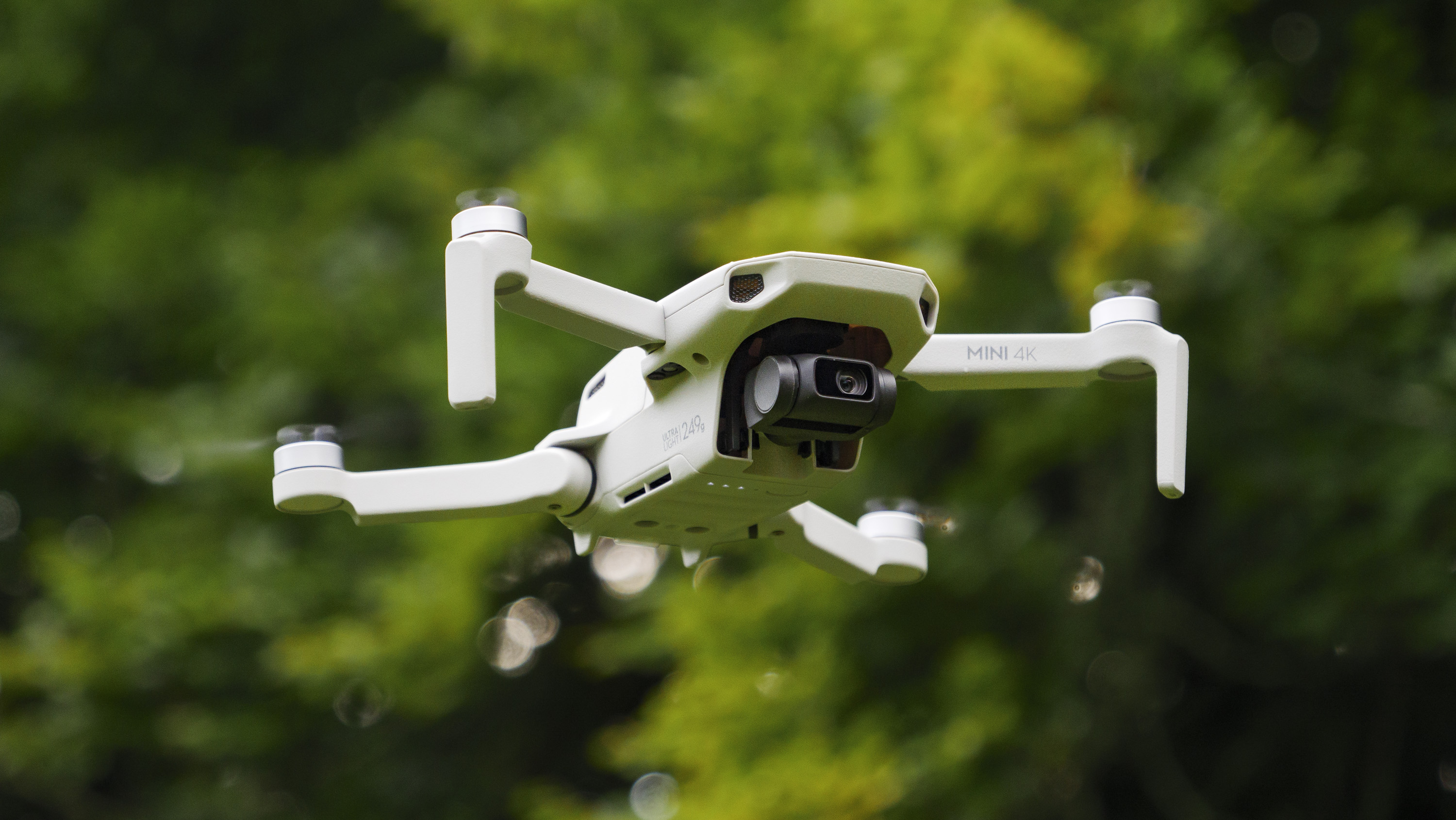
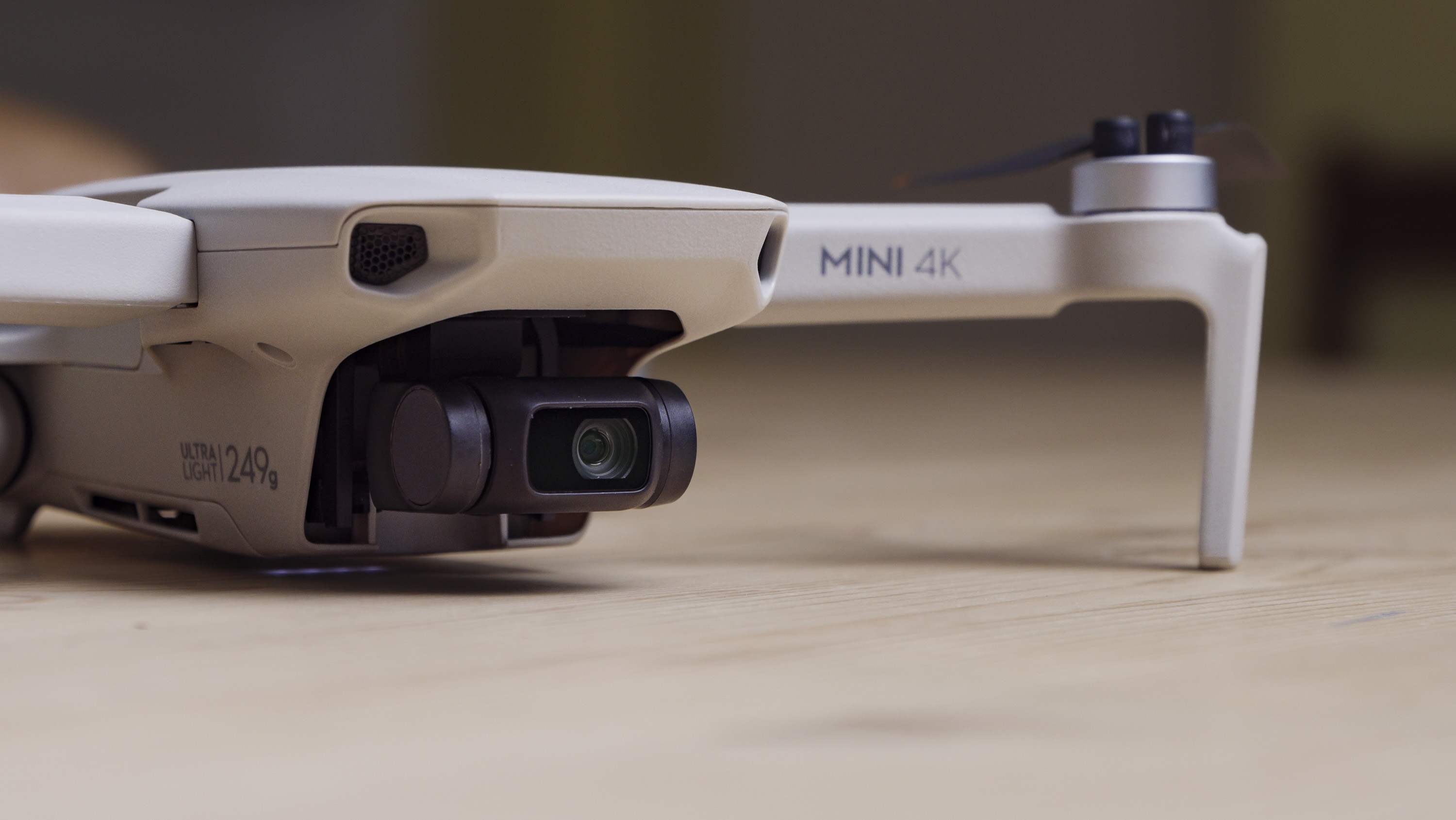
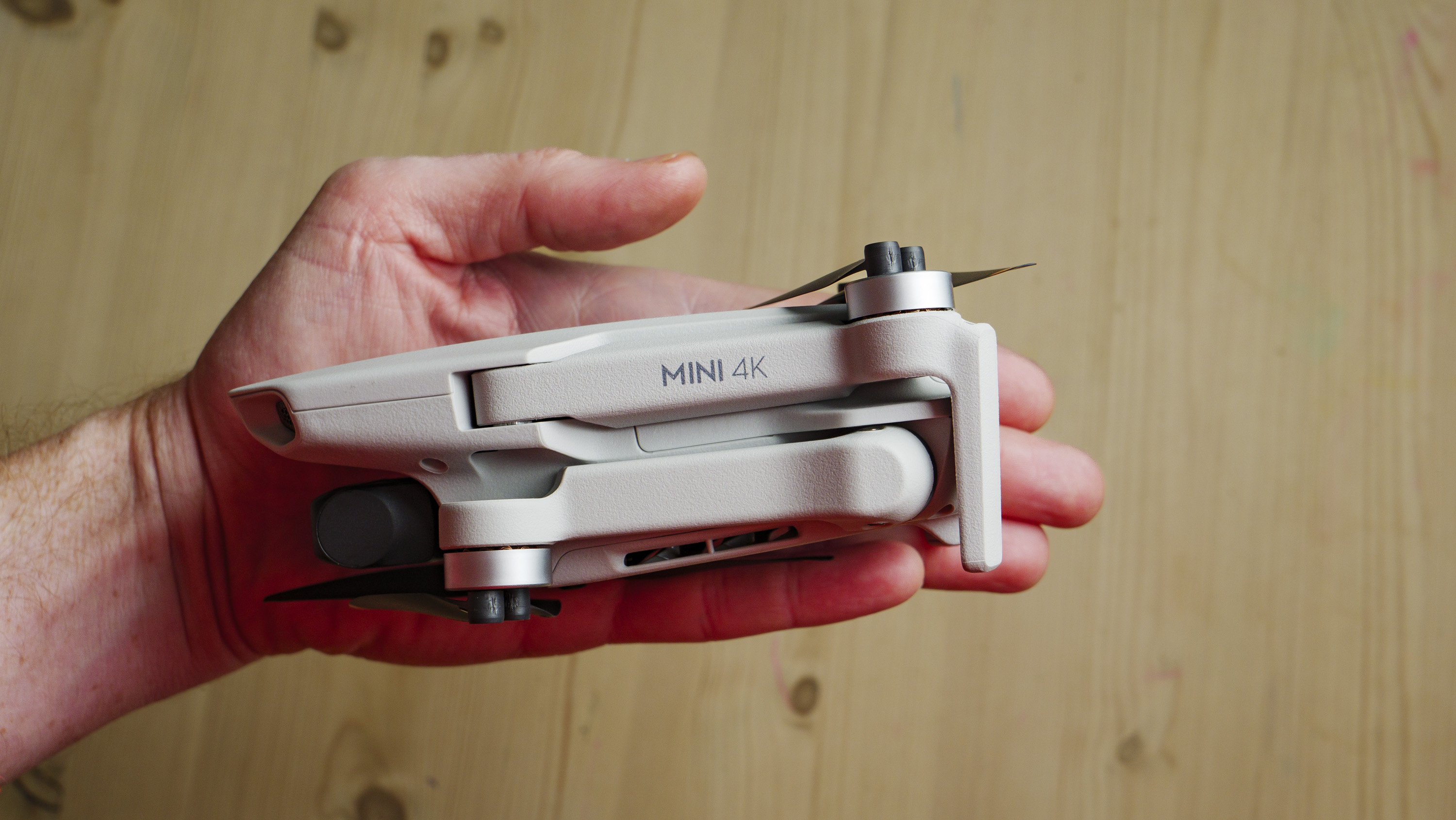
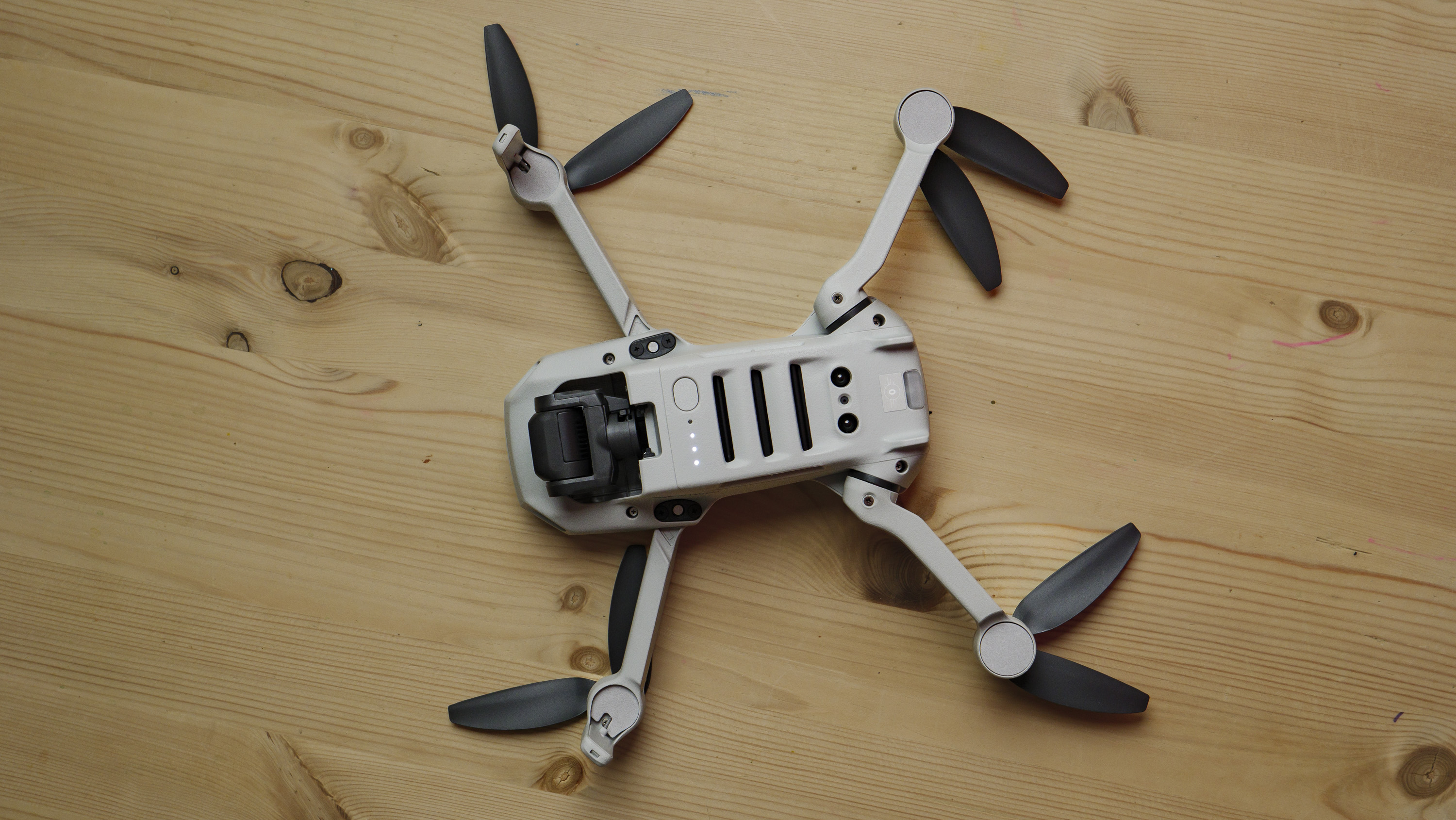
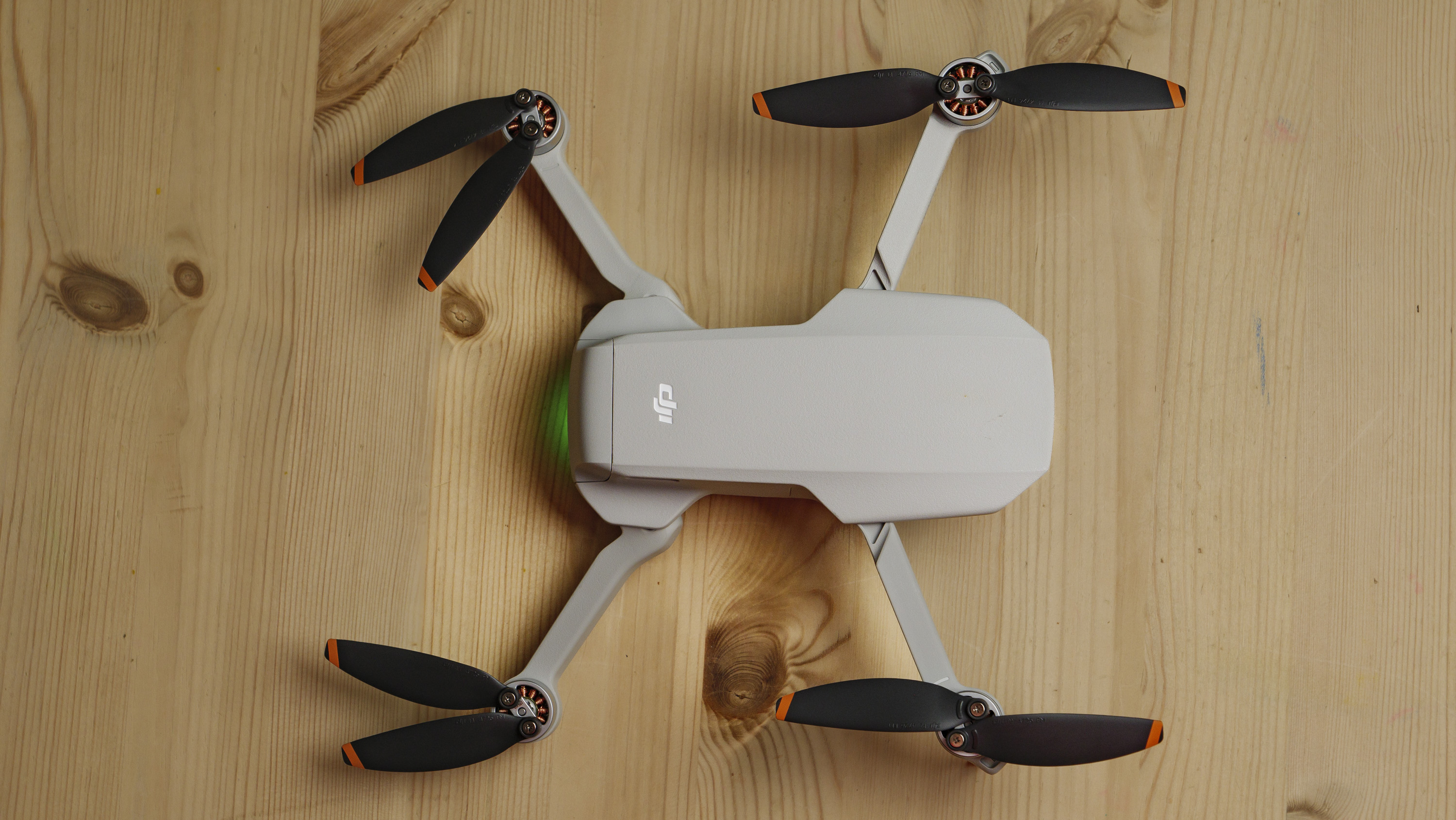
Specifications
Reasons to buy
Reasons to avoid
DJI Mini 4K sample images
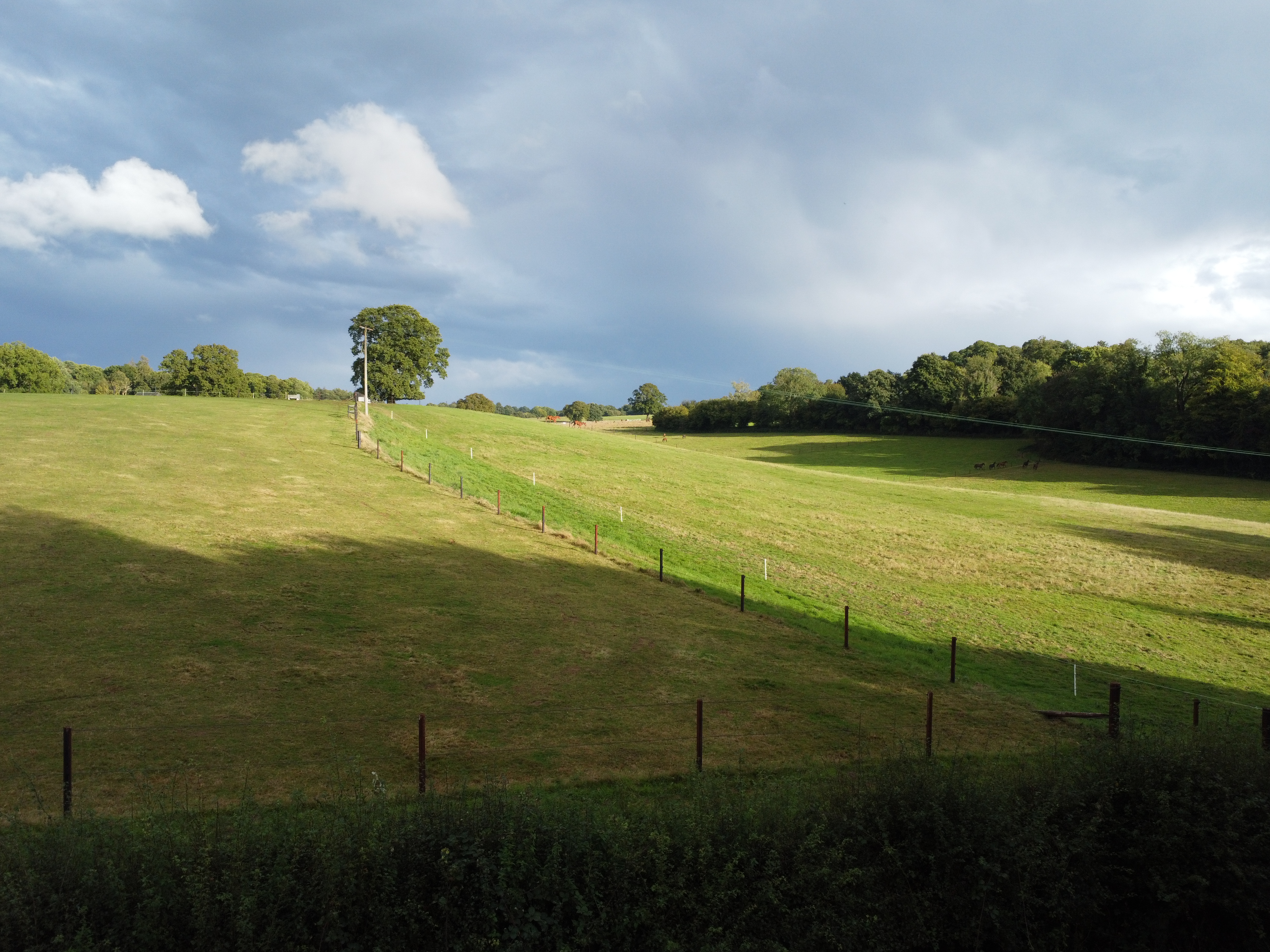
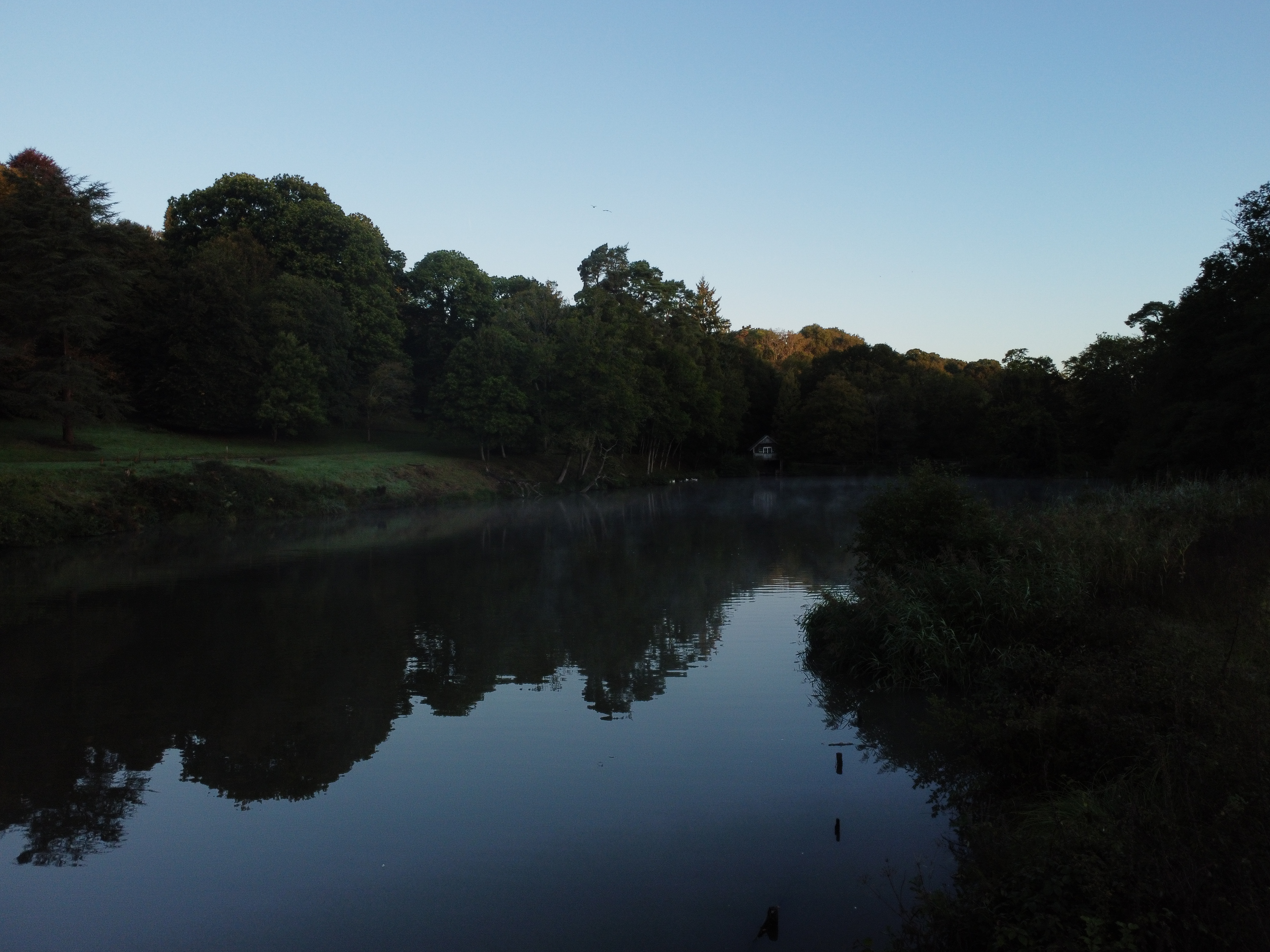
✅ You want a cheap second drone: If would like a smaller and lighter drone with fewer flight restrictions than a larger drone, the Mini 4K is a great option.
✅ You want aerial photos: Image quality is identical to the more expensive Mini 3 Pro, so you won’t outgrow the capabilities of the Mini 3 too soon.
❌ You want collision avoidance: For peace of mind when flying your drone close to trees and in more complex environments, you'll need to spend more on the Mini 4 Pro.
❌ You fly in windy weather: The Mini 4K can in theory fly in wind up to 24mph, but not easily and it'll struggle and drift.
DJI's cheapest-ever 4K drone (not including the Neo, see further down this list), the Mini 4K packs many of the same features as the pricier Mini 3, which makes it excellent value for money. Like the Mini 3, it is a lightweight flying machine with a small folding body that's sub 249g (meaning fewer restrictions), with intuitive controls and useful automated filming modes. As its name suggests, it also shoots 4K /30p video.
The Mini 3 has slightly better battery life, plus its camera has a slightly larger sensor and theoretically slightly better image quality in challenging conditions such as low light or in high contrast like towards the sun. However, we found the Mini 4K still produces excellent quality 4K video and 12MP stills, and the difference is negligible in favorable conditions. Switch to the Mini 4K's Pro mode and you can shoot photos in raw and JPEG format, the former gives more scope for editing afterwards.
Both models miss out on collision avoidance – something you only get by spending more on a Mini Pro-series model, like the Mini 4 Pro. However, for the money, we can't think of a better drone than the Mini 4K. It proved every bit the quality drone in testing: we found it forgiving to pilot using the standard controller, we enjoyed the automated flight moves, and its level 4 wind resistance provides pretty sturdy movement even in breezy conditions, even if it struggles in properly windy conditions. If you're looking for your first drone and keen on capturing aerial images, the Mini 4K is our top value pick.
Read our in-depth DJI Mini 4K review
The best budget beginner drone
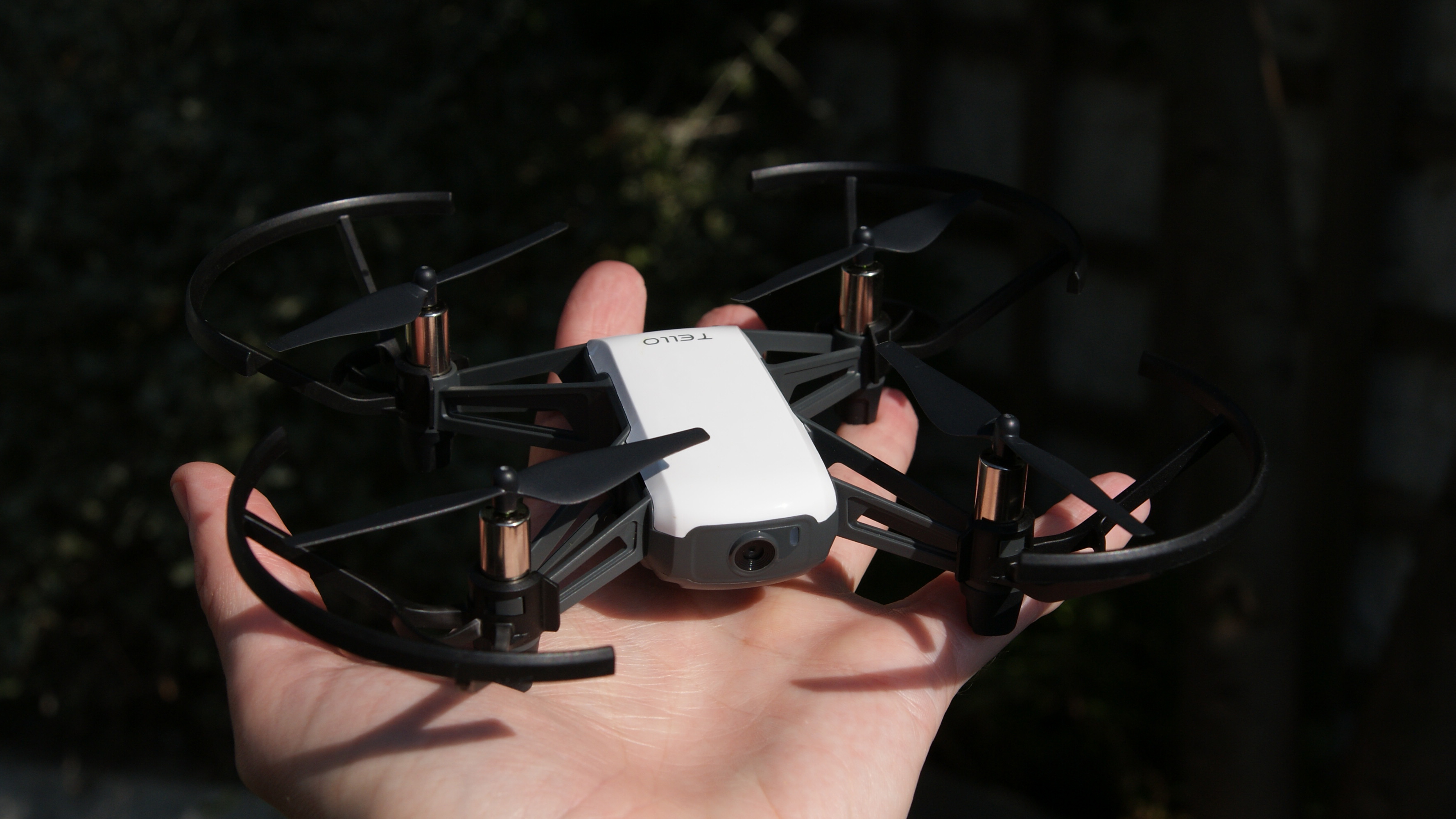
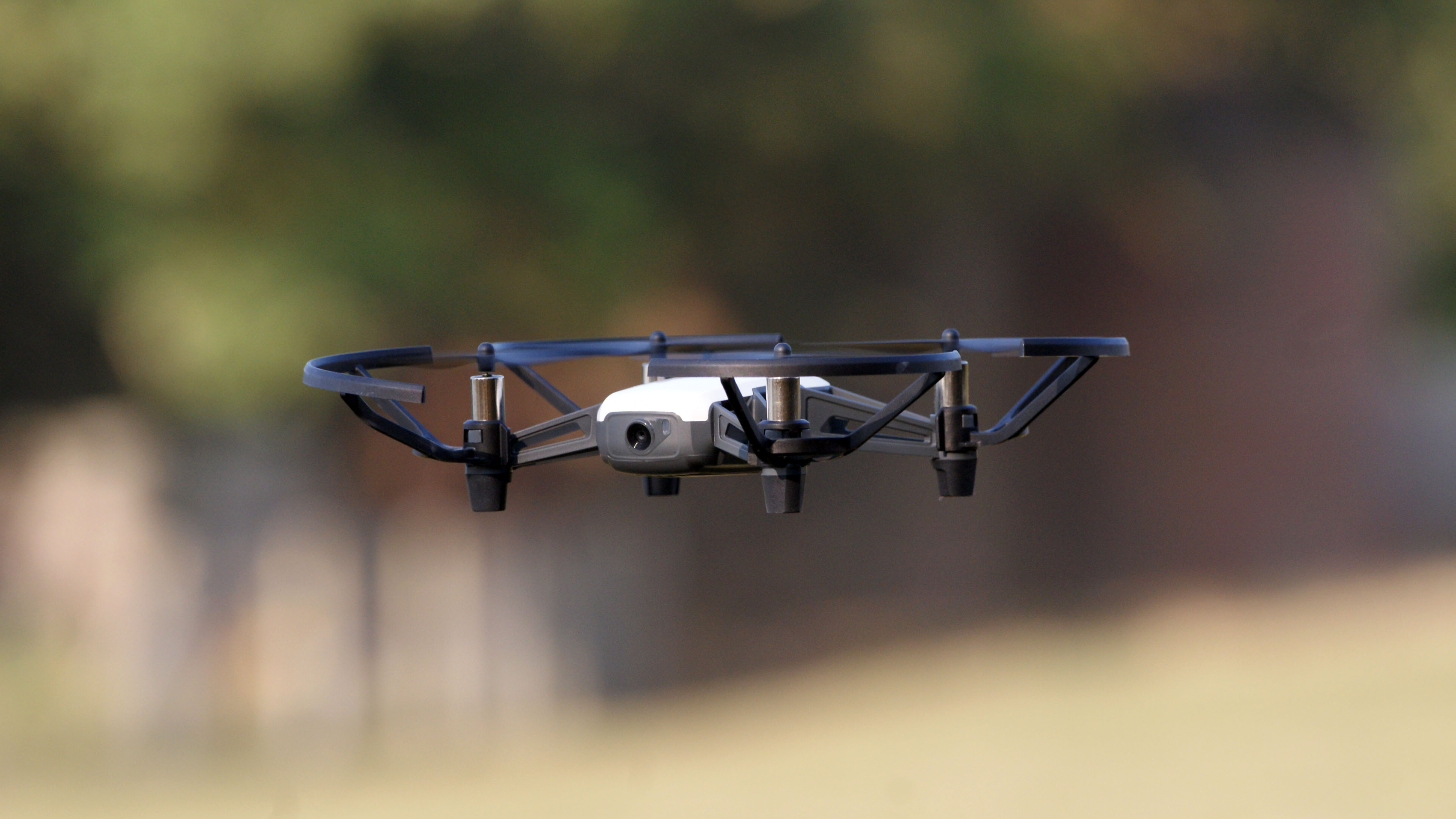
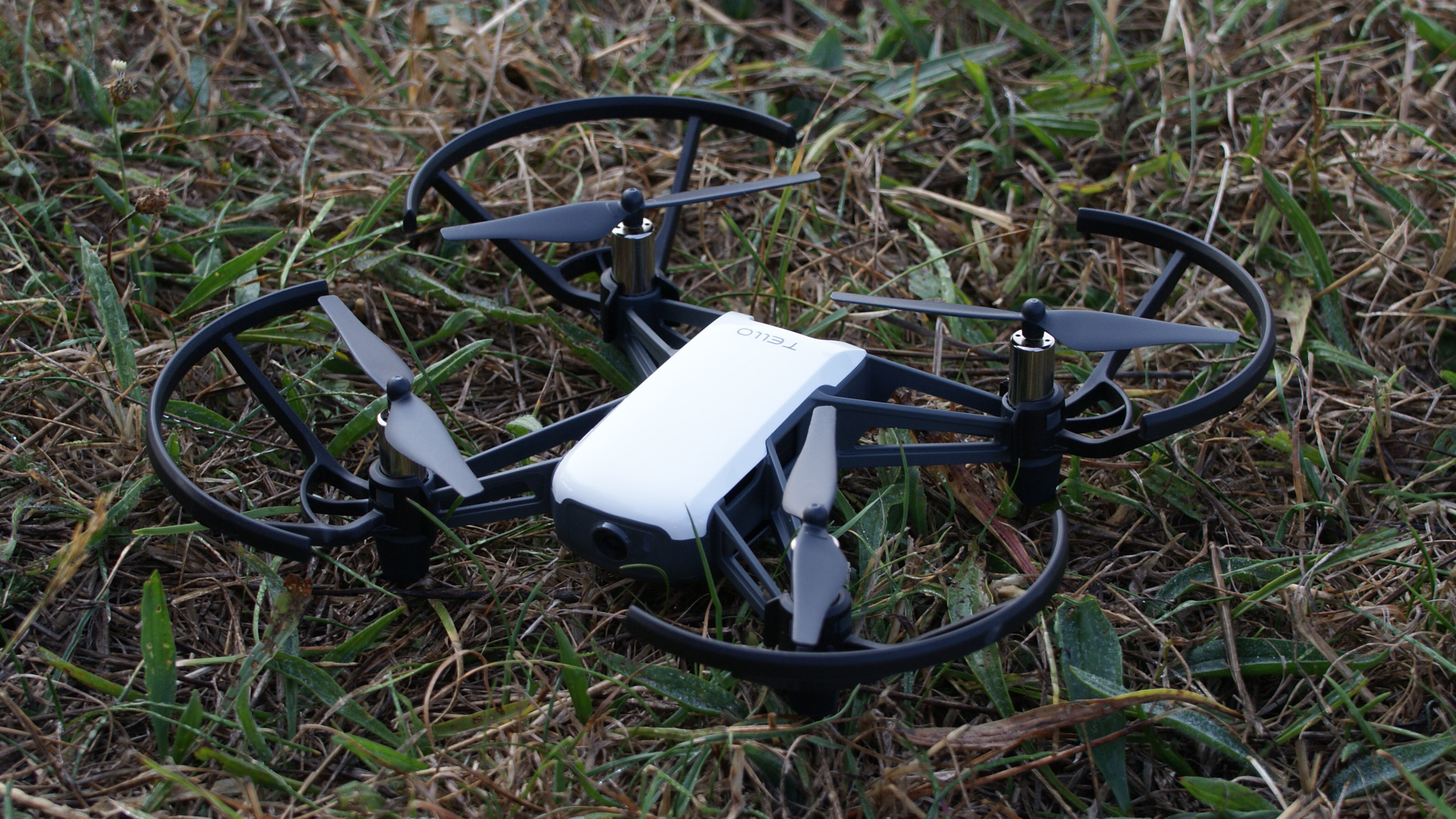
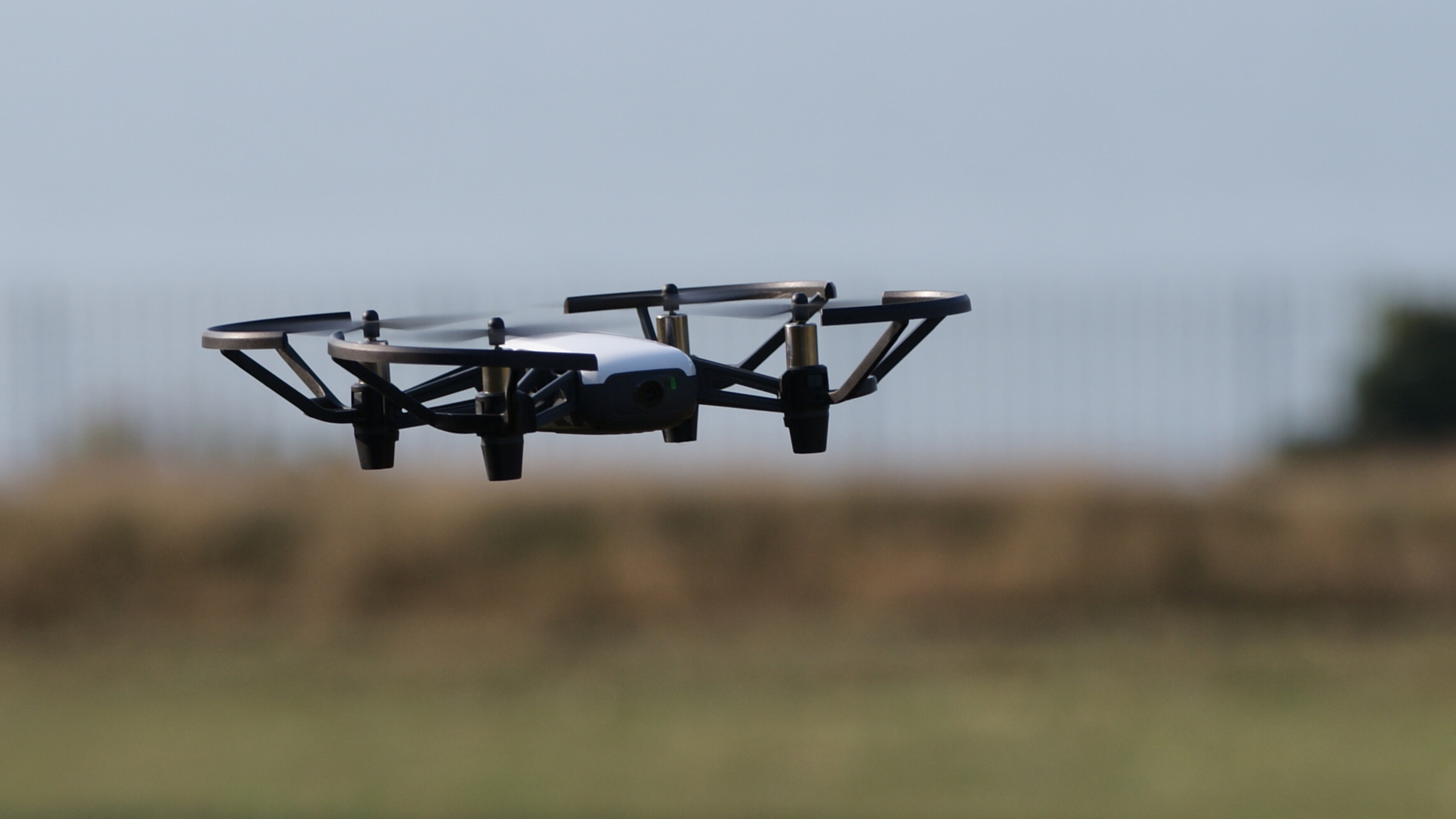
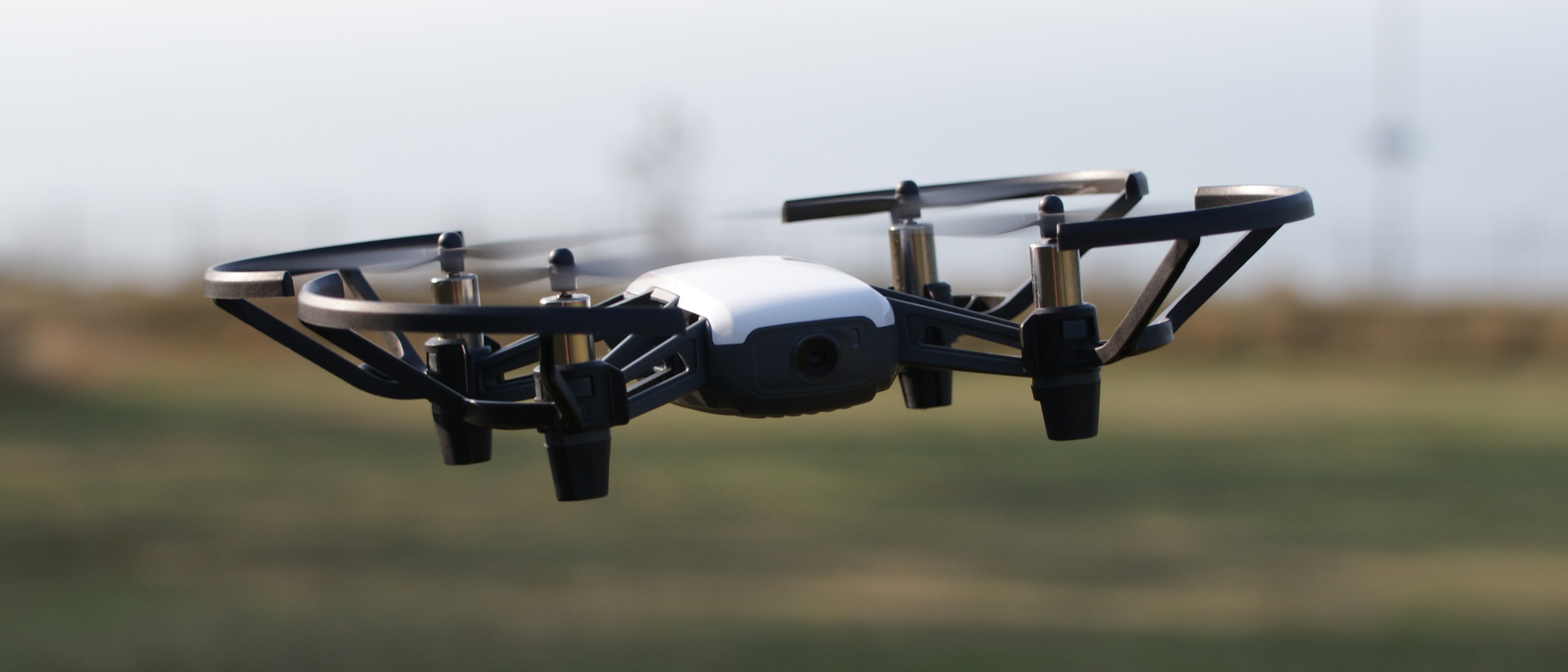
Specifications
Reasons to buy
Reasons to avoid
✅ You're getting started: The simple app and responsive controls help you master basic flight manoeuvres, take-offs and landings.
✅ You’re an indoor pilot: With rotor guards and stability sensors, the Tello is safe and easy to fly inside.
❌ You want decent quality video: The Tello is limited to choppy and compressed 720p videos.
❌ You want to go far: The Tello has a low range and restricted altitude and so it can't fly far or high.
Designed in partnership with DJI, the Ryze Tello is an affordable, featherweight drone that’s great for mastering the basics of flight. It can be controlled via the Tello smartphone app and Wi-Fi, but you can also use a Bluetooth gaming controller – albeit at a shorter range. It proved a responsive and lively flier during our tests, which makes it an effective way to master the ups and downs of quadcopter flying.
It’s not all positive. The flight range is limited (closer to 30m than the official 100m maximum) while the slightest breeze will send it drifting off with the wind. The 720p camera isn’t up to much either, and with no local storage it sends all footage directly to your phone – which results in choppy video when the Wi-Fi connection dips in and out. Those caveats aside, the Tello is a great starter drone that does the simple things well and feels better put together than other budget models.
Read our in-depth Ryze Tello review
The best premium beginner drone
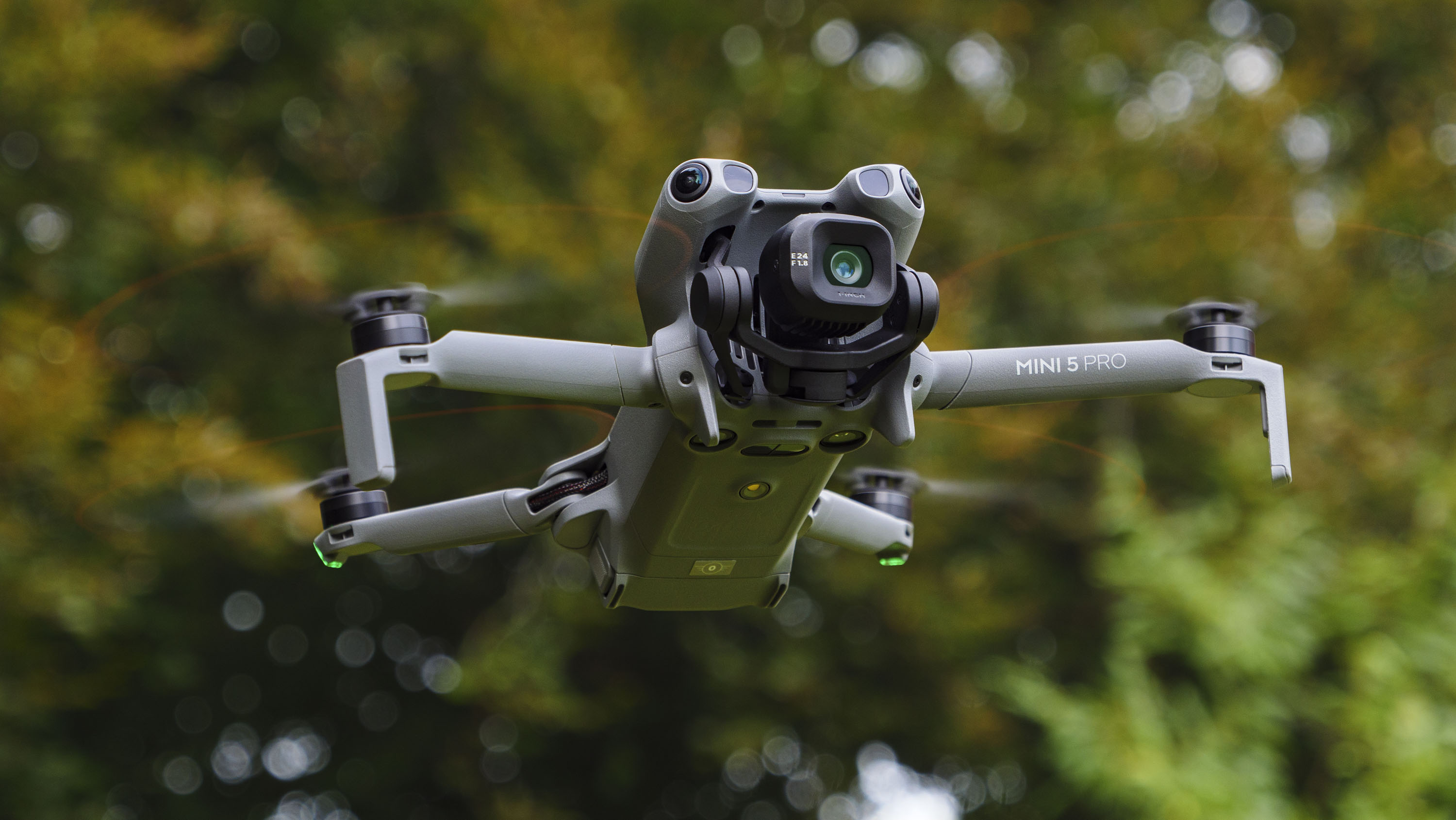
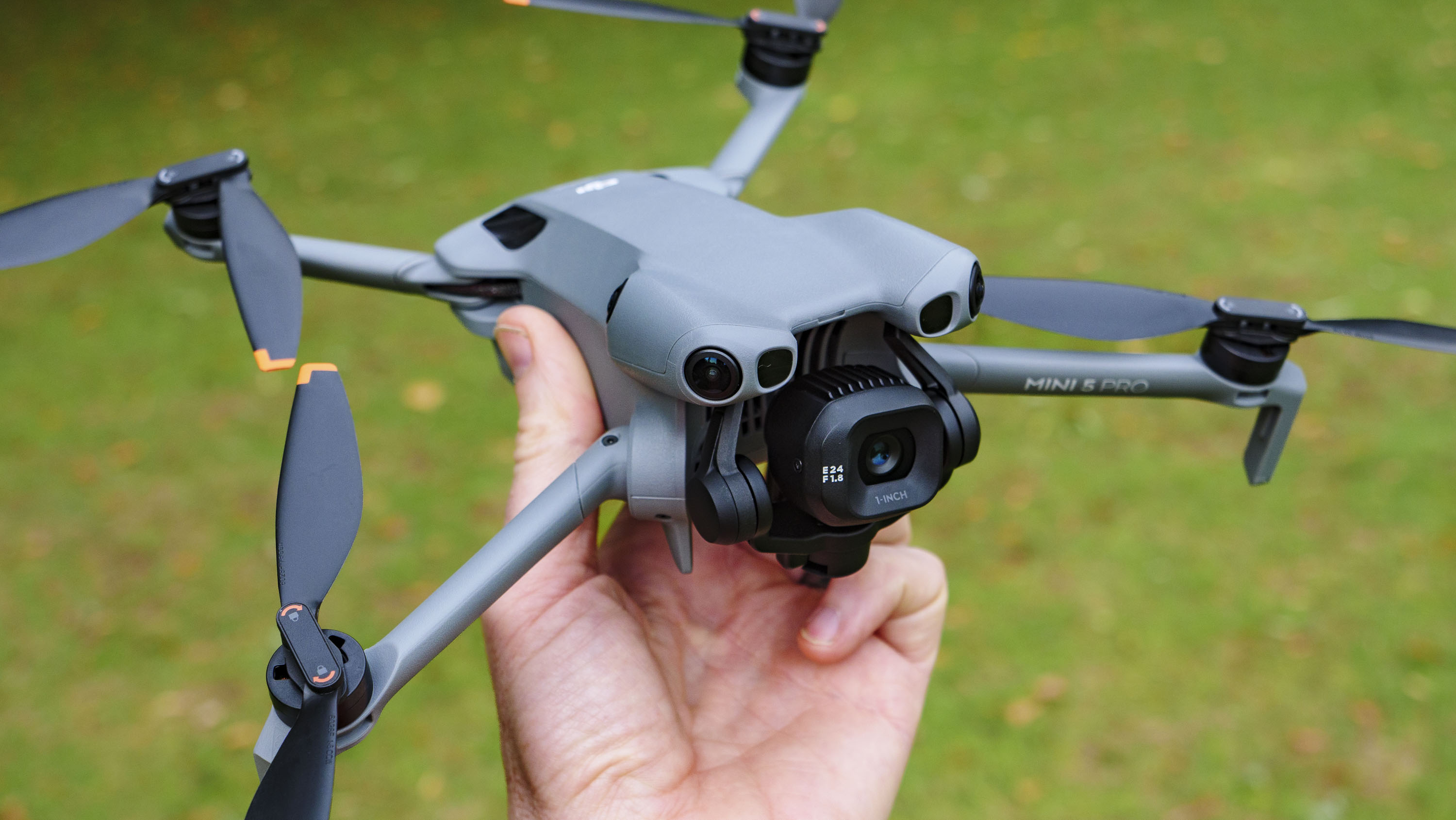
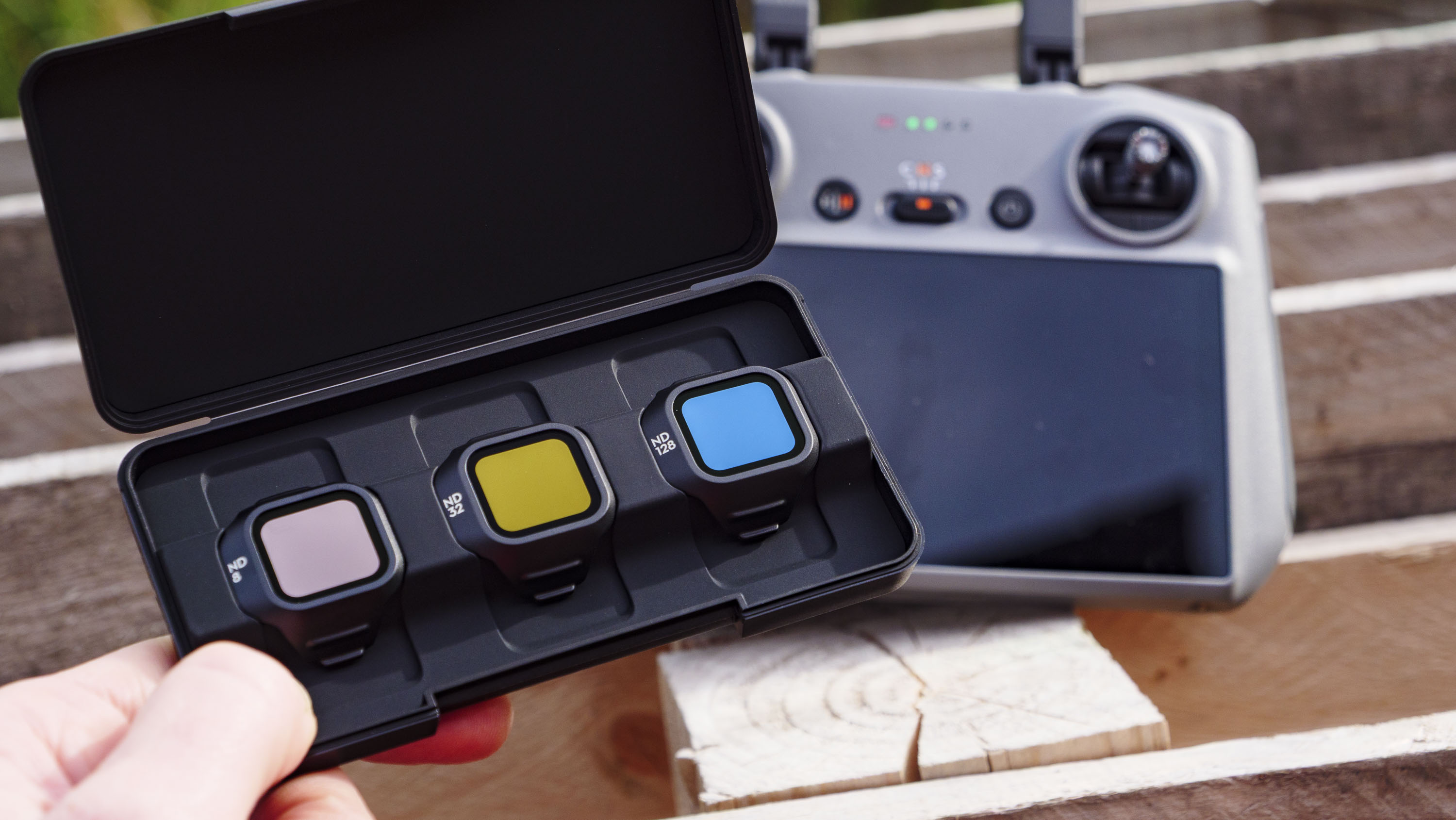
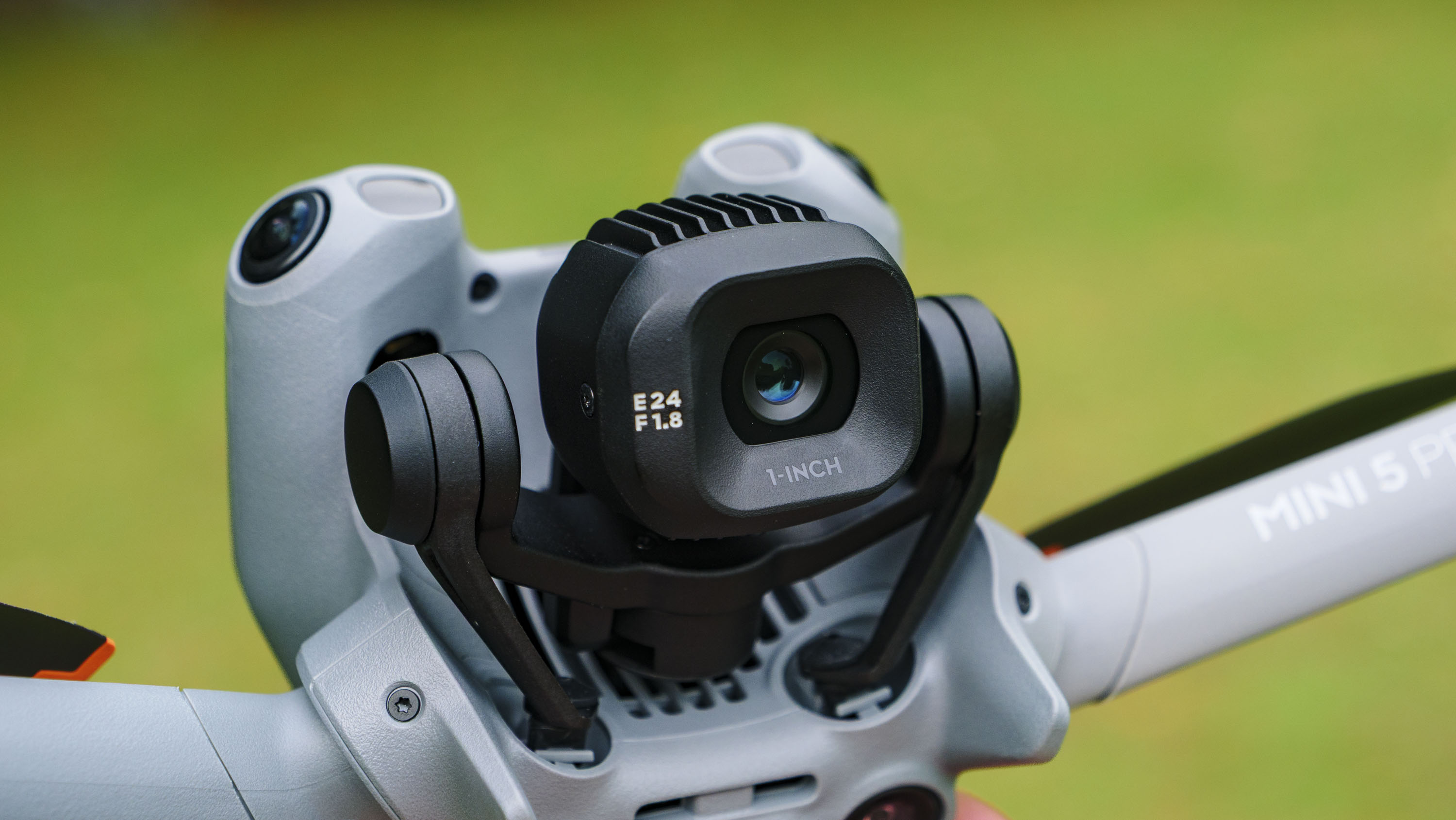
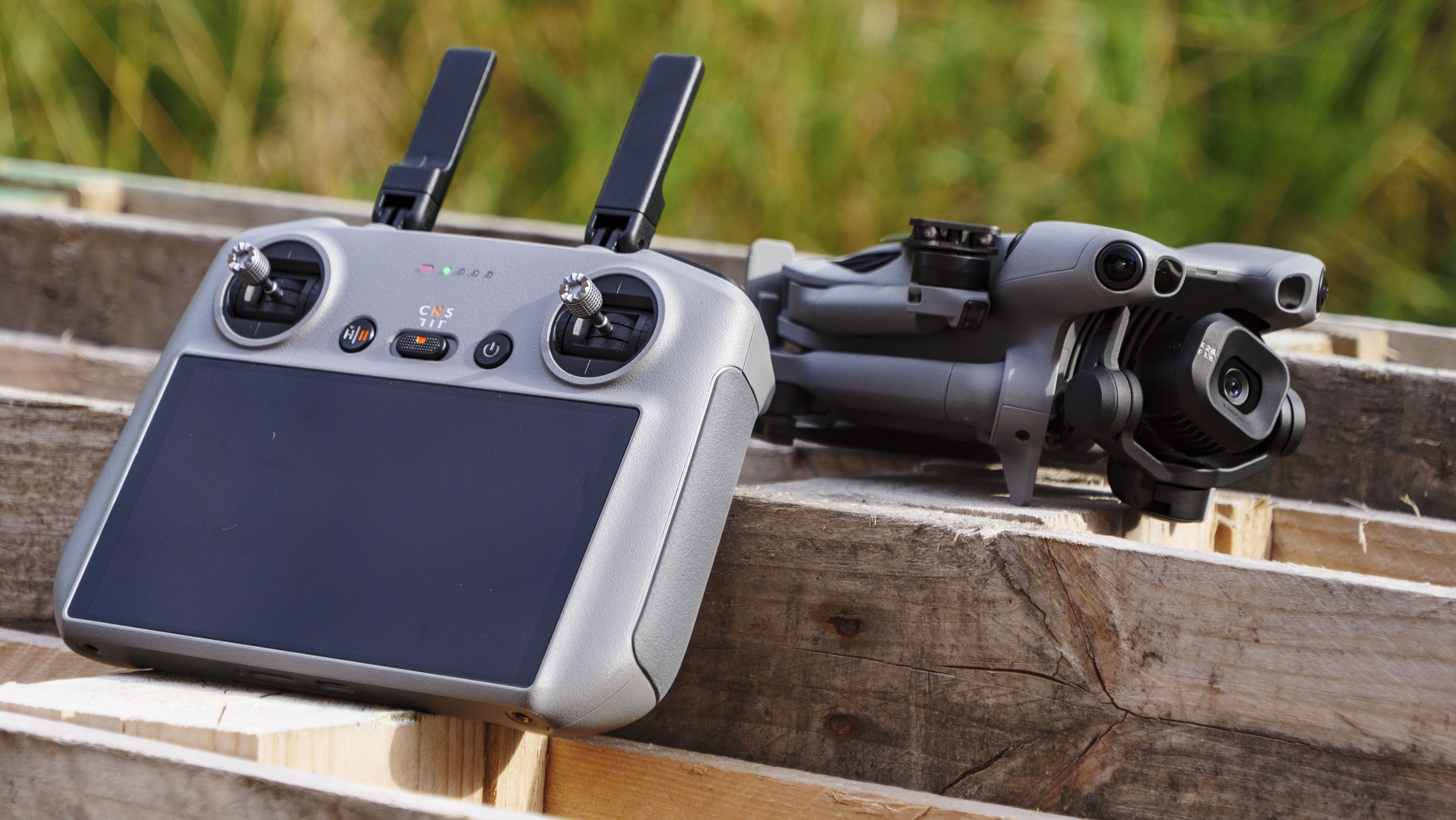
Specifications
Reasons to buy
Reasons to avoid
DJI Mini 5 Pro sample images
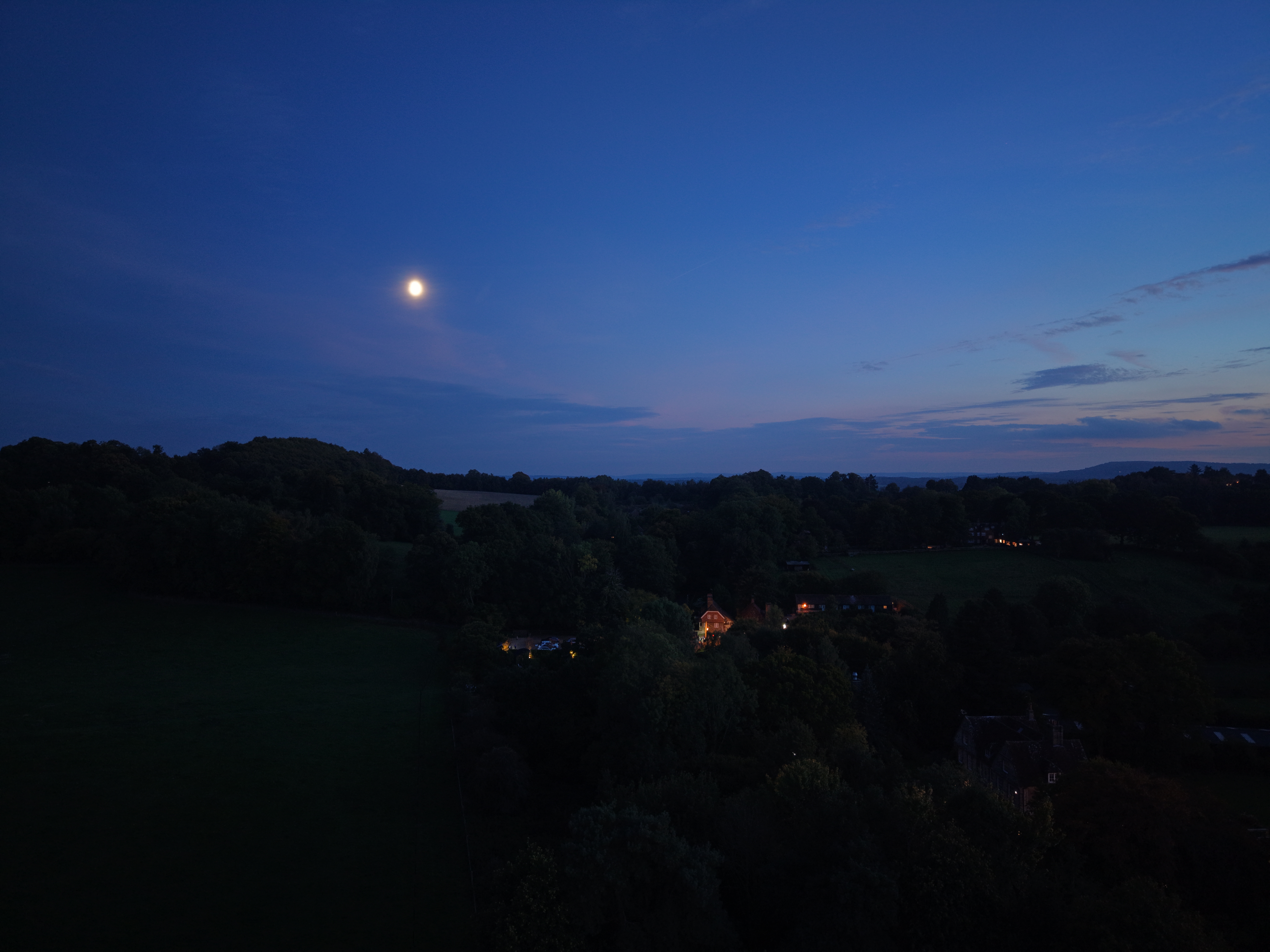
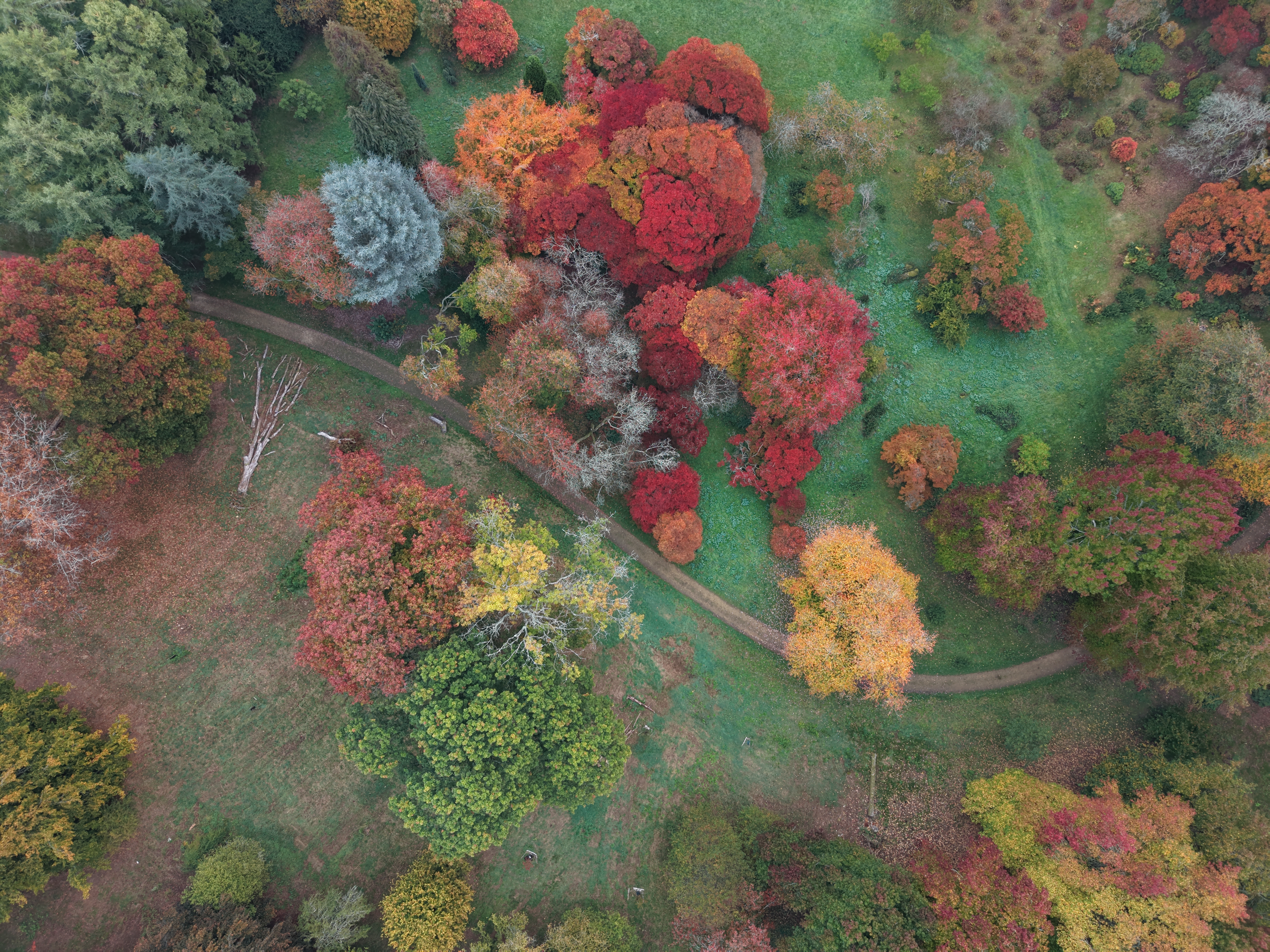

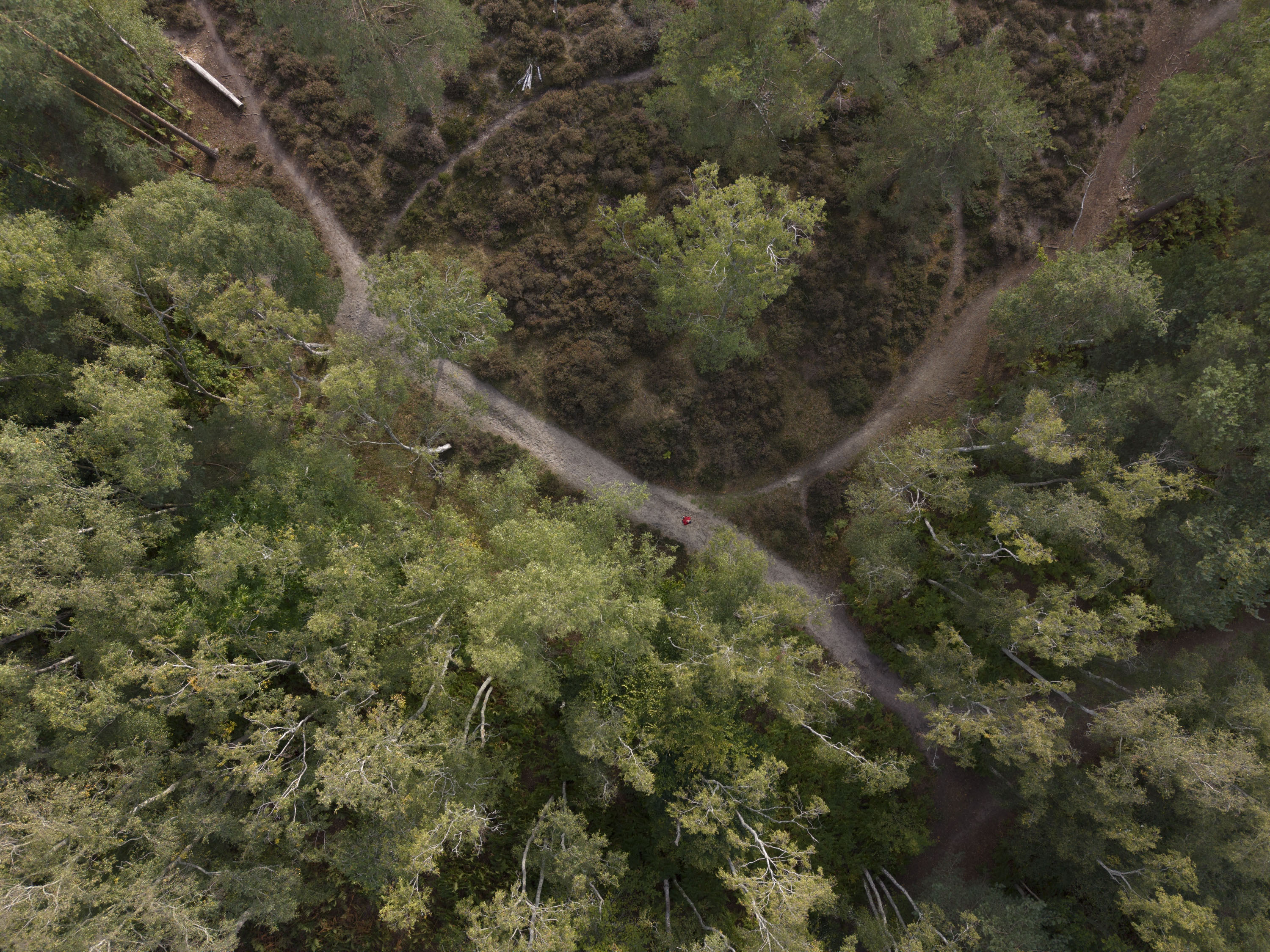
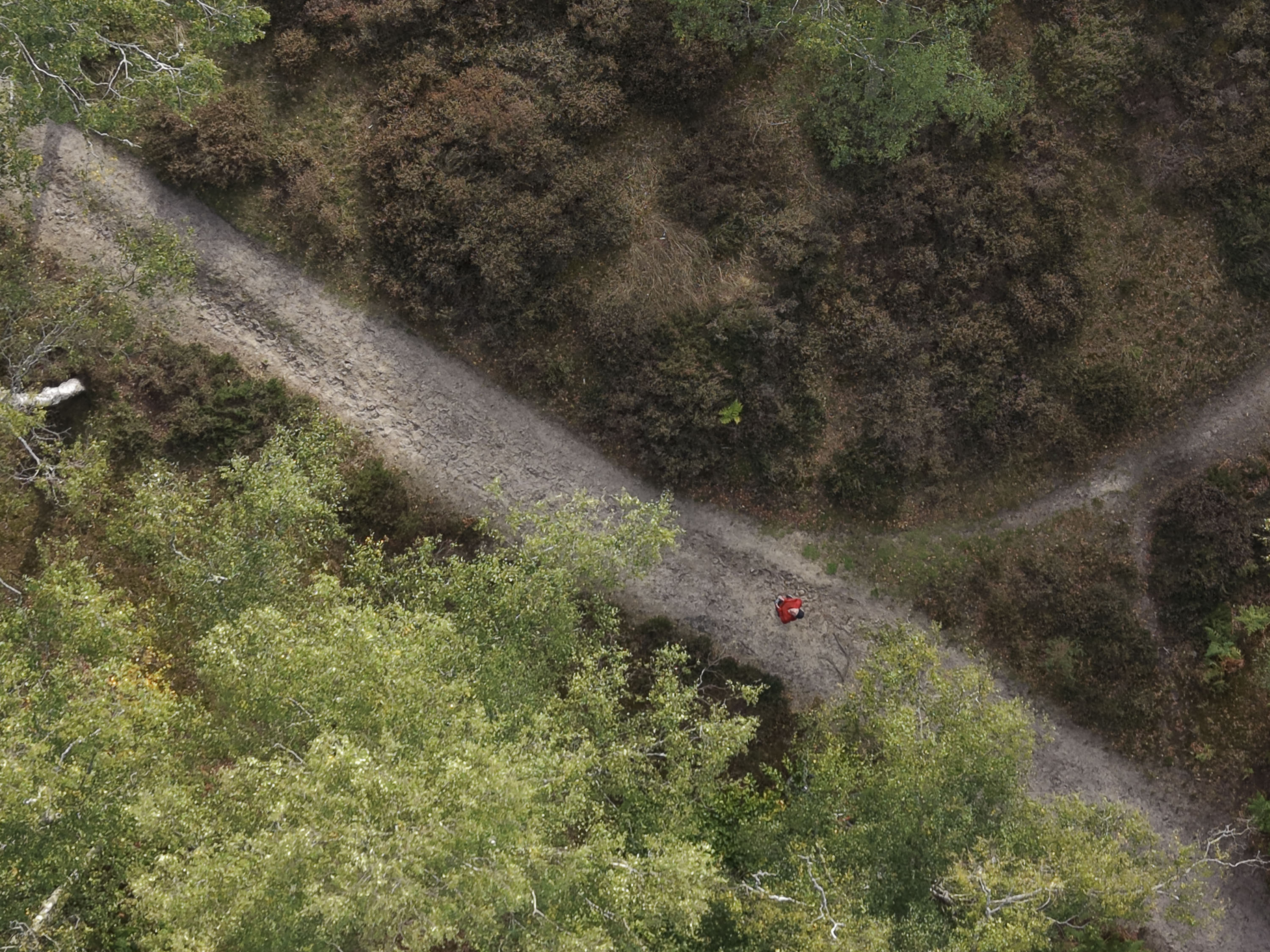

✅ You want the best image quality from a mini drone
The 1-inch sensor delivers better overall image quality than the previous best sub-250g drone, the Mini 4 Pro.
✅ You want top safety features
No other small drone has such sophisticated and effective object sensing, including front-facing LiDAR that works in darkness.
❌ You absolutely need a sub-250g drone: With take-off weight often just above 250g, the Mini 5 Pro could be legally classed as a heavier drone – which means more restrictions and rules to follow.
❌ You just want to give drones a try: If you're just getting started on your drone journey, this might be overkill. Consider a cheaper, simpler drone like the Mini 4K or Neo 2.
The Mini 5 Pro is quite simply the most powerful and well-equipped sub-250g drone you can buy right now. DJI has squeezed a phenomenal amount of tech into that 249.9g body – crucially keeping it restriction-free in the C0 category – and the results are genuinely impressive.
The standout upgrade is the new 1-inch CMOS sensor, which delivers the best video quality I've seen in this weight class, complete with 4K at 120fps and DJI's D Log M color profile for 14EV dynamic range. The camera's 225-degree roll rotation is brilliantly versatile too, letting you flip between horizontal and vertical recording at a button press. Object sensing with front-facing LiDAR means this thing navigates obstacles in low light better than ever, while the refined 360° ActiveTrack kept me perfectly centered through woodland trails.
It's admittedly pricier than the entry-level Mini 4K, but honestly, if you can stretch the budget it's absolutely worth it – the object sensing alone will pay for itself when it saves you from your first collision with a tree or wall. Flight times aren't quite the advertised 36 minutes in real-world conditions (more like 20 with wind and 4K 60fps recording), but that's typical of most drones. The Mini 5 Pro is so capable it actually puts pressure on the heavier DJI Air 3S, which is high praise indeed.
Read our in-depth DJI Mini 5 Pro review
The best DJI alternative for beginners
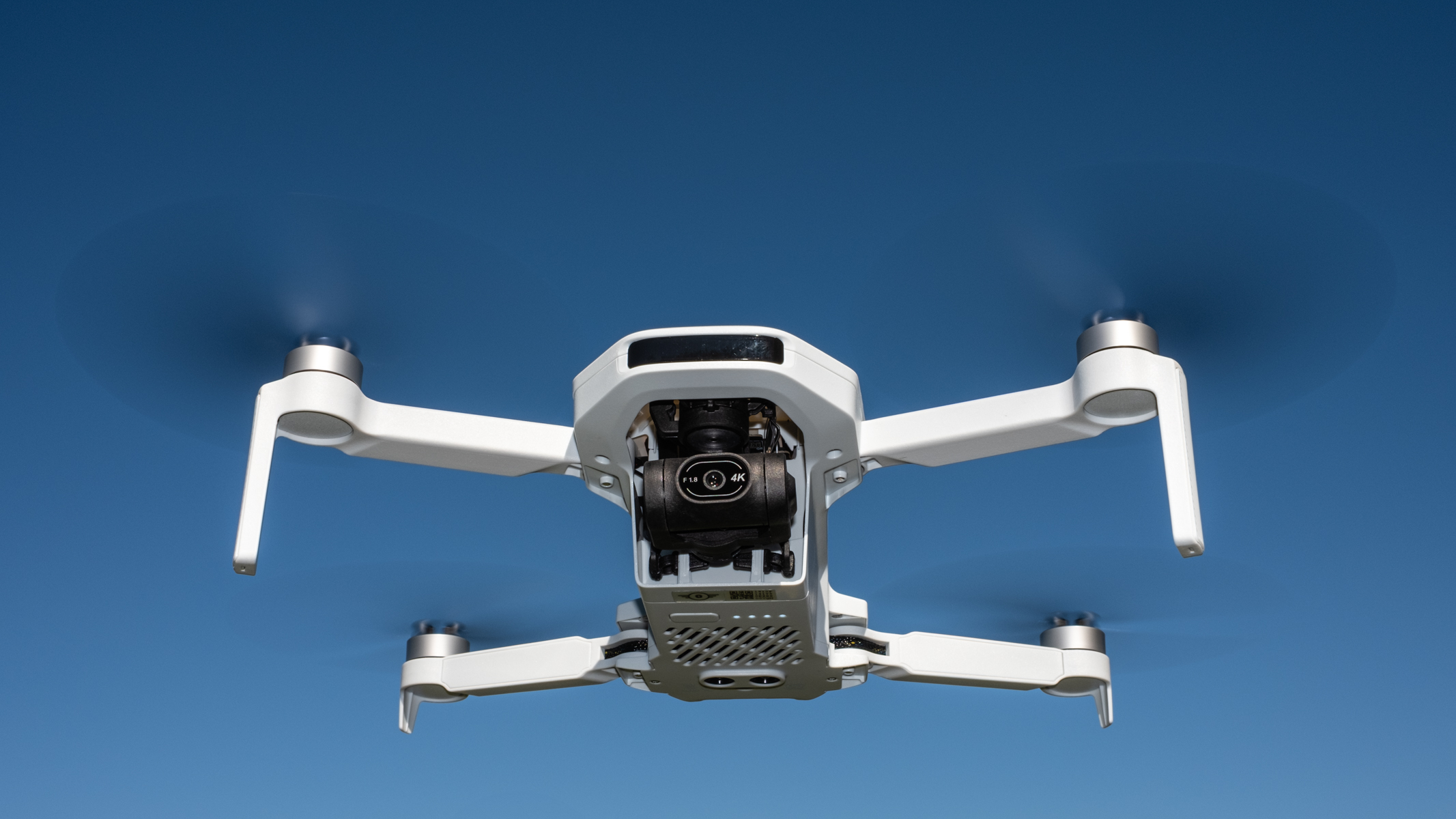
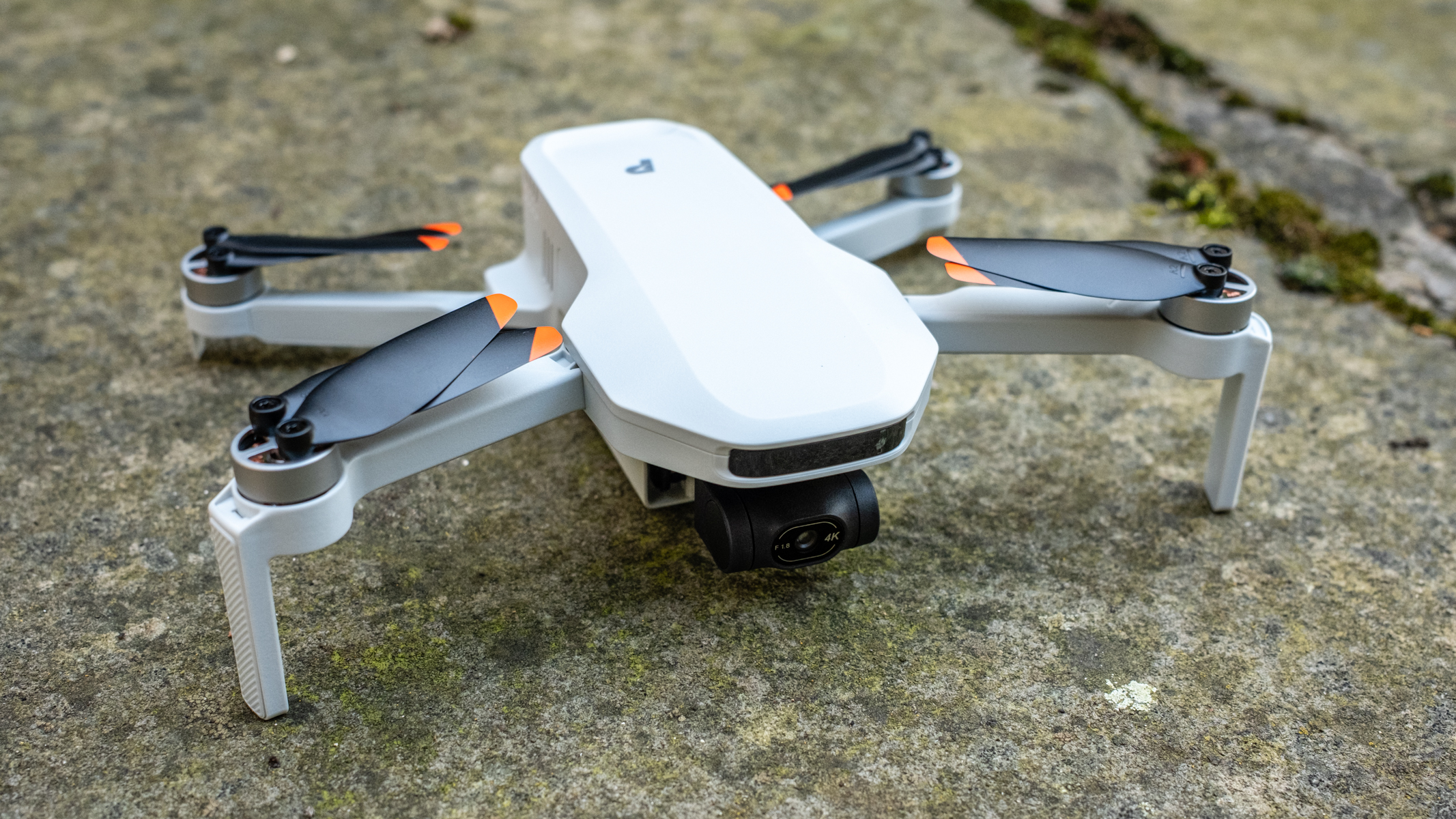
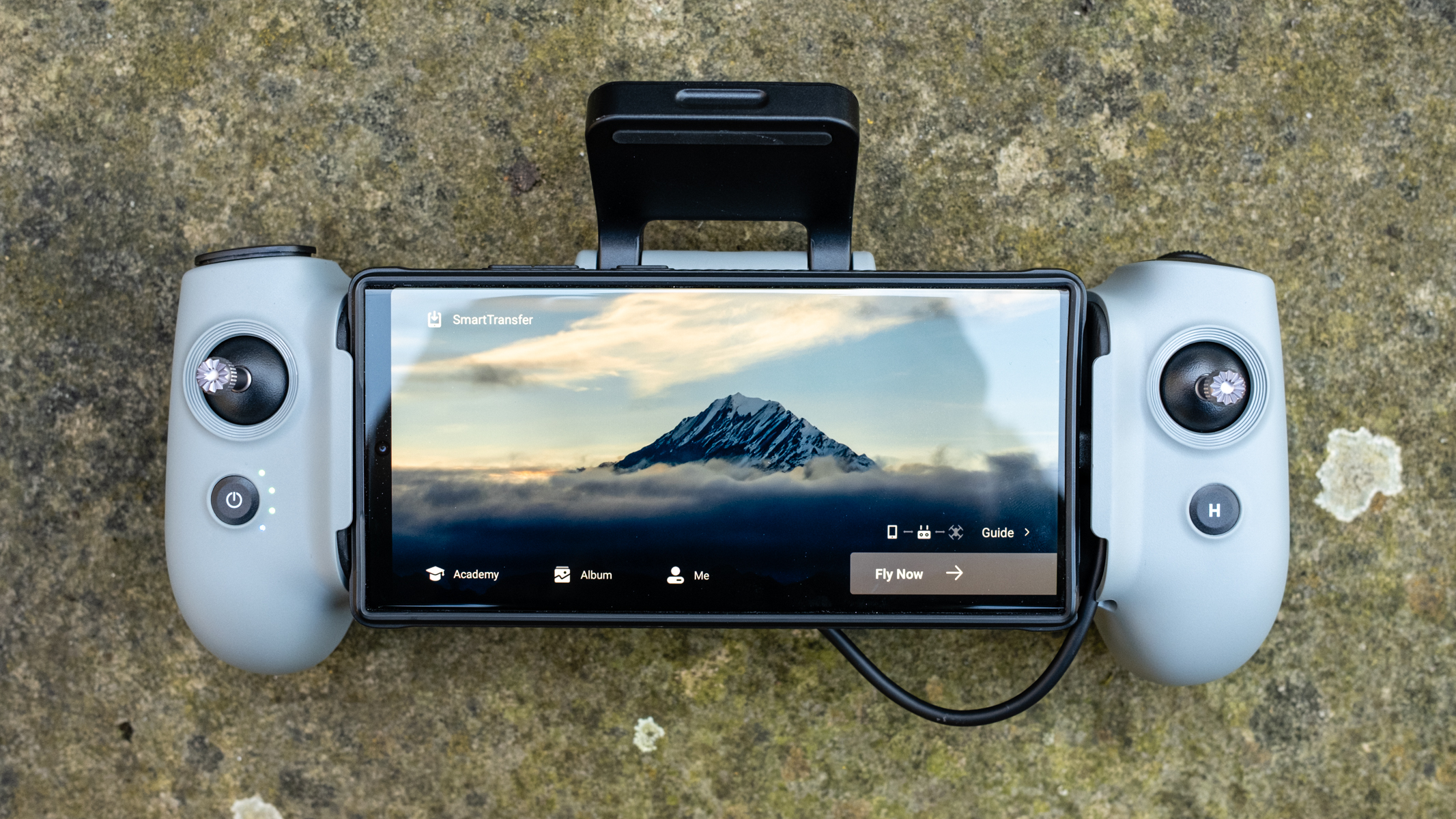
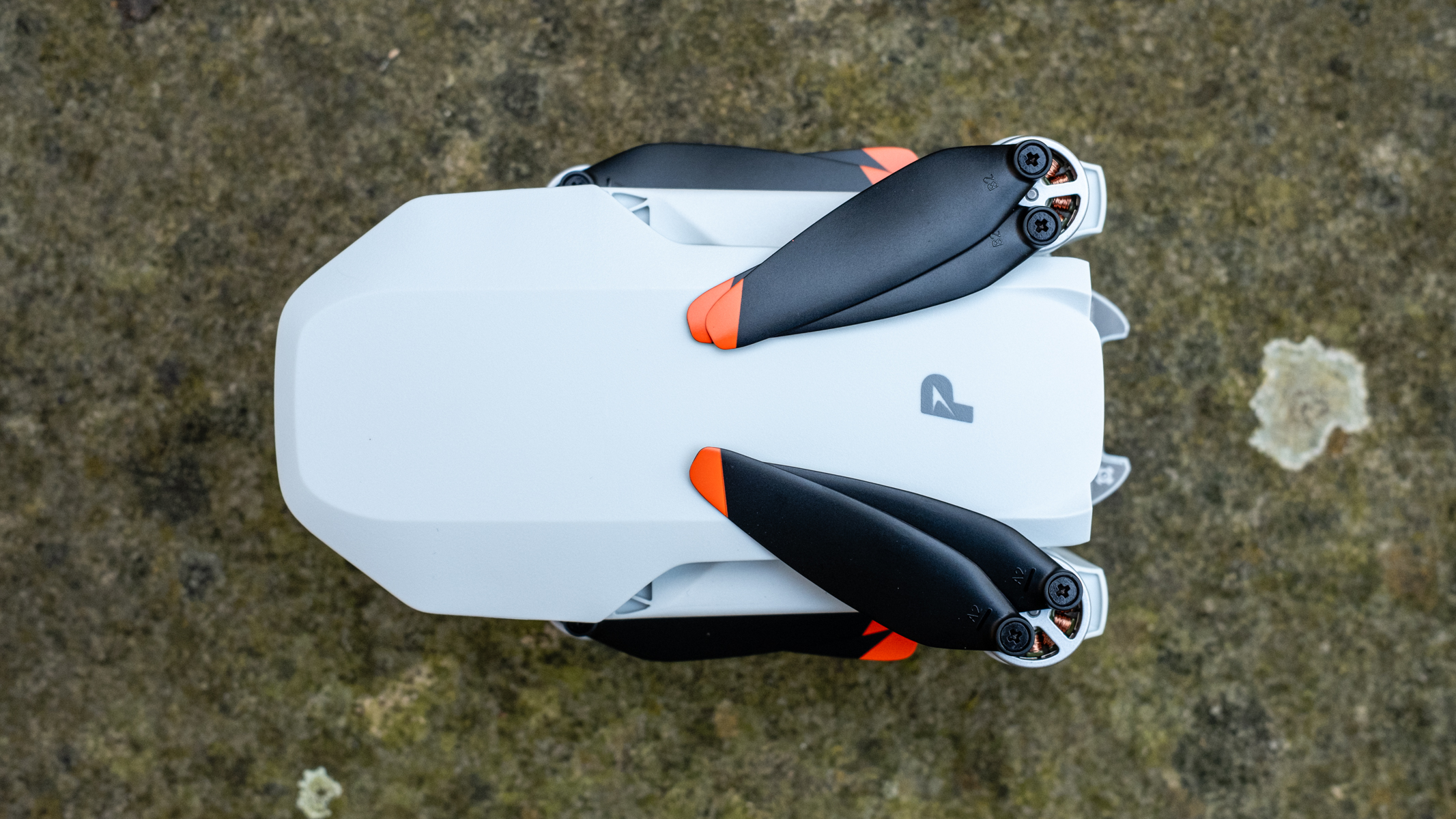
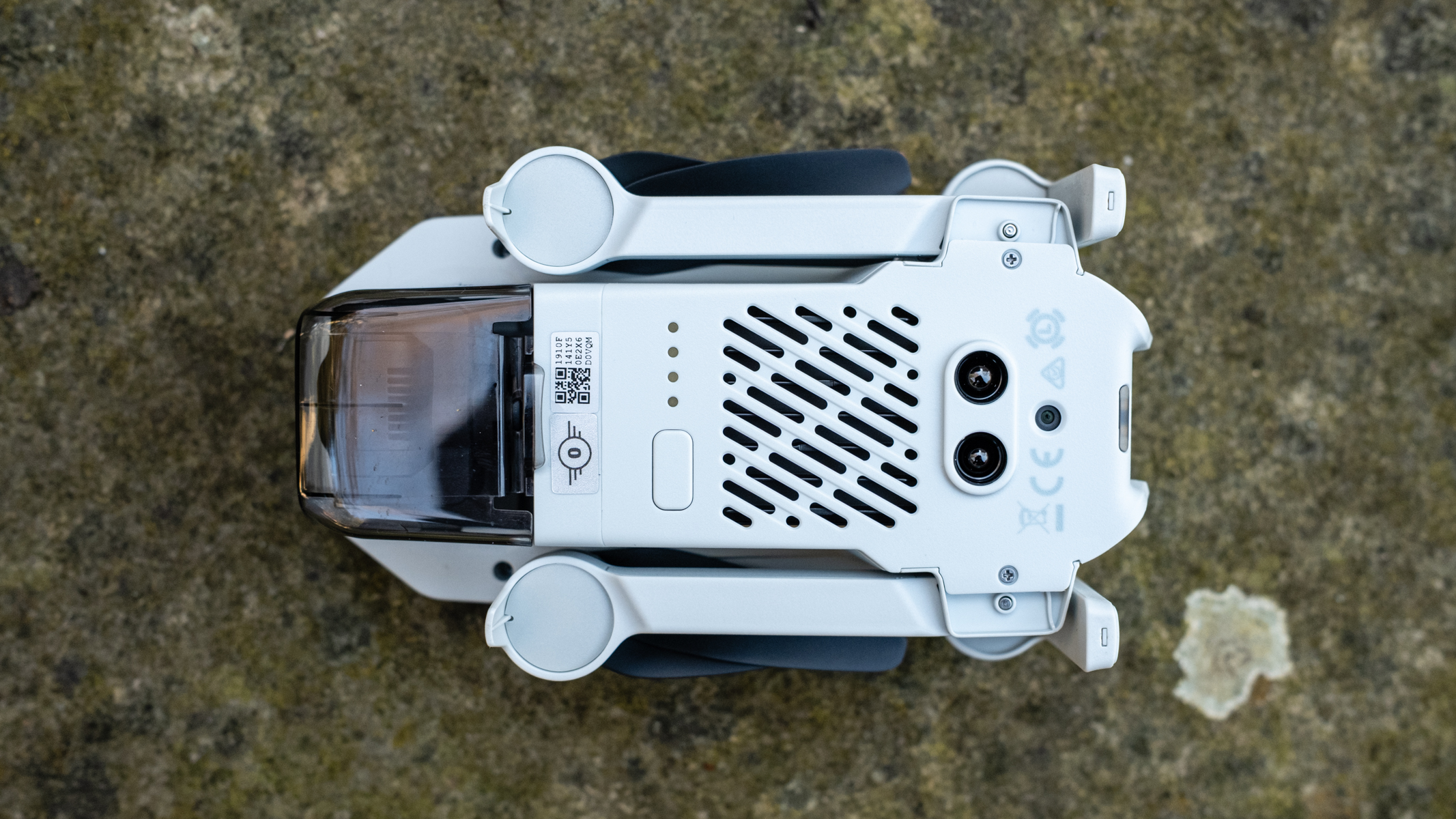
Specifications
Reasons to buy
Reasons to avoid
Potensic Atom 2 sample images
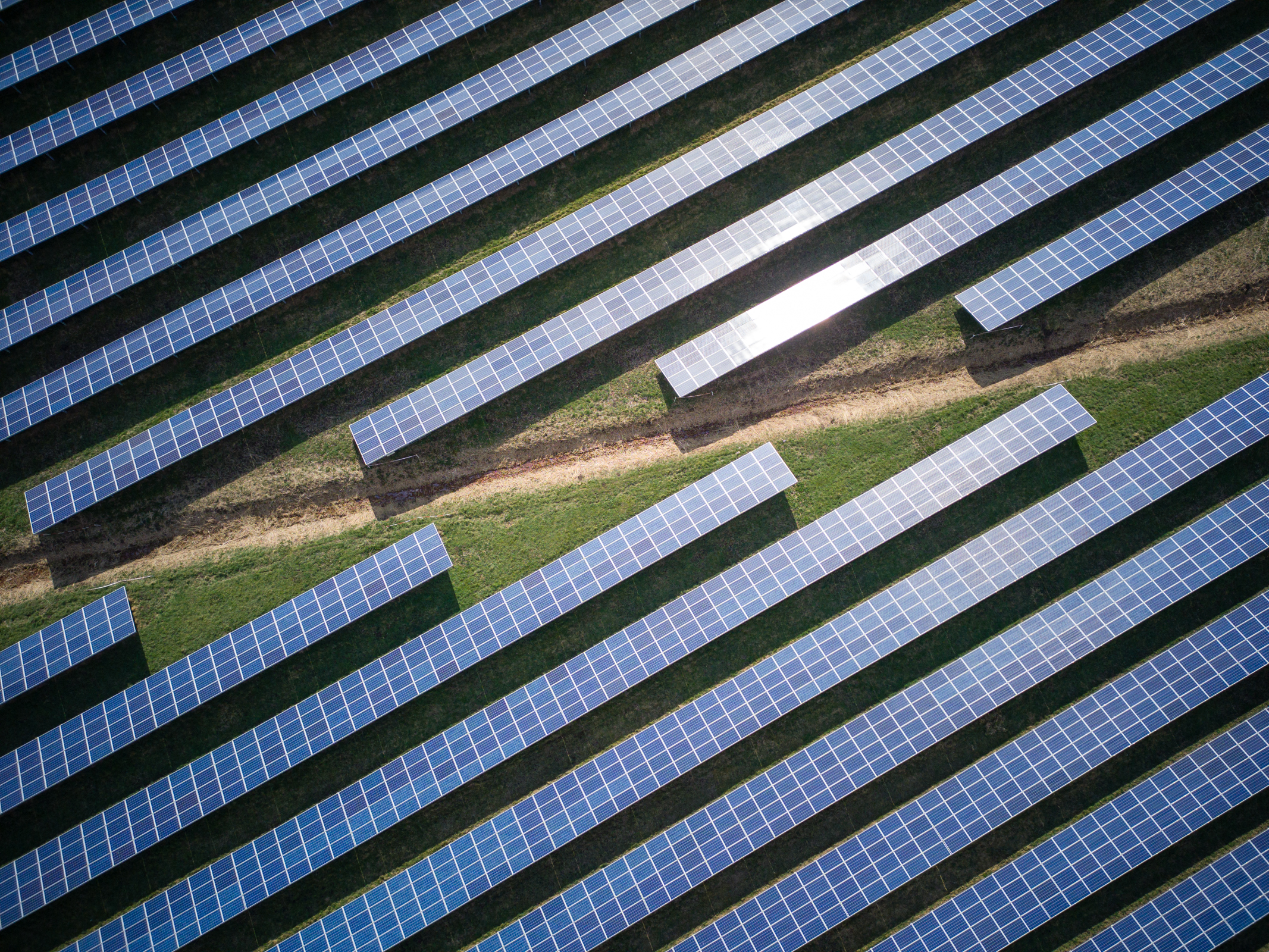
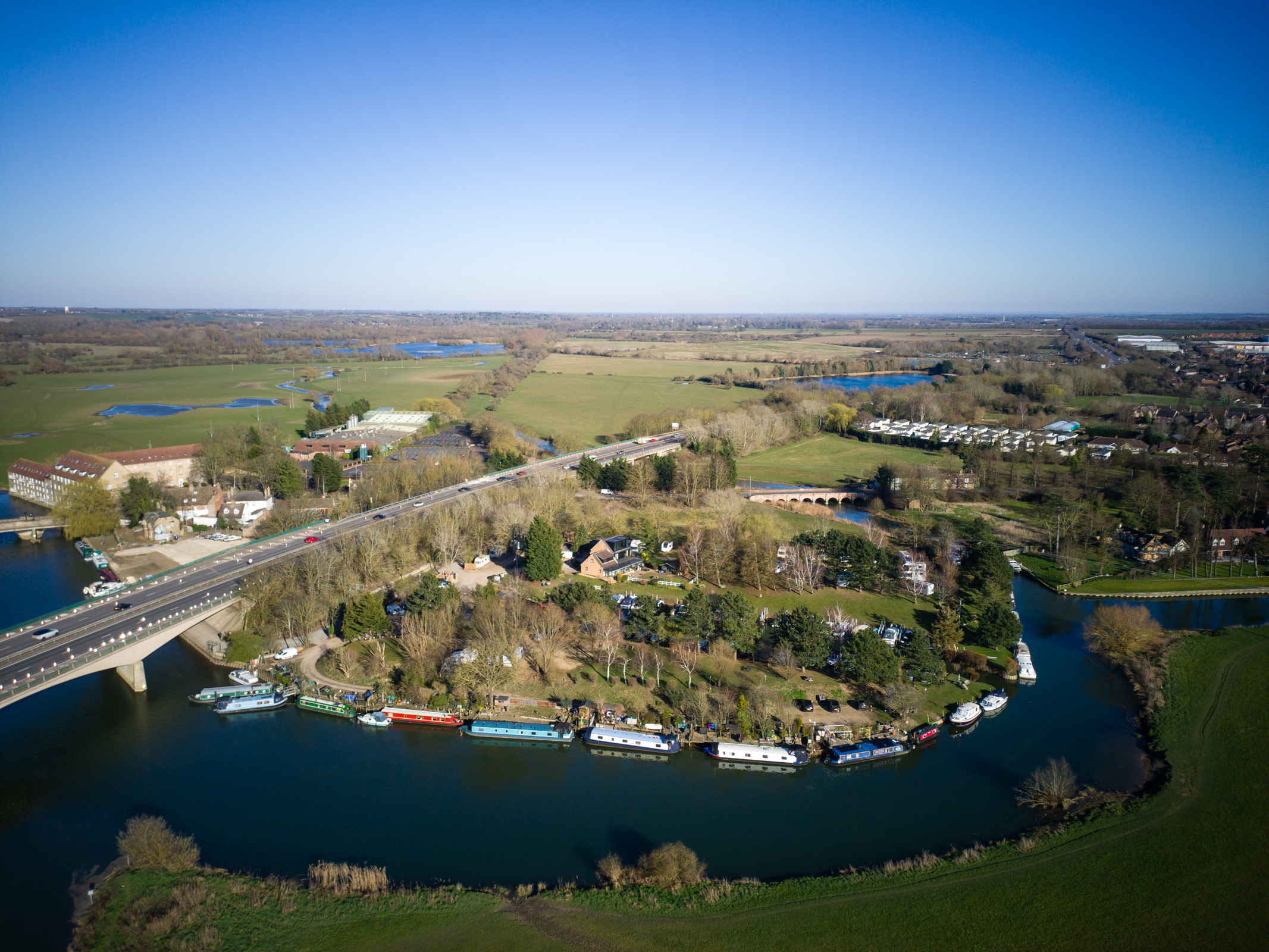
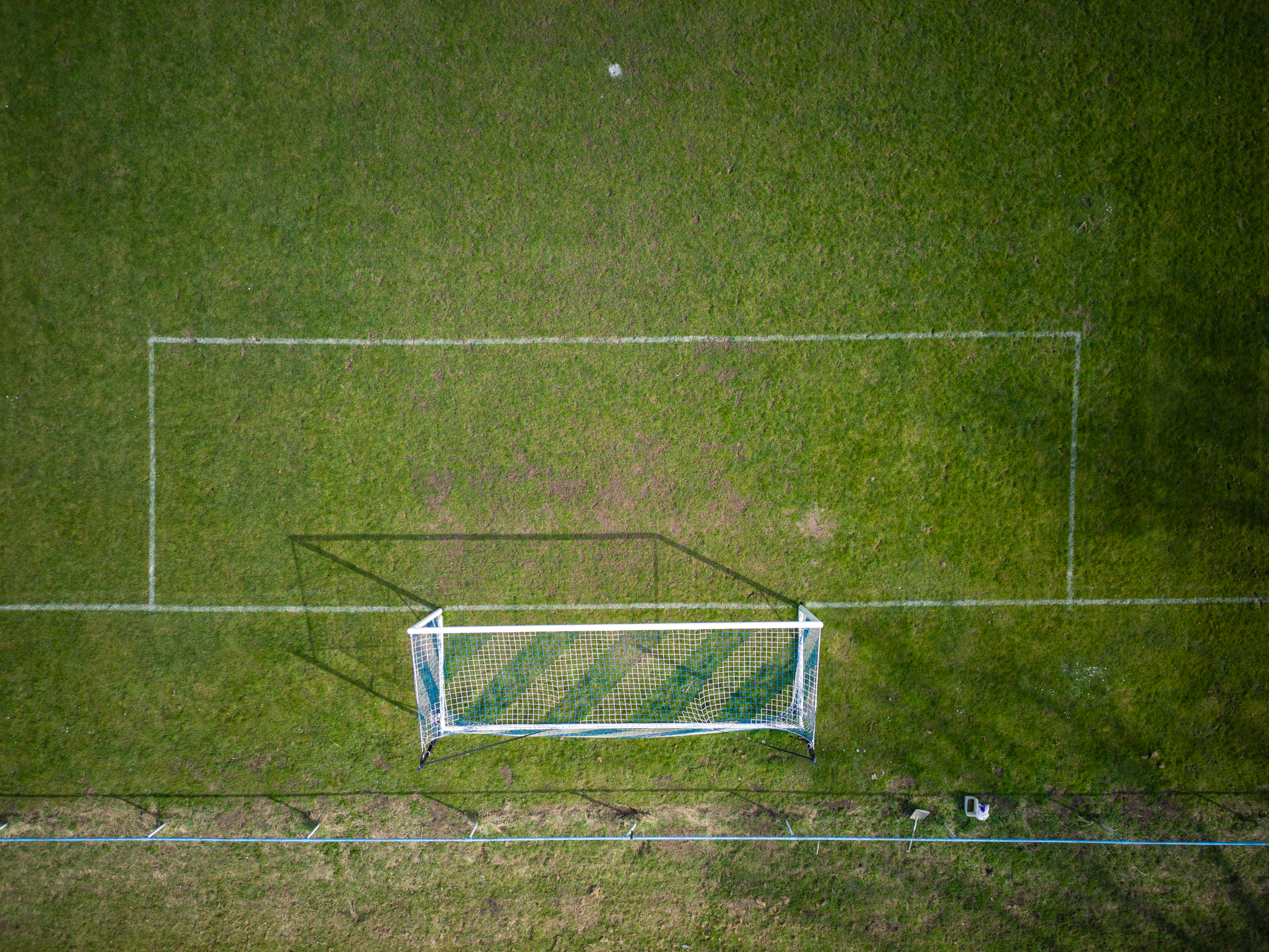
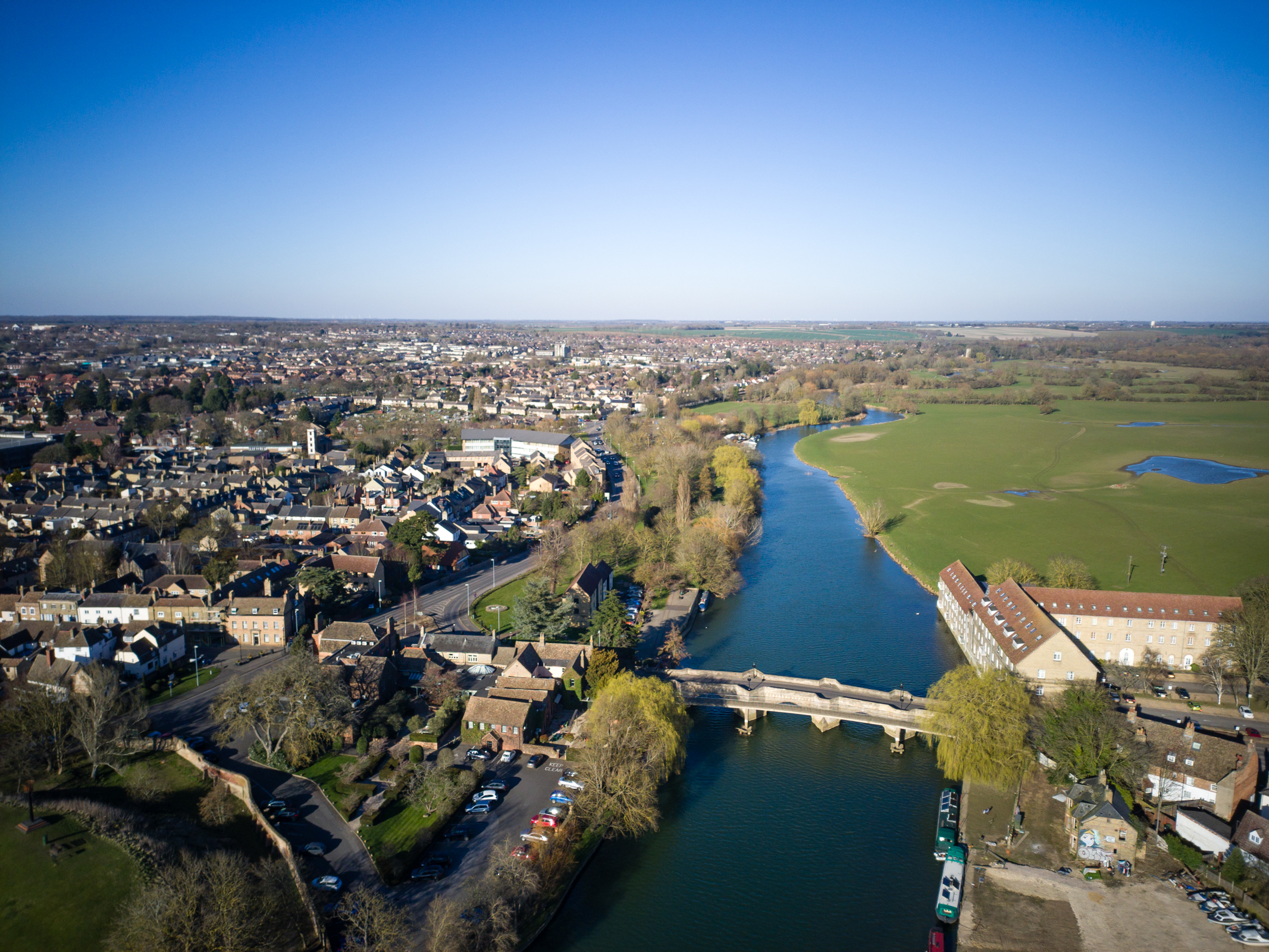
✅ You're on a budget: The Atom 2 is one of the most feature-packed sub-250g drones and it's available for such a competitive price – that's plenty of bang for your buck.
✅ You want stable videos: A 3-axis mechanical gimbal that stabilizes 4K 30fps video, in a fly more drone combo kit costing less than $400 / £400 / AU$700? Sign us up.
❌ You'd like collision avoidance: If you'd like the safety net of collision avoidance, which is particularly helpful for flying confidently in complex environments, you'll need to fork out extra for the DJI Min 4 Pro instead.
❌ You want all the drone's features straight away: Not all of the features listed for the Potensic Atom 2 were available at launch, such a log color profiles for video, and there's no guarantee they'll be added.
If you're looking for a complete folding drone in the largely restriction free sub-250g category, we think the Potensic Atom 2 is the top DJI alternative. It goes toe-to-toe with the DJI Mini 4K and in many regards the pricier Mini 3 and Mini 4 Pro, plus it represents 5 star value.
Building on the Atom SE and Atom, the Atom 2 boasts a complete feature set; it's 3-axis gimbal-mounted camera can shoot 4K video up to 30fps, plus stills in 12MP or 48MP resolution, although at launch 48MP stills are JPEG only. In testing, we were impressed by video quality and flight stability, and found subject tracking worked particularly well, while Quickshots deliver a range of easy flight moves, ideal for beginners hoping to easily improve their aerial videos.
There's also neat modes that include an interval timer for capturing timelapse videos, while Potensic says it's adding further improvements after launch, including a flat 'log' color profile, ideal for grading videos. All in all, the Potensic Atom 2 is a majorly impressive drone. DJI who?
Read our in-depth Potensic Atom 2 review
The best beginner FPV drone
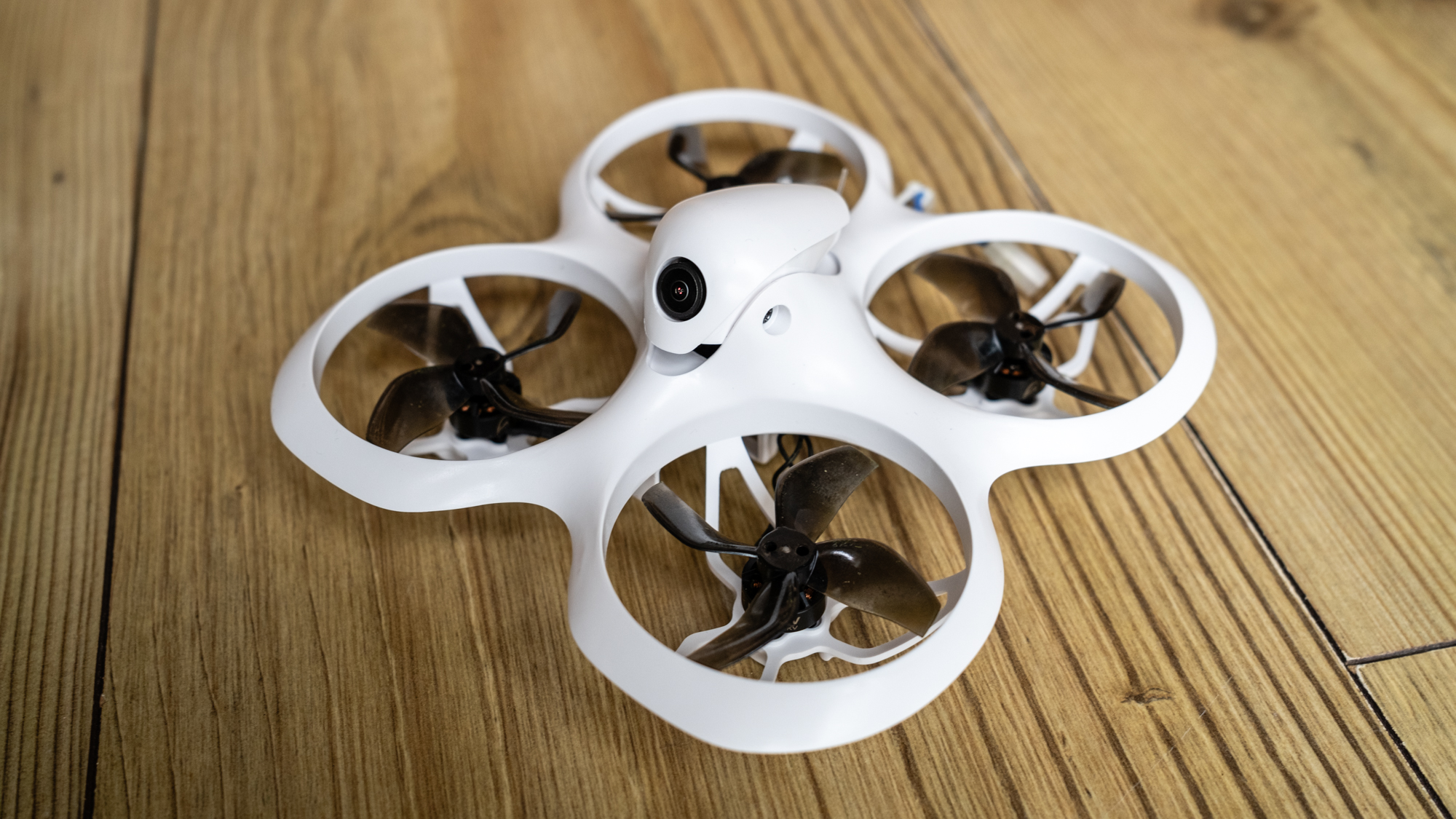
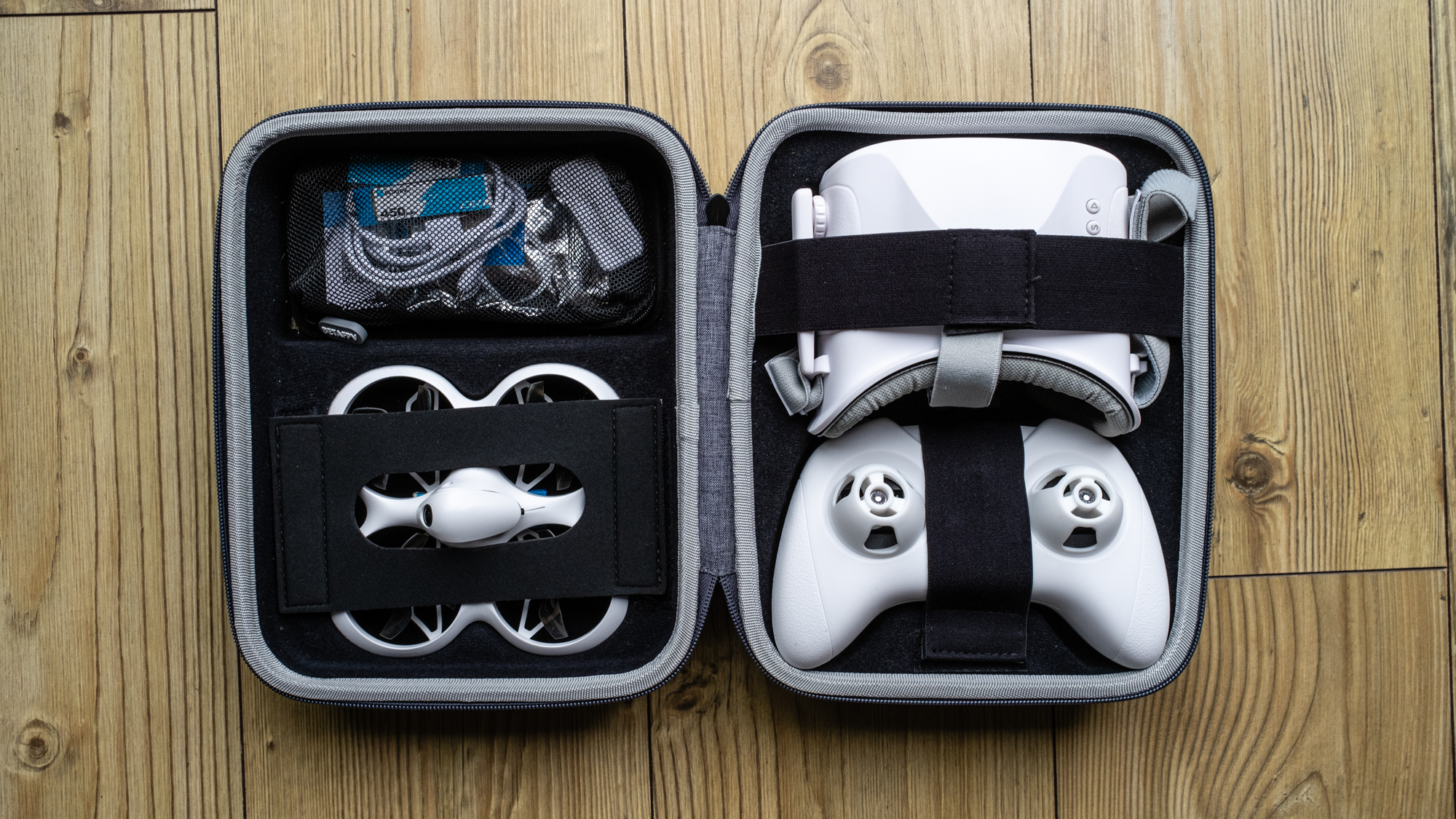
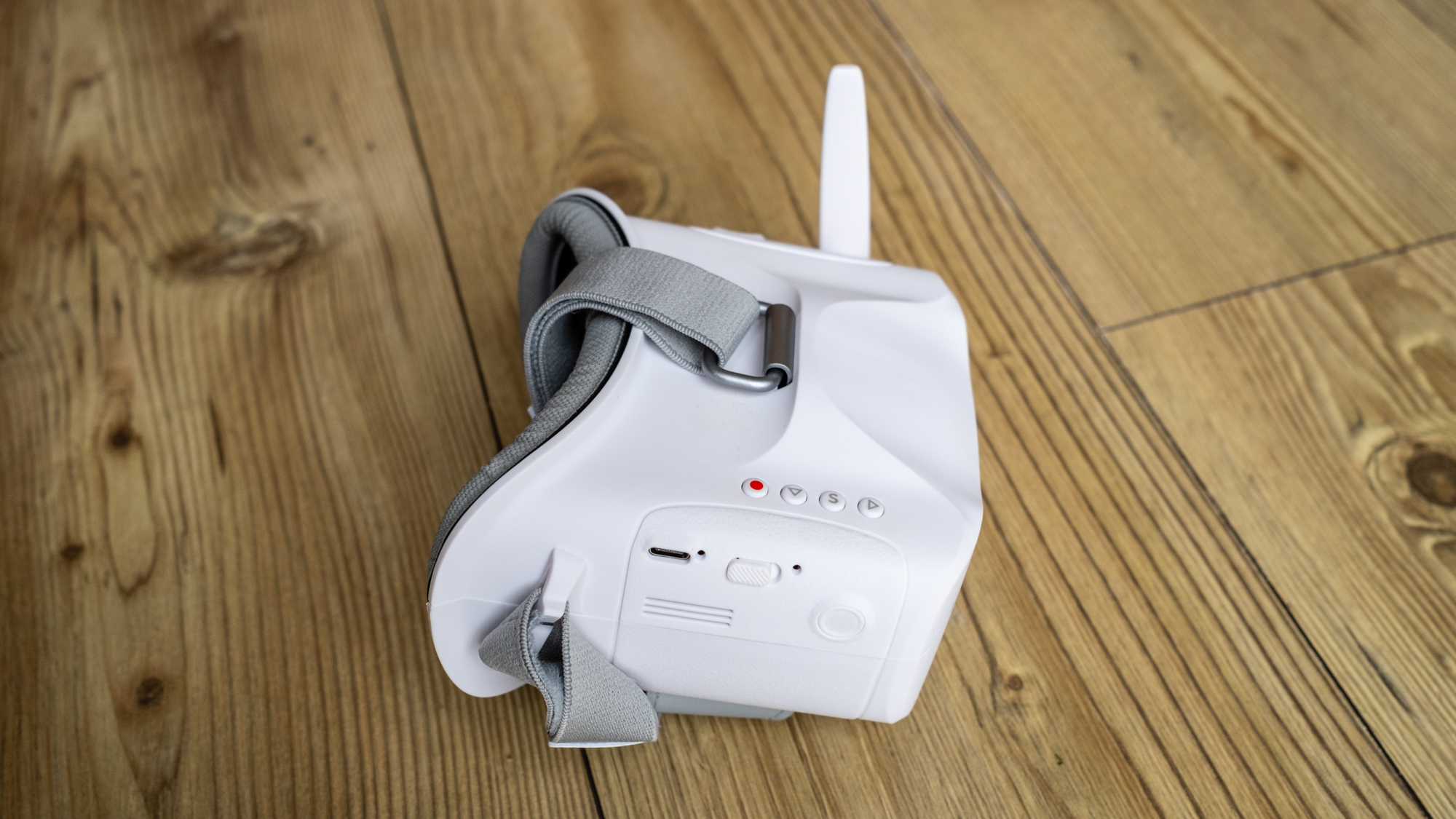
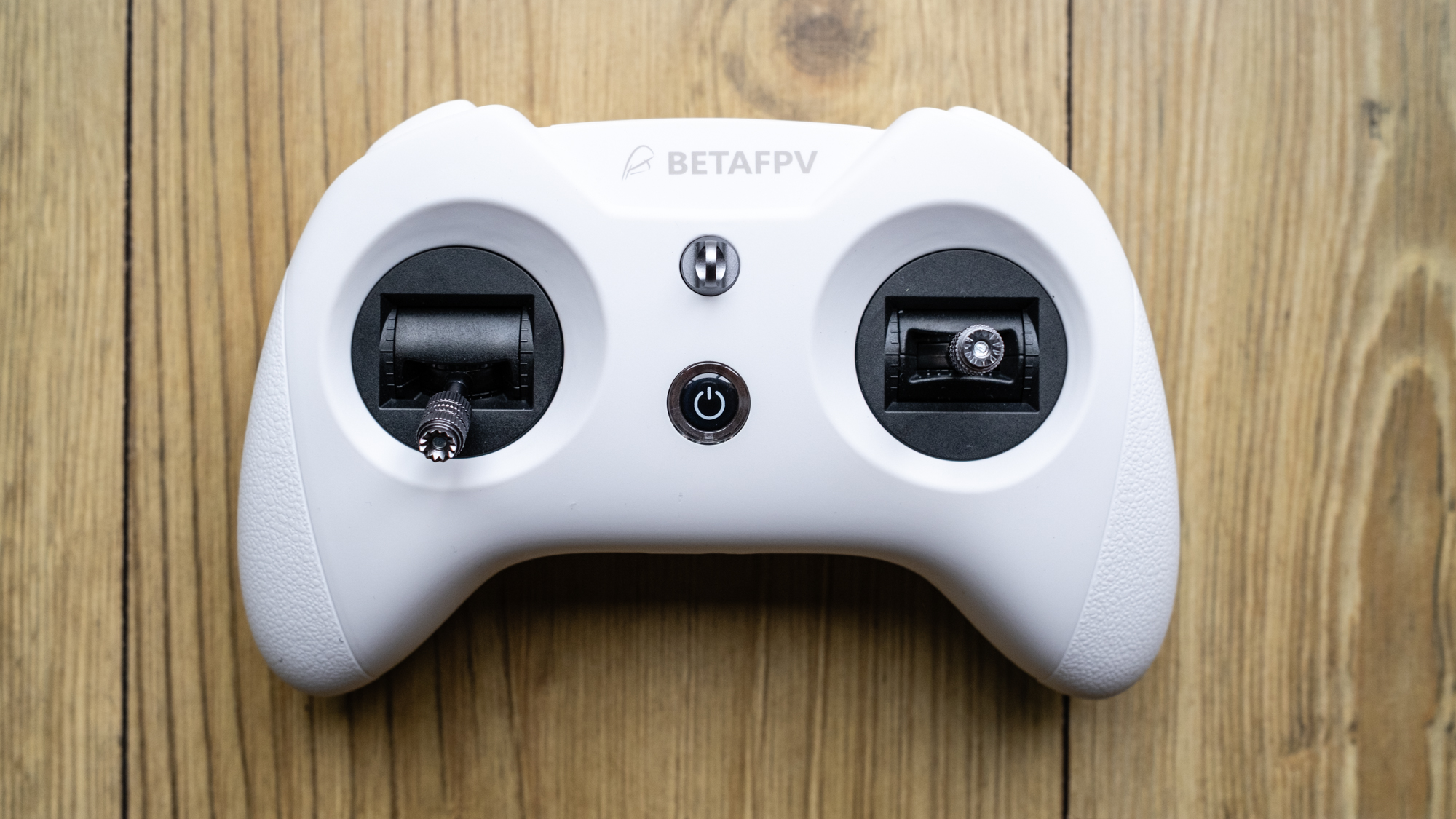
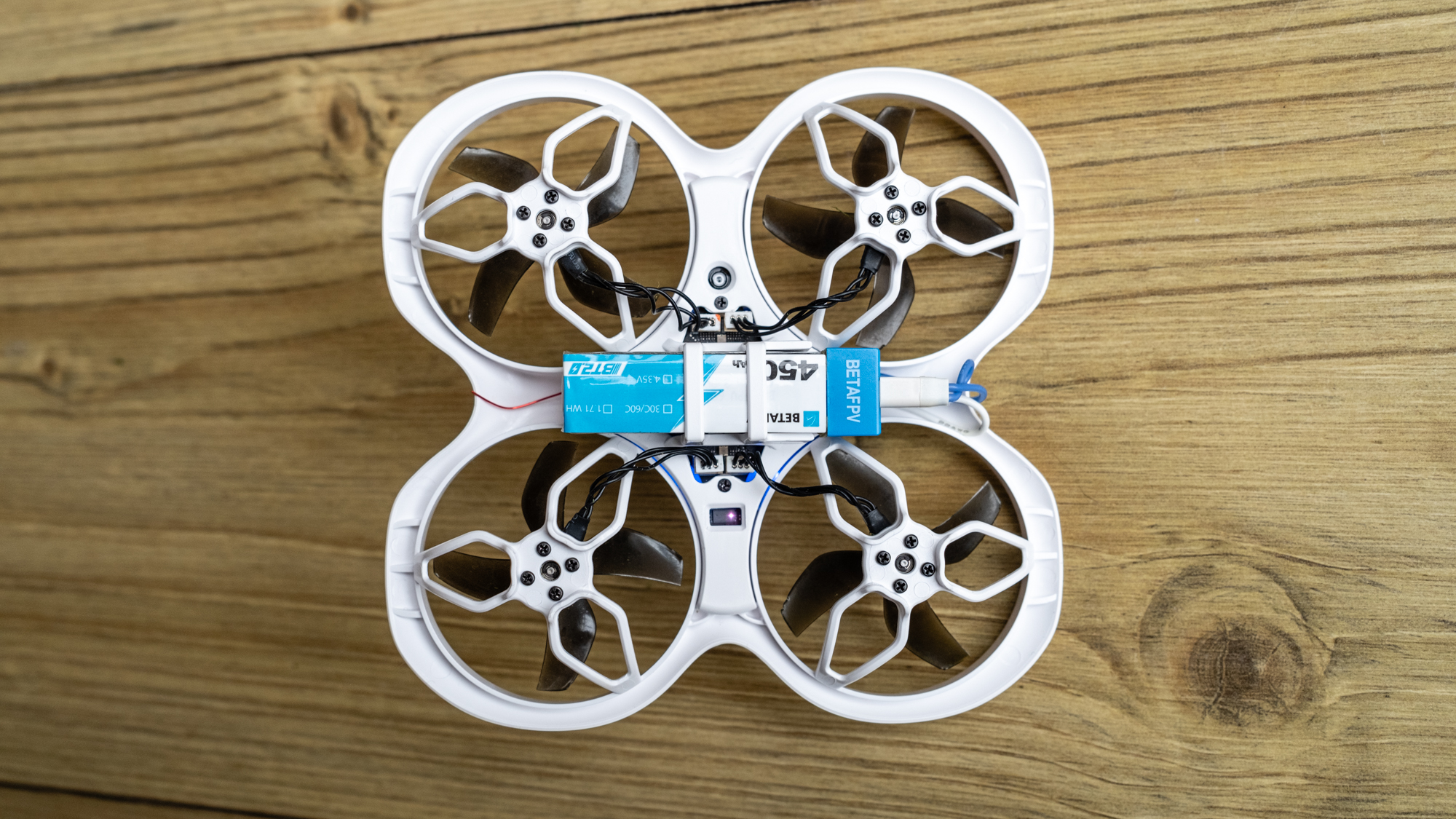
Specifications
Reasons to buy
Reasons to avoid
✅ You want to try out FPV flying: This is the ready-to-fly FPV kit for those looking to try their wings.
✅ You want a high octaine drone experience: Once you get to grips especially with the Manual/Acro mode, FPV drones are hugely fun and exciting.
❌ You want to take aerial photos: FPV drones are primarily for flying and not photography.
❌ You get motion sick: If you typically suffer from motion sickness, FPV drones in general might not be for you.
If you want to try flying an FPV drone, we think the BetaFPV Cetus X Kit is a top choice. As a package, it comes with everything you need for first-person flight, including a transmitter and a basic set of goggles. More powerful than models like the Cetus Pro, we found that its multiple flight modes and speed settings also make it an FPV drone you can grow with. Provided you have the stomach to stick it out without succumbing to motion sickness, the Cetus X will reward you with an immersive flying experience.
During our review, it took time and patience to master the Manual/Acro mode. Crashes are also inevitable, and while the frame is built to withstand impacts, it did crack in our tests. We also found the video feed prone to break-up and interference, and while a built-in DVR can record flight feeds, this isn’t a drone for stills photography. Battery life was also a disappointment, rated at just five minutes. But with enough power to perform simple freestyle tricks and everything in the box to get airborne, this is our favorite FPV kit for first-timers.
Read our in-depth BetaFPV Cetus X review
The best selfie drone
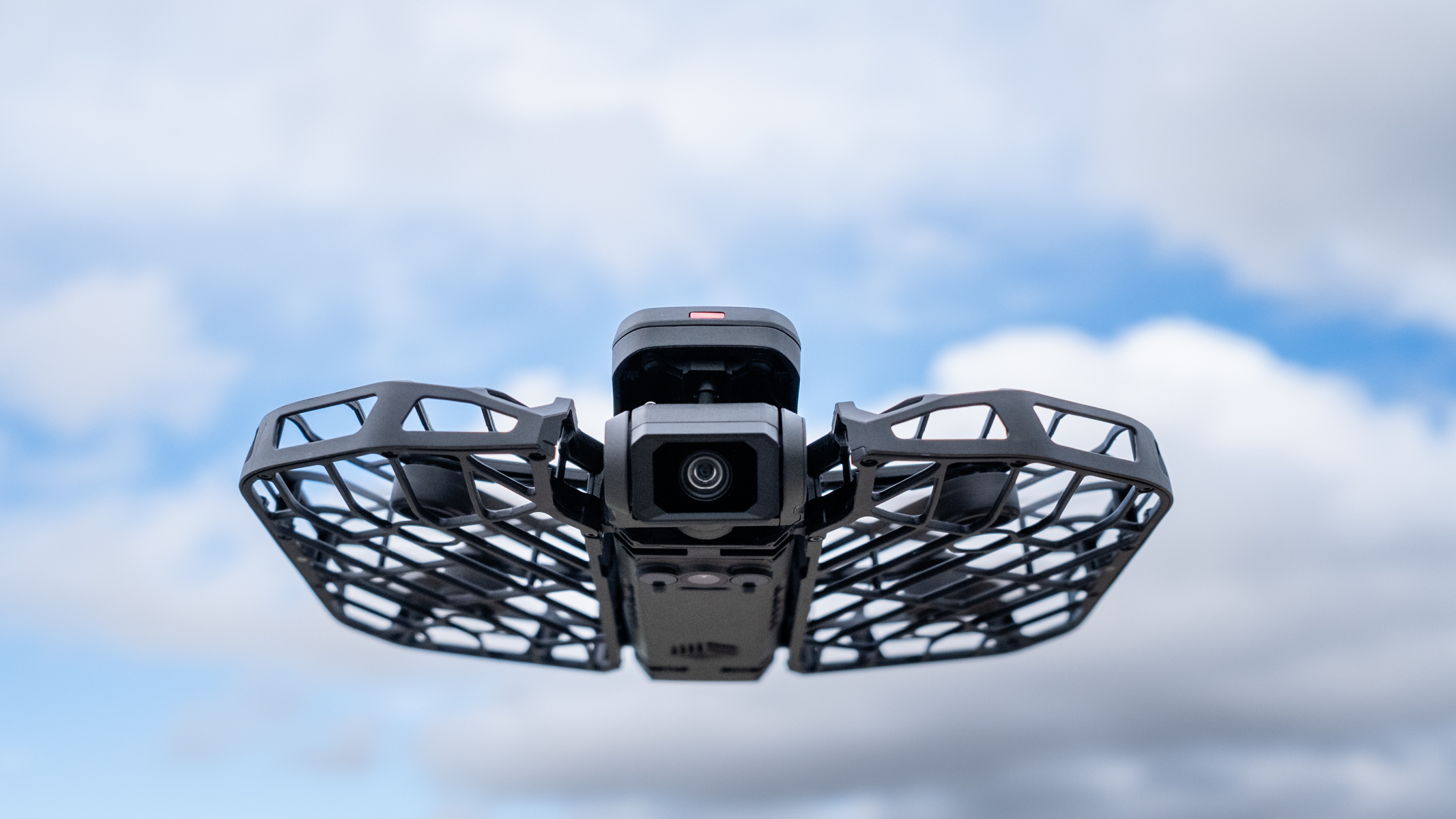
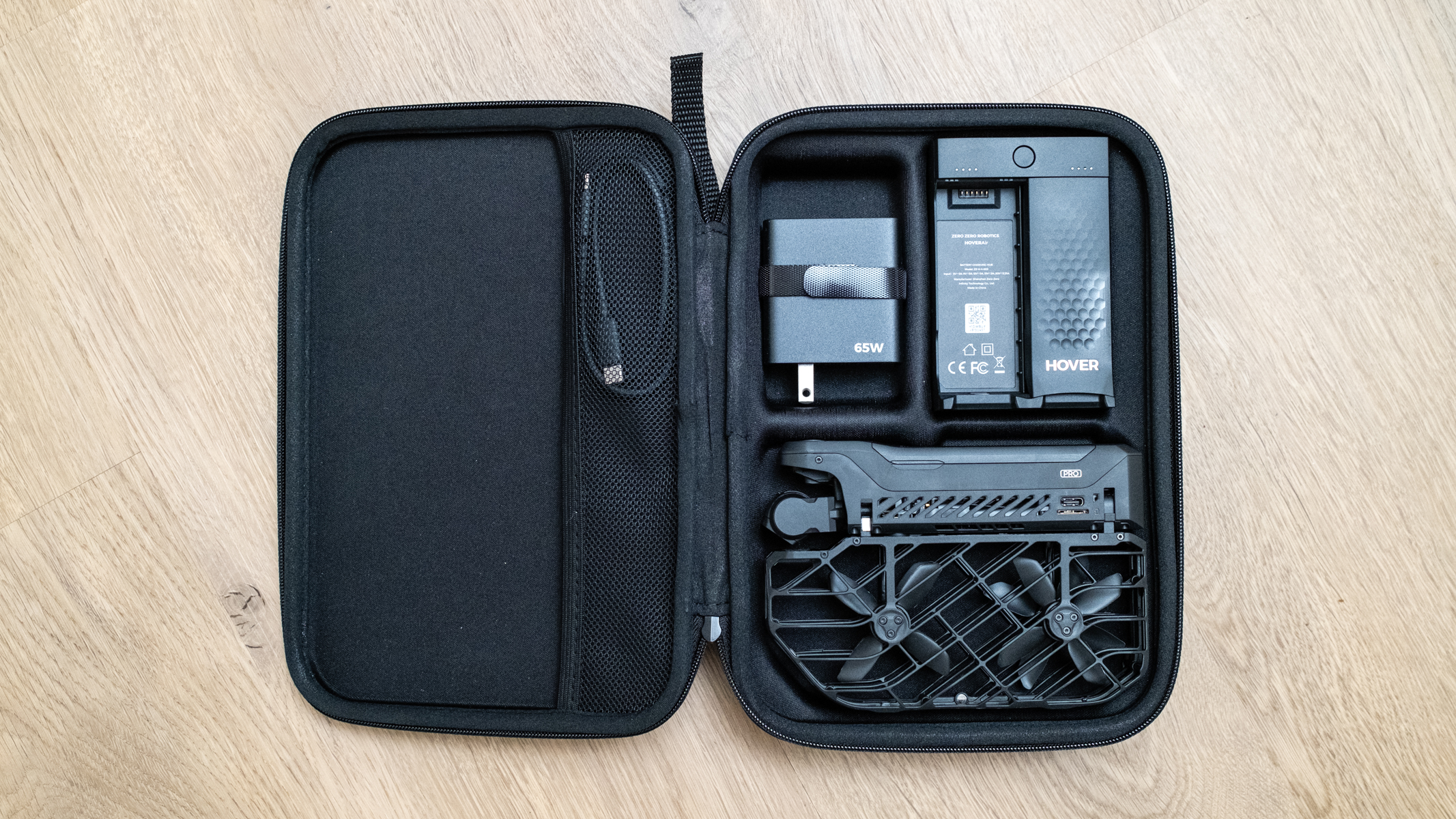
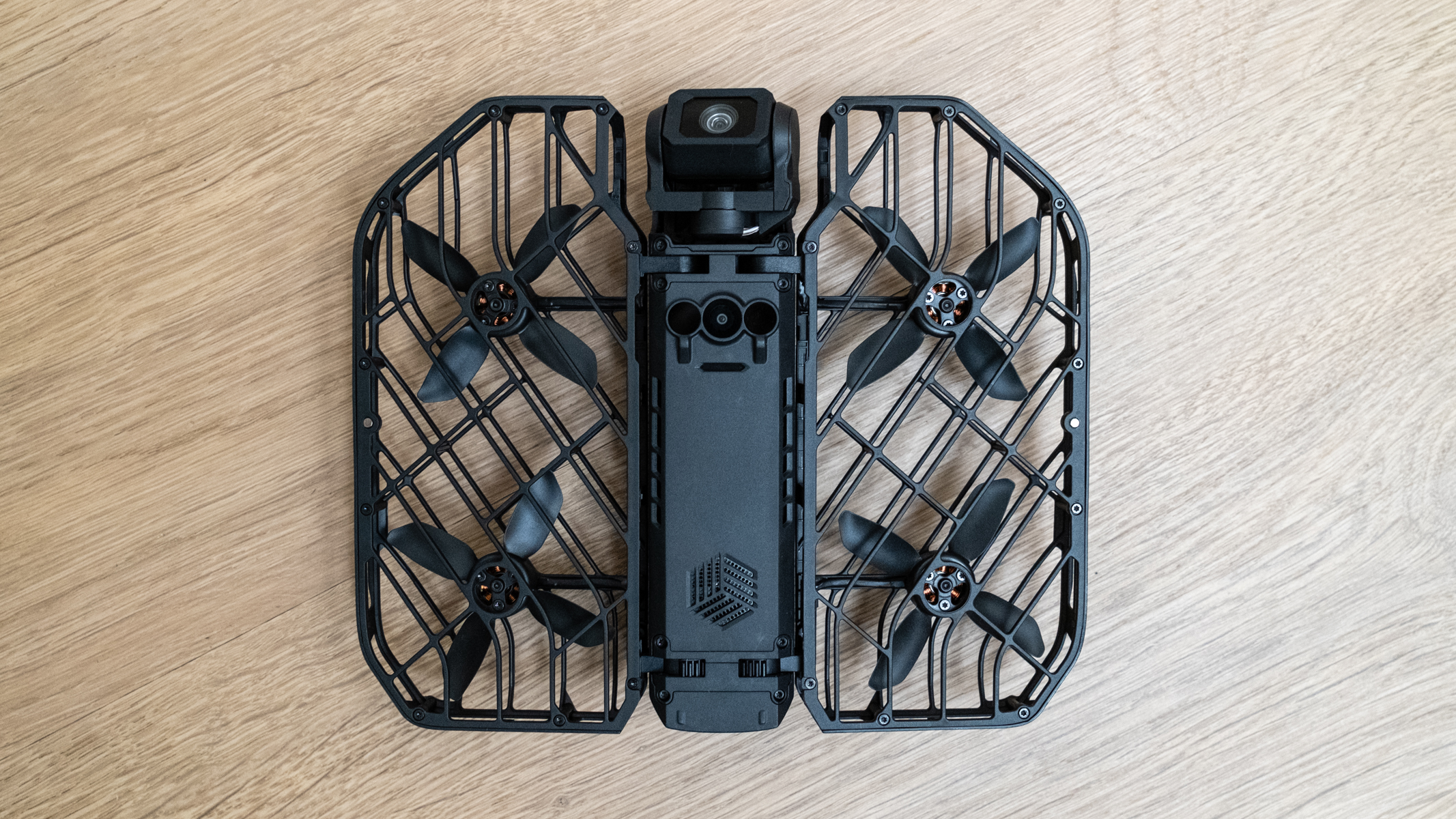
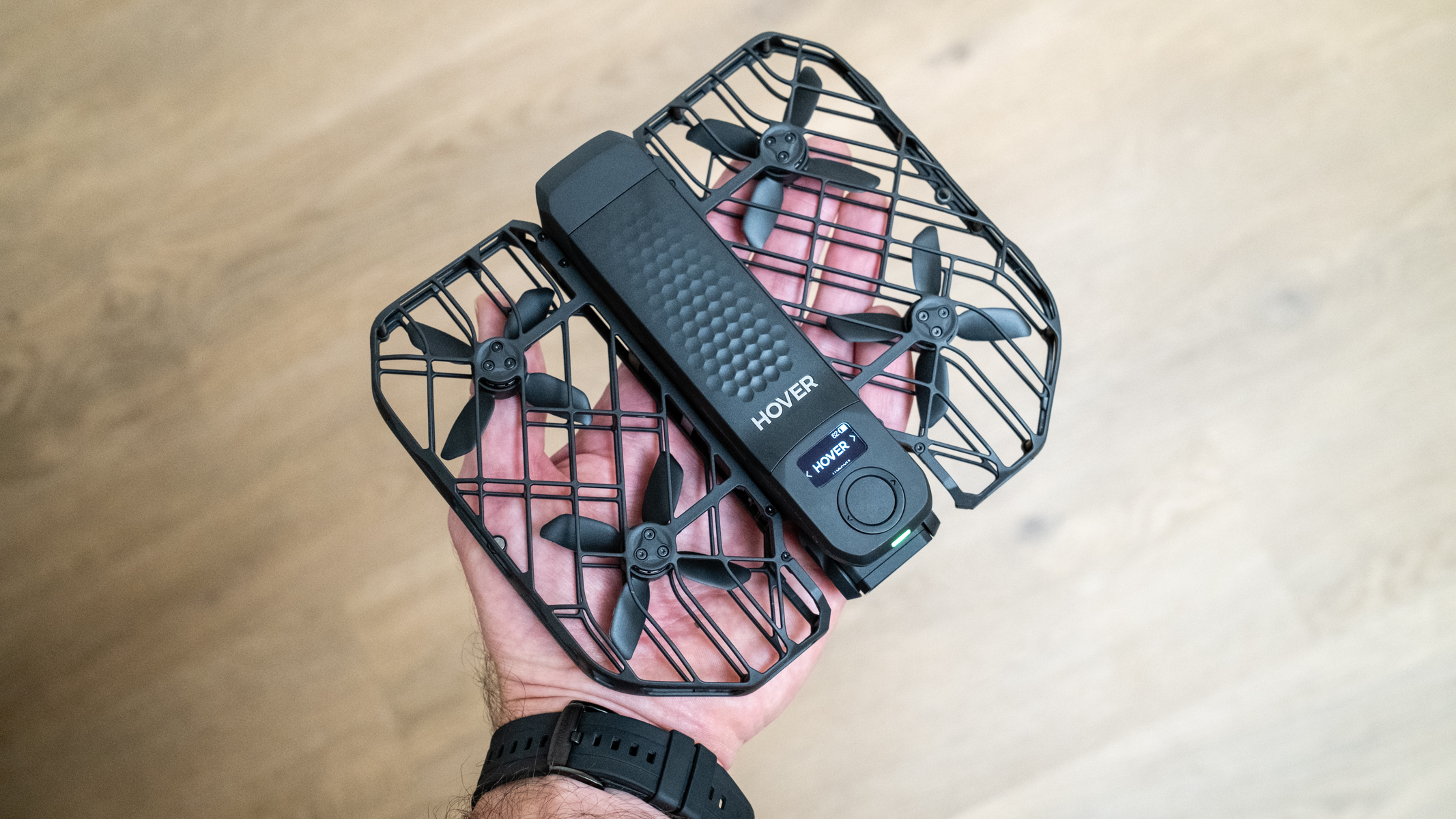
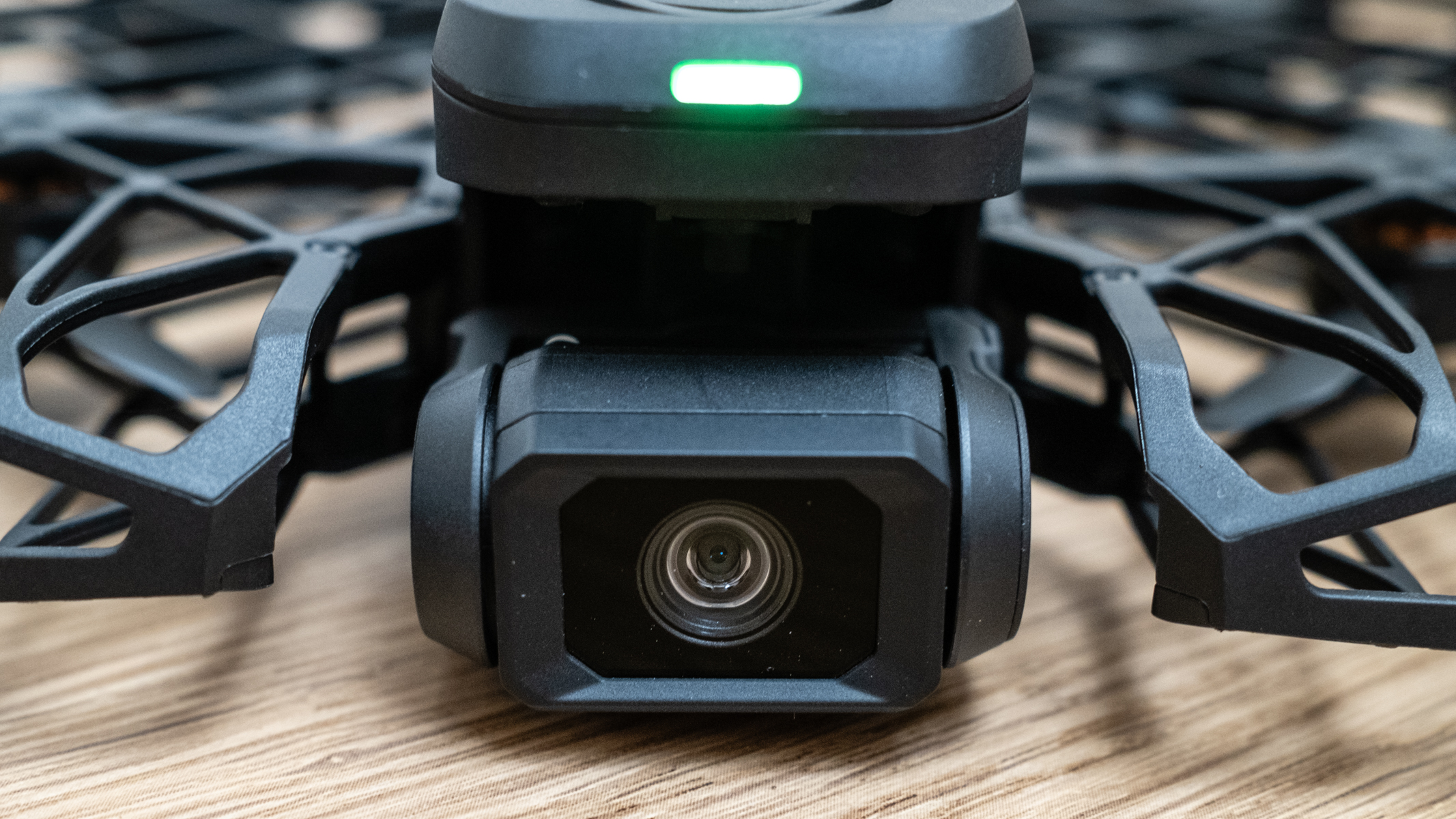
Specifications
Reasons to buy
Reasons to avoid
HoverAir X1 Pro sample images
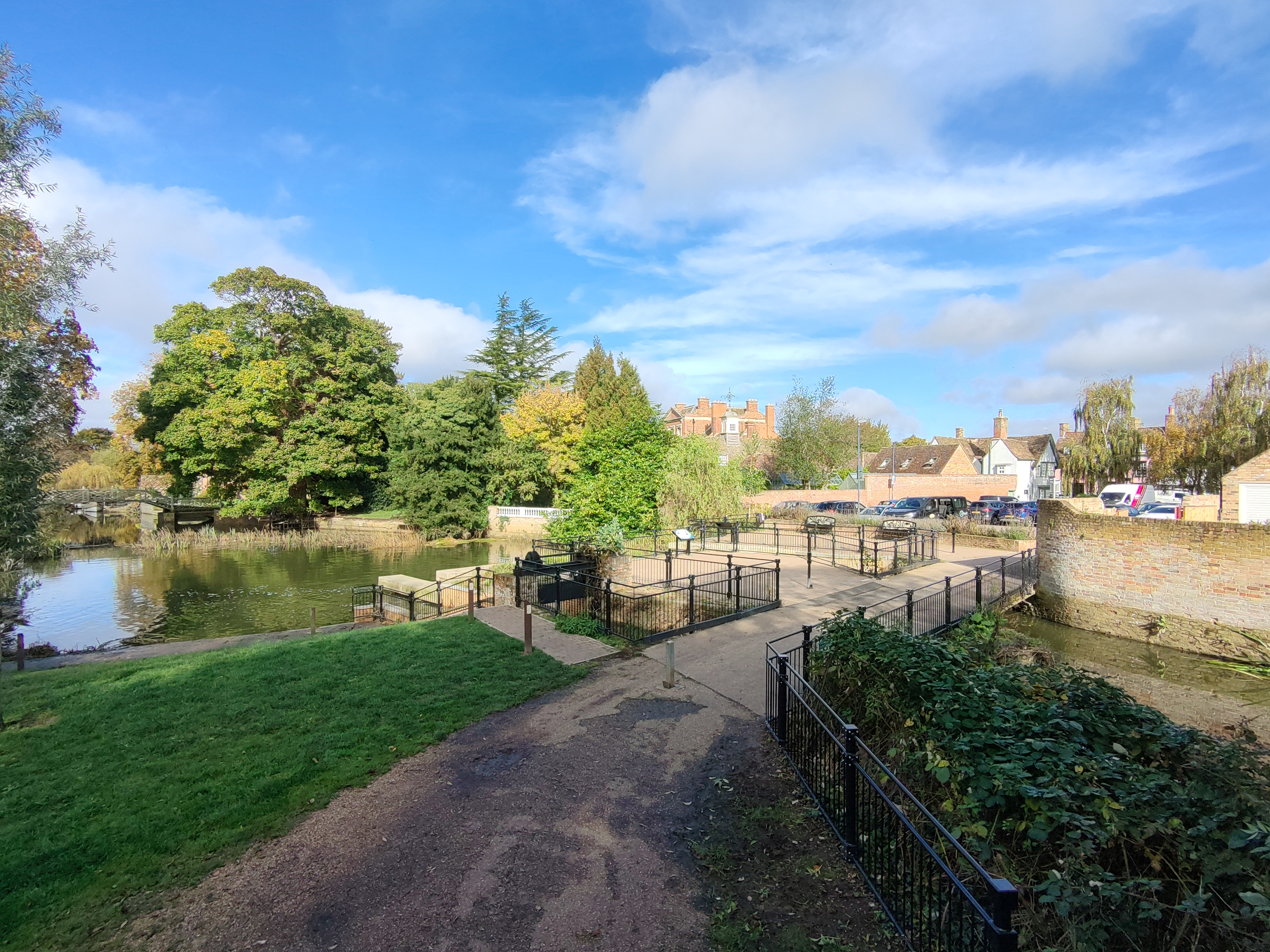
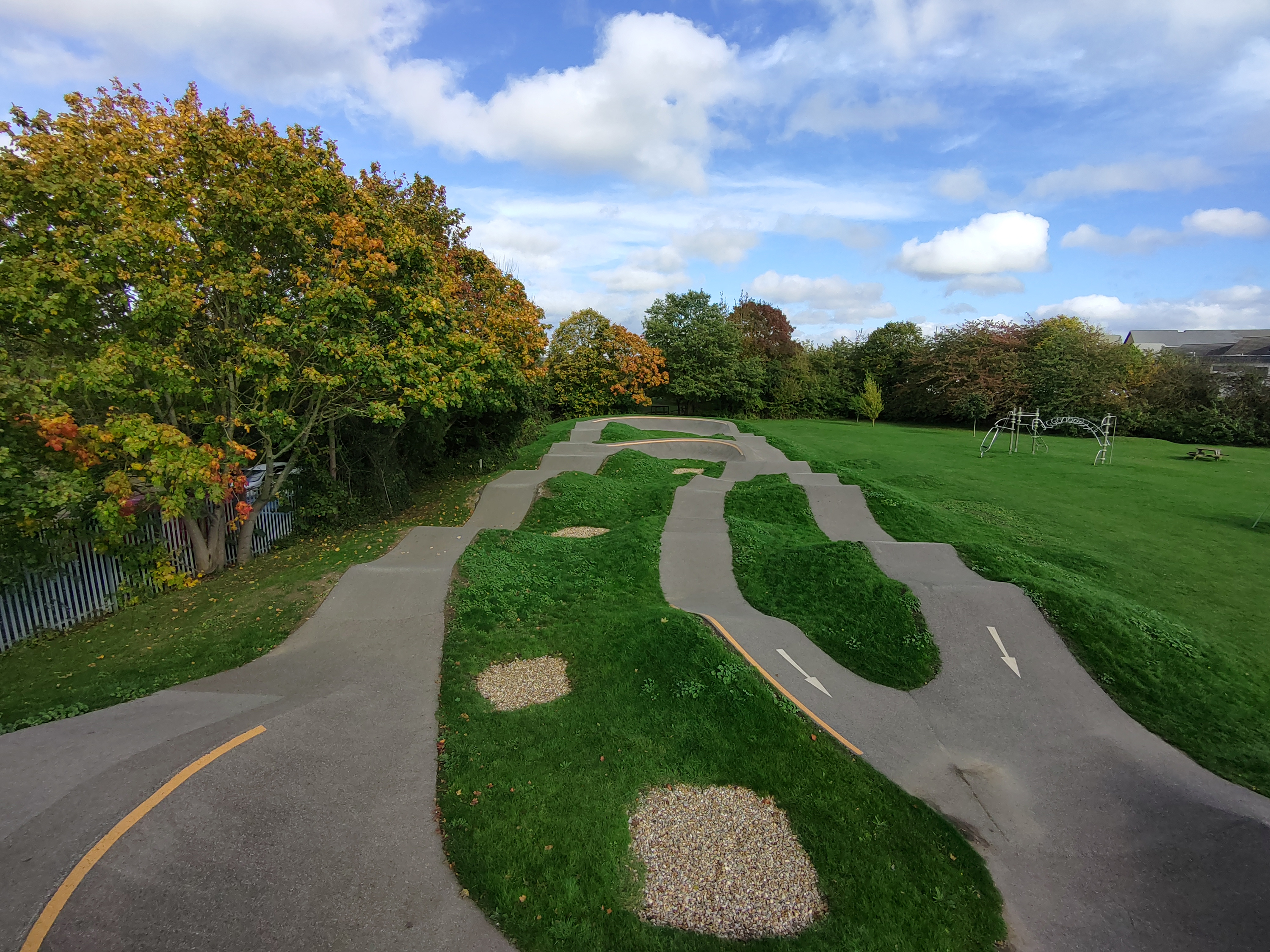
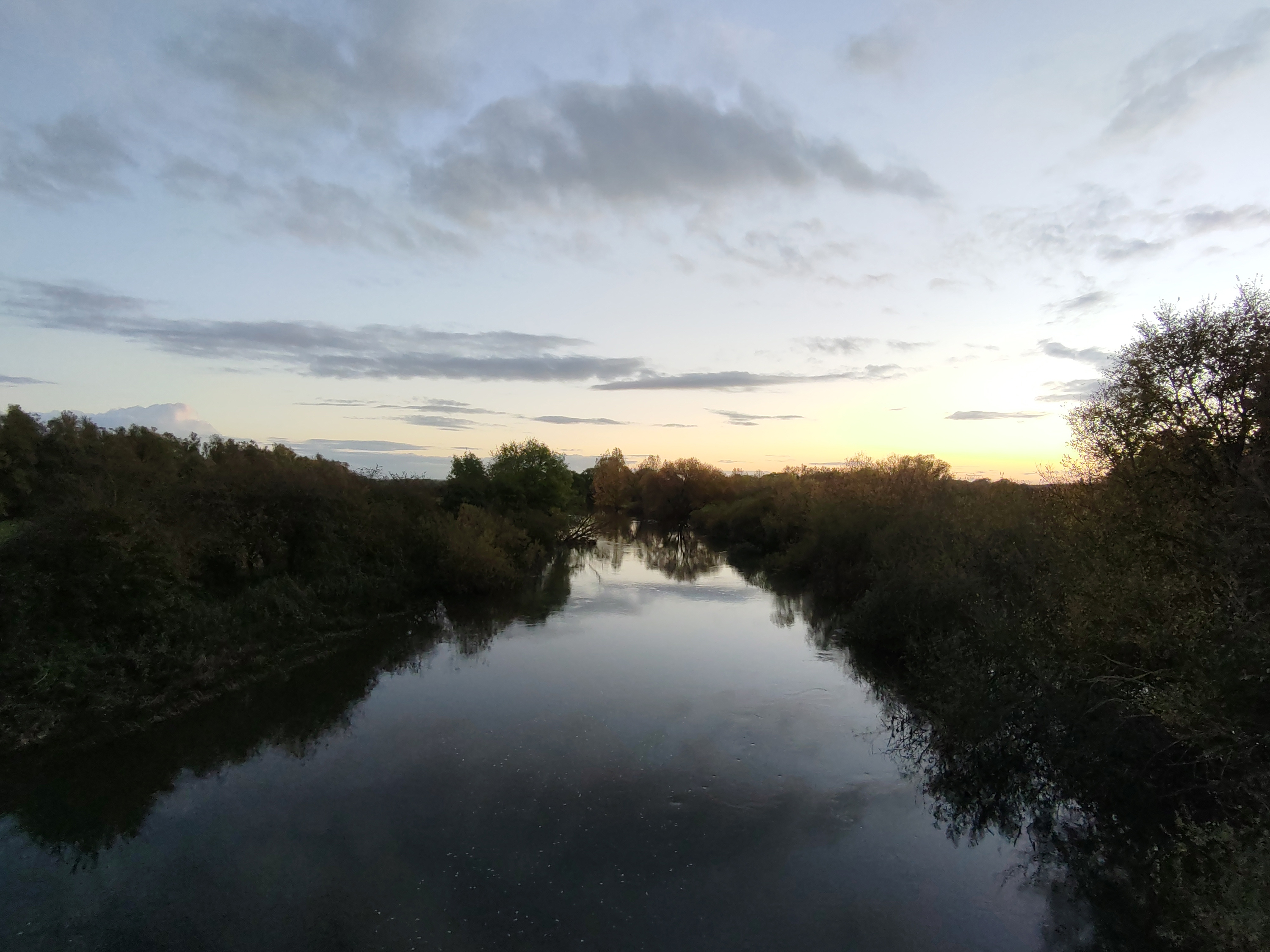
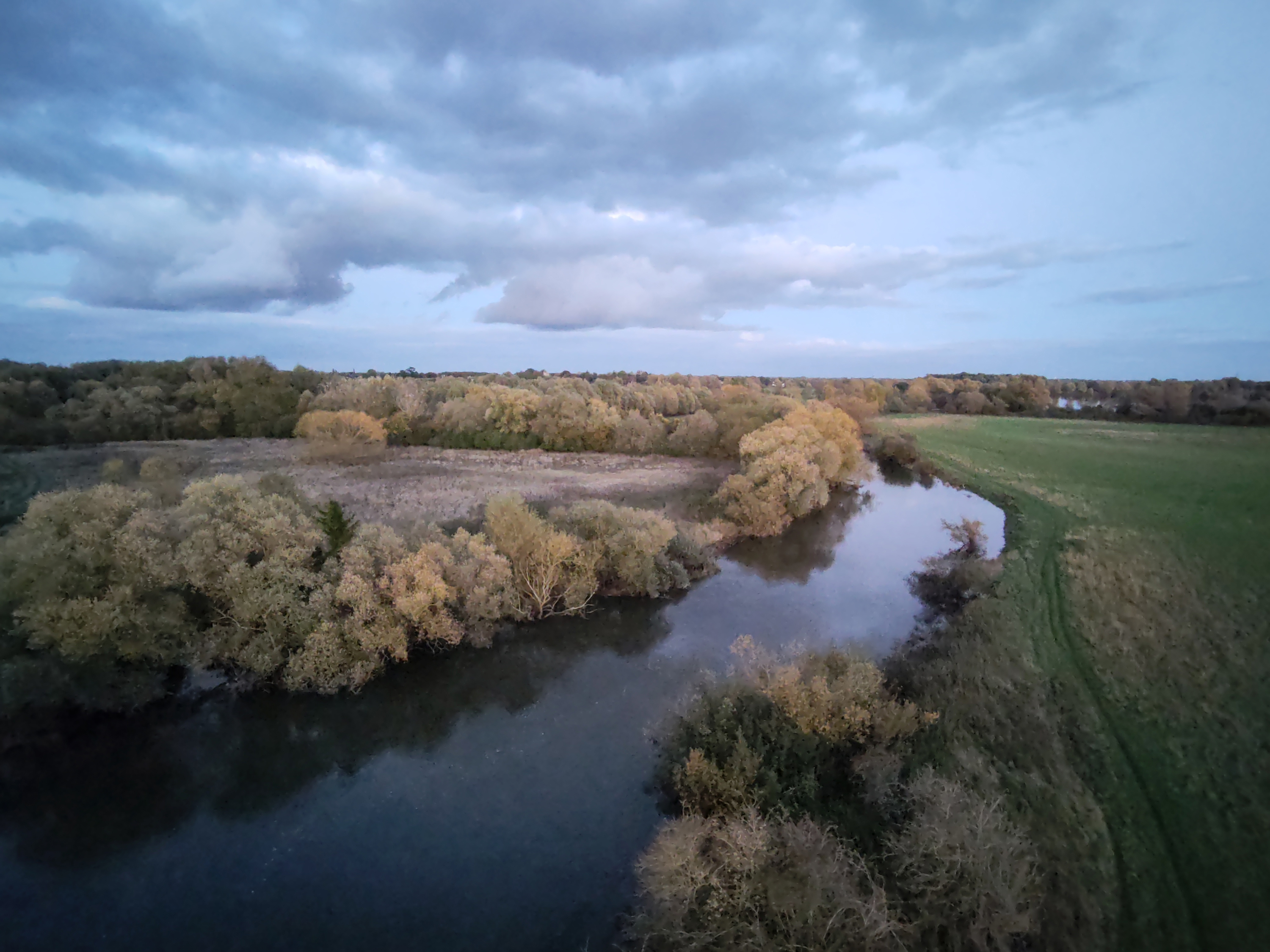
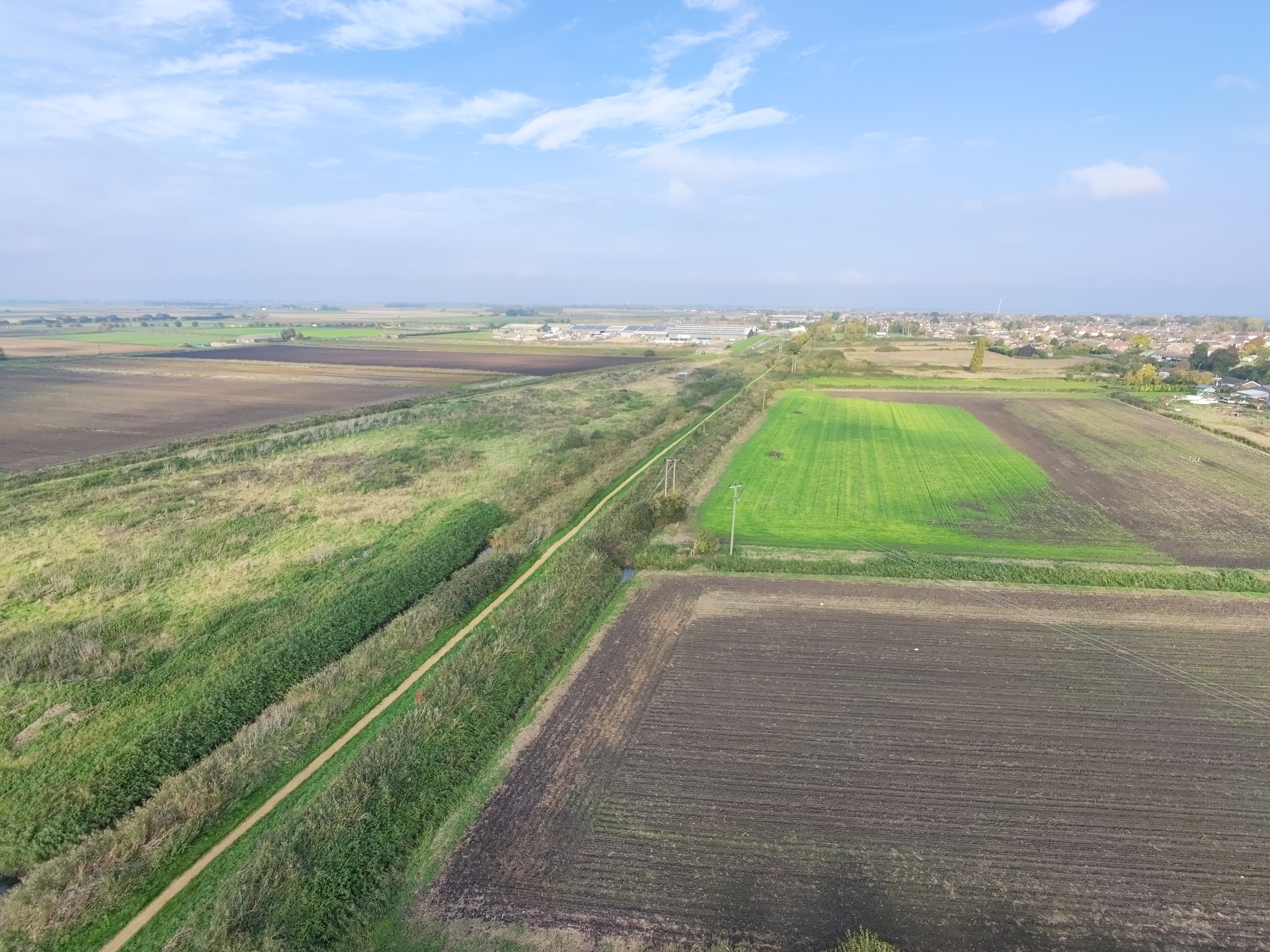
✅ You have zero drone experience: You can get airborne in a matter of seconds and get flying with no experience.
✅ You want aerial selfies: The smooth 4K video and excellent tracking features combine for selfies with a difference.
❌ You want a super quick drone: The HoverAir X1 Pro better for steady aerial selfies than it is adrenaline-fuelled fast flight manouevers.
❌ You want the best bang for buck: The DJI Neo (see below) costs a lot less even if it isn't quite to the same quality for aerial selfies.
If you're new to drones and simply want explore what these aerial devices are about and have a lot of fun along the way, the HoverAir X1 Pro is an excellent choice. Think of it as a selfie stick on steroids, with supremely clever automated subject tracking. If you want aerial footage of your adventures, tracking you running or on a bike or at the beach, look no further.
The X1 Pro is a tiny drone for which you need no prior experience, taking flight from the palm of your hand ready to record 4K video in a matter of seconds from unboxing. It's a supercharged upgrade of the HoverAir X1, and despite being 50% heavier, it's still a featherweight 191.5g and folds down super small, with its propellors safely behind guards for safer flight.
It might cost a little more than the X1, but you get a sturdier flight experience with higher wind resistance, much better battery life, plus that higher resolution 4K video. Overall, it is the better choice if you can stretch your wallet a little further. That said, the DJI Neo is much, much cheaper if you don't need the same degree of robustness and 4K video specs.
If you're after a convenient and portable selfie drone for some automated flight fun, the X1 Pro is our top pick.
Read our in-depth HoverAir X1 Pro review
The best multi control drone
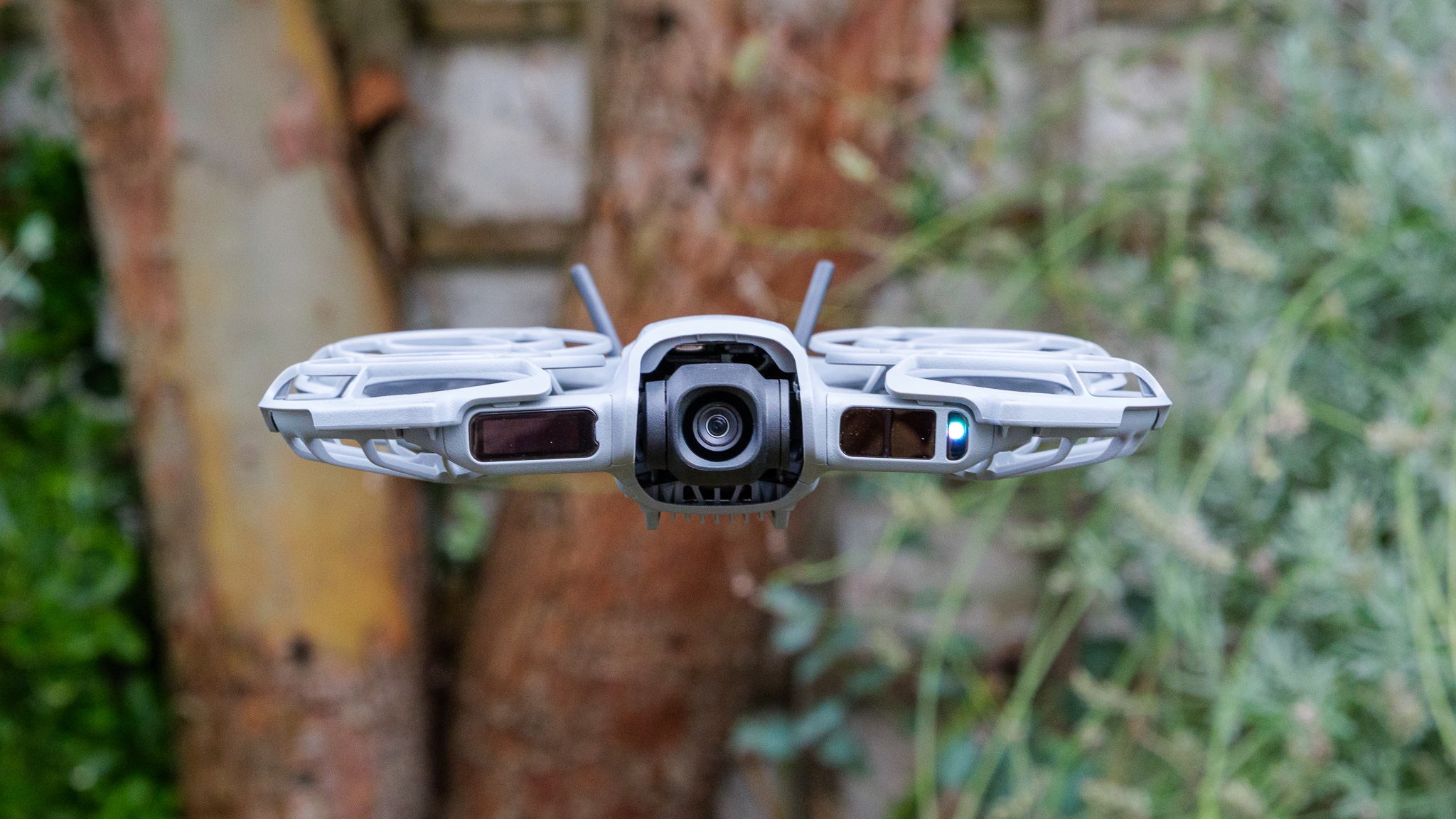
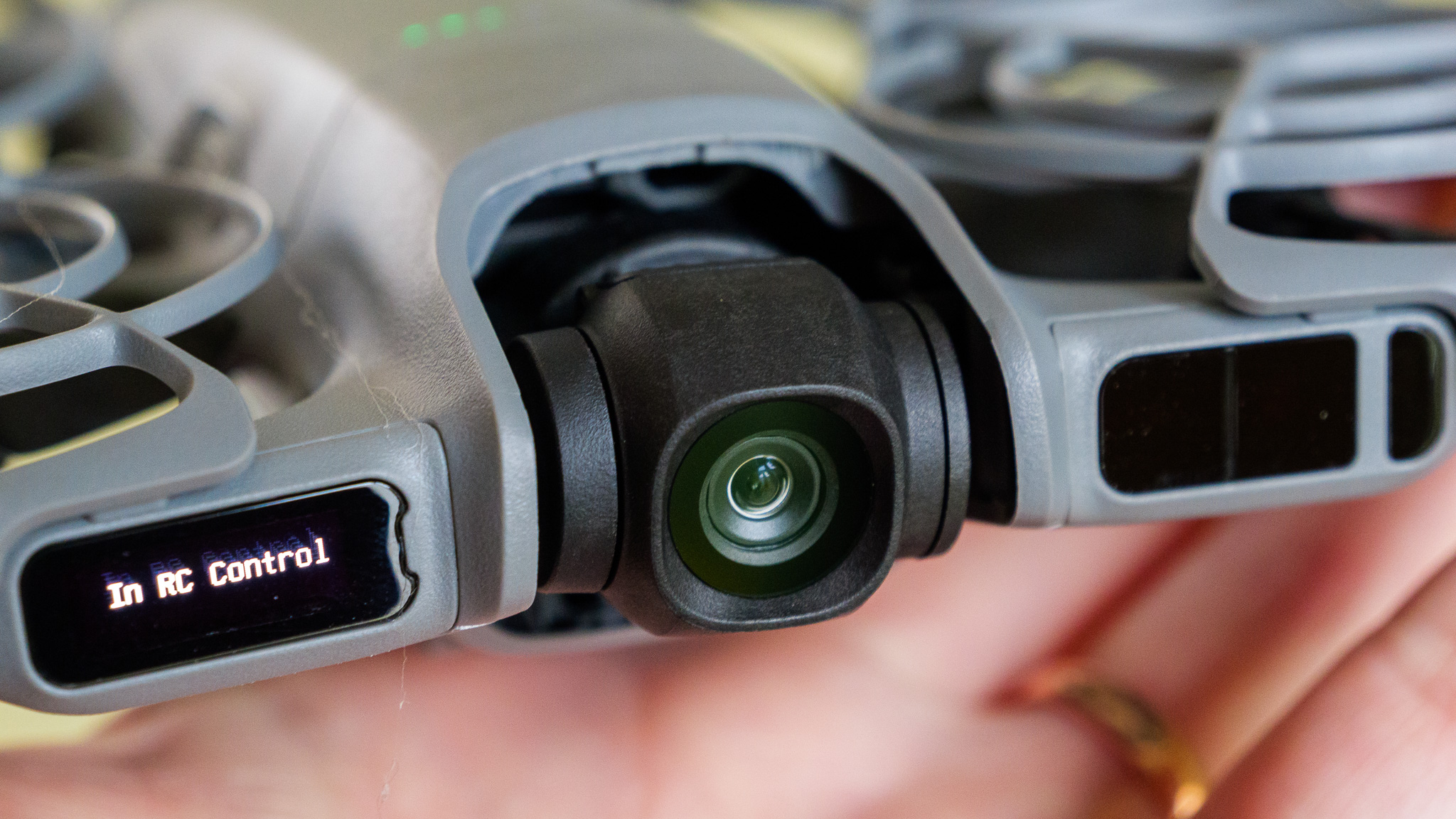
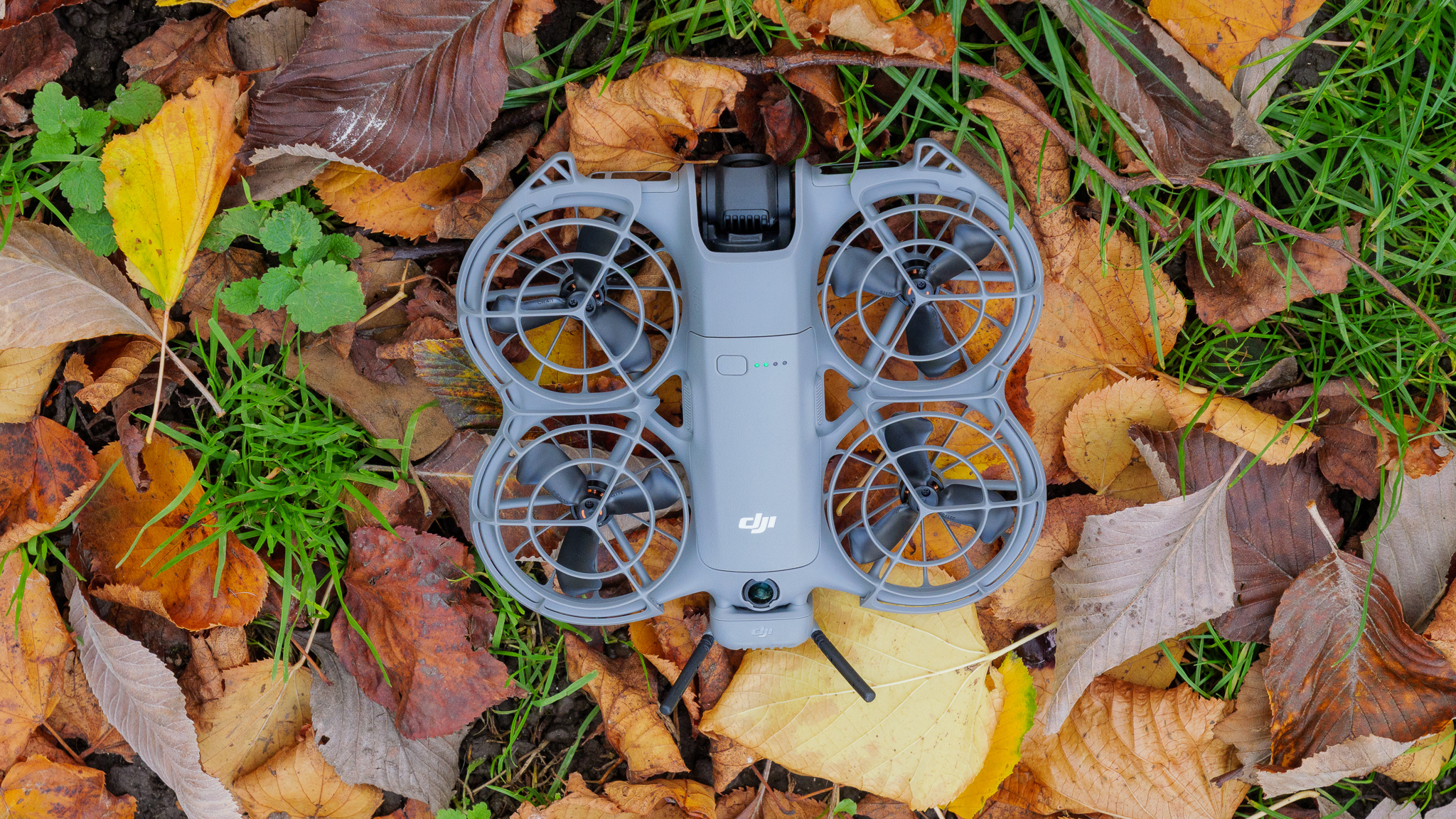
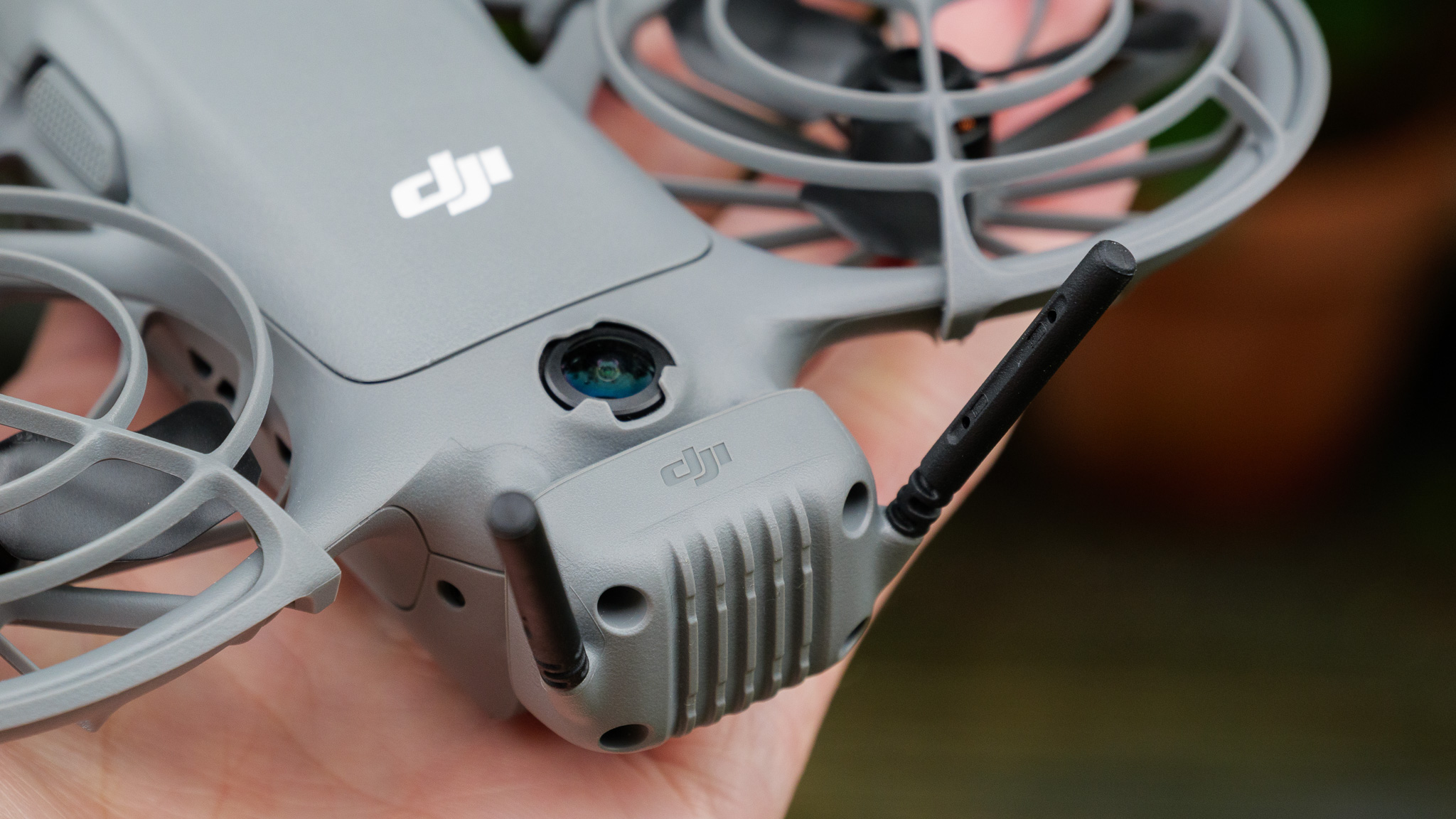
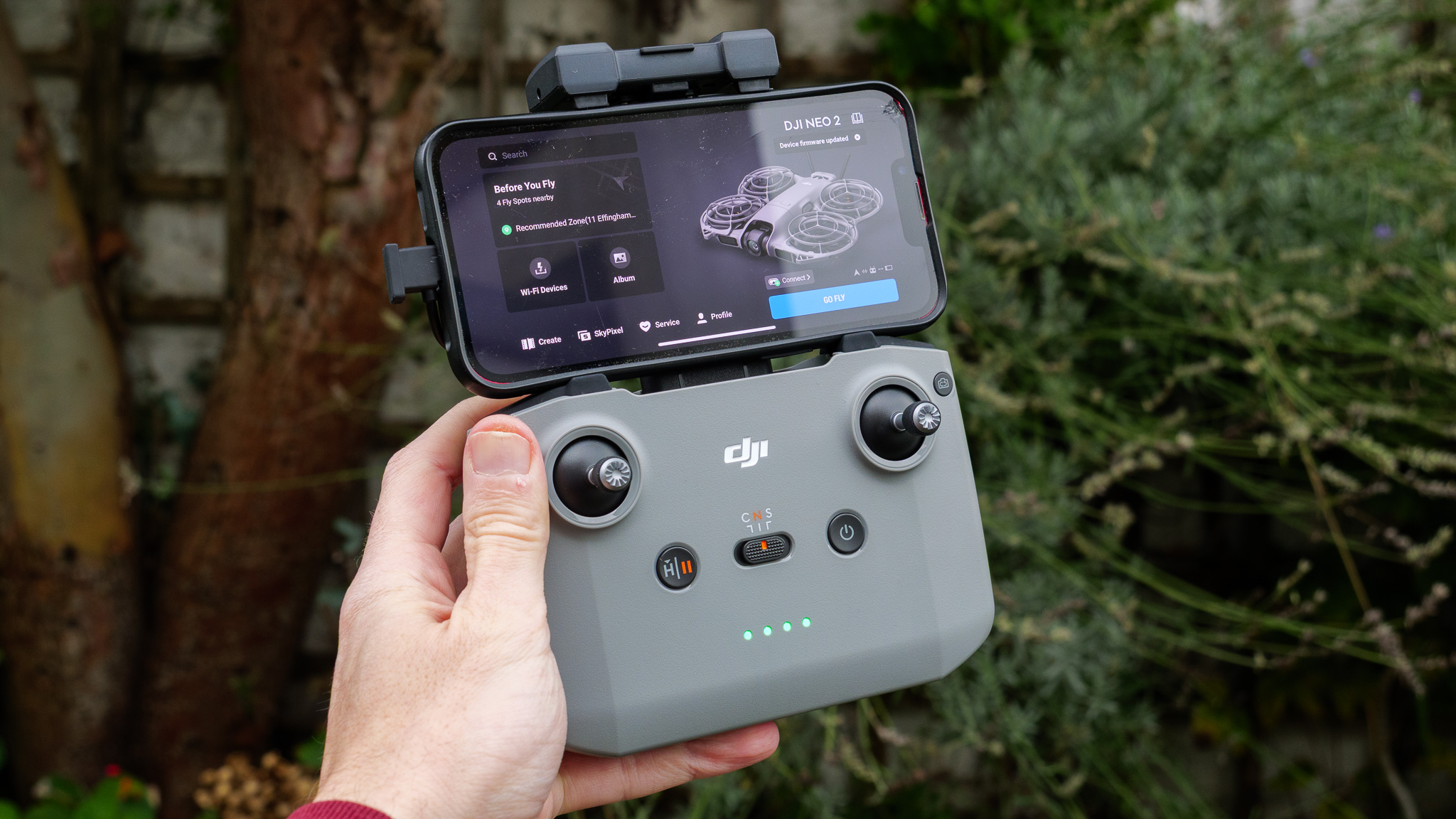
Specifications
Reasons to buy
Reasons to avoid
DJI Neo 2 sample images
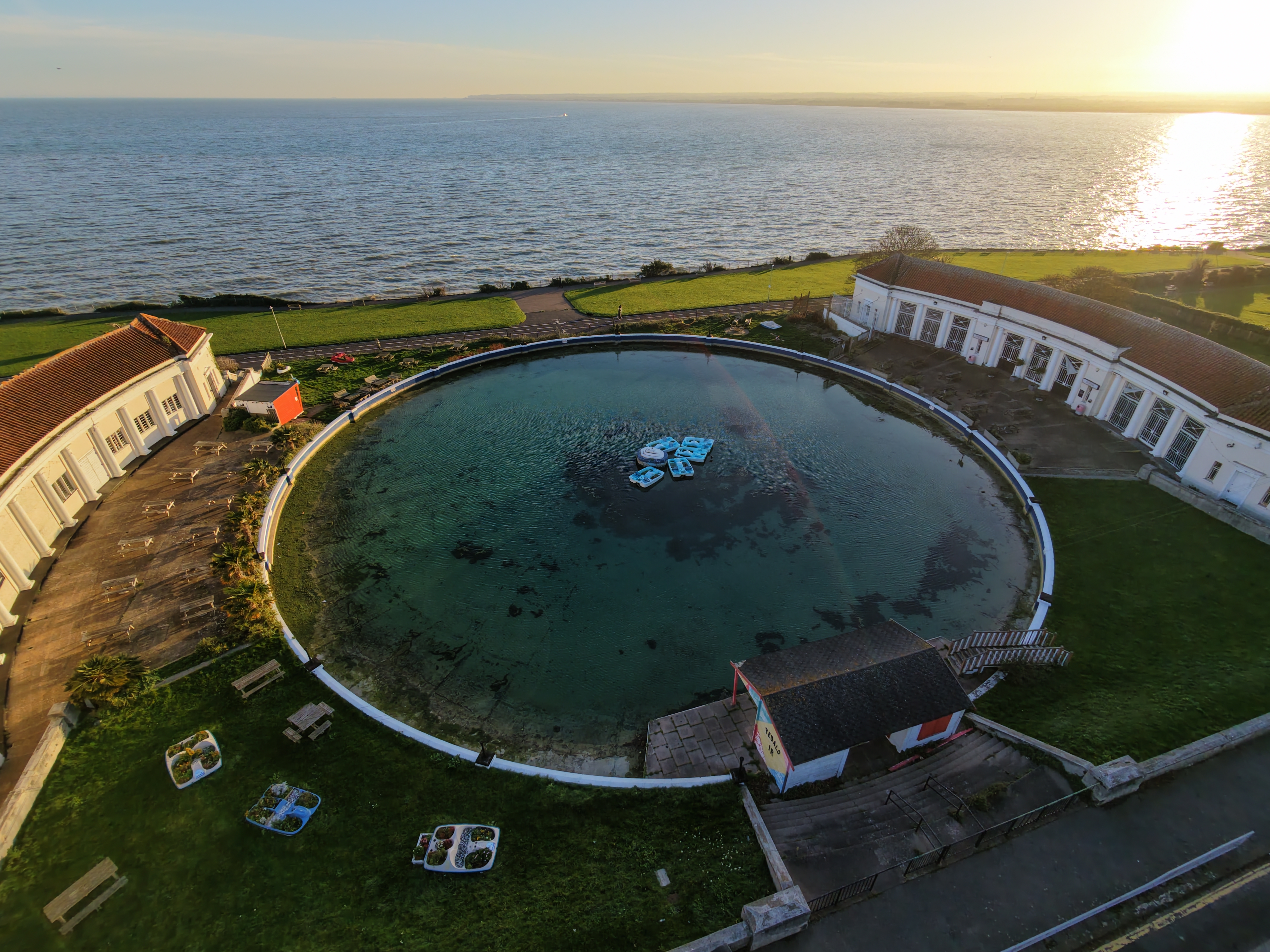
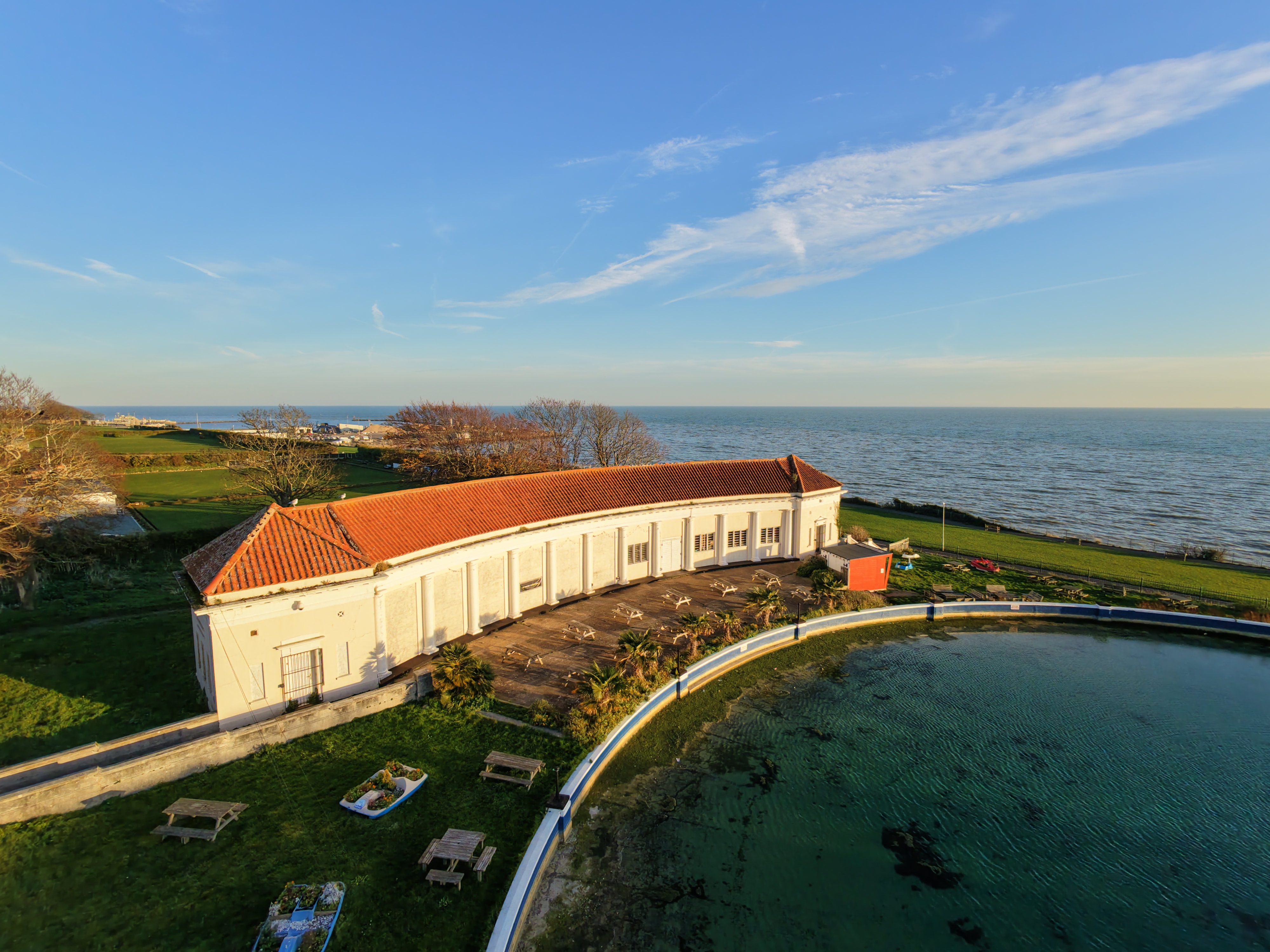
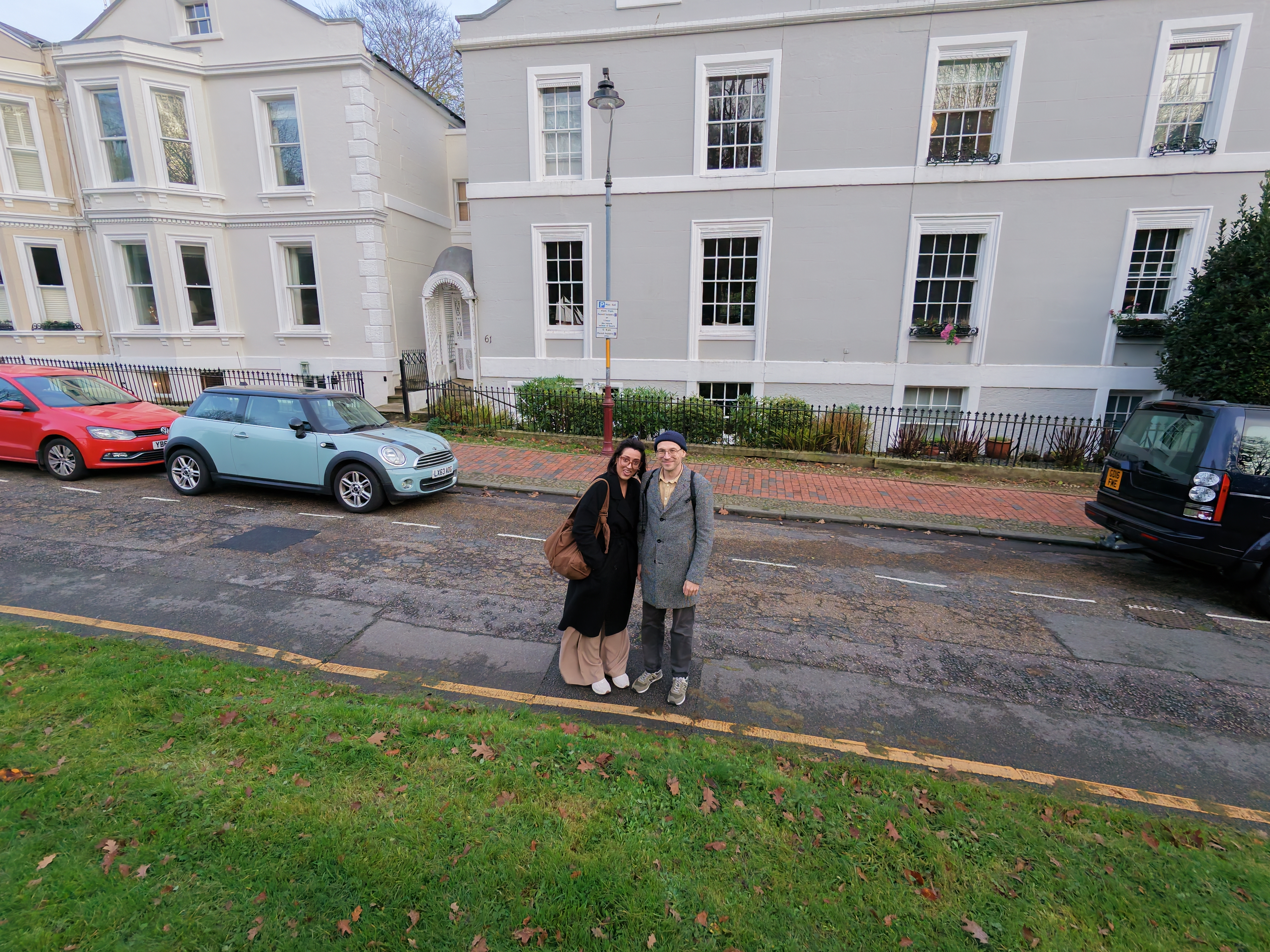
✅ You want a small, simple drone: With controller-free flight and obstacle avoidance, the Neo 2 keeps things beautifully simple – and safe.
✅ You want quality on a budget: If you purchase the base kit, the Neo 2 represents great value for the level of features and performance it offers.
❌ You're looking for advanced camera performance: Photos are JPEG only, while video color profiles are automatic, meaning limited editing scope.
❌ You want a real FPV drone: If you already DJI's FPV goggles and controller, the Neo 2 is a nice cheap alternative to the Avata 2 – but it's not fast or responsive enough to replace one.
The DJI Neo 2 retains the core appeal of the original model (it's affordable, simple and small) while packing on some meaningful improvements.
For me, the headline upgrade is the addition of an omnidirectional obstacle avoidance system. One of the original Neo's weaknesses was a tendency to crash, particularly when you were using one of its automated flight modes, but the new setup, with combined vision and LiDAR sensors, makes collisions a lot less likely. It'll happily follow along as you ride a bike, for instance, dodging trees and fences as it does so.
The camera has also been improved, with better image stabilization thanks to a new two-axis gimbal, higher frame-rate options for 4K video, and slightly improved sensitivity. And there's now almost 50GB of onboard storage, up from 22GB on the original model.
Flight time is a little on the short side, so investing in multiple batteries is recommended. On the control front, the option to supplement autonomous flight with manual control from a smartphone running the DJI Fly app or a full-blooded twin-stick controller makes the Neo 2 far more than a simple selfie drone.
Read our in-depth DJI Neo 2 review
The best 360 drone
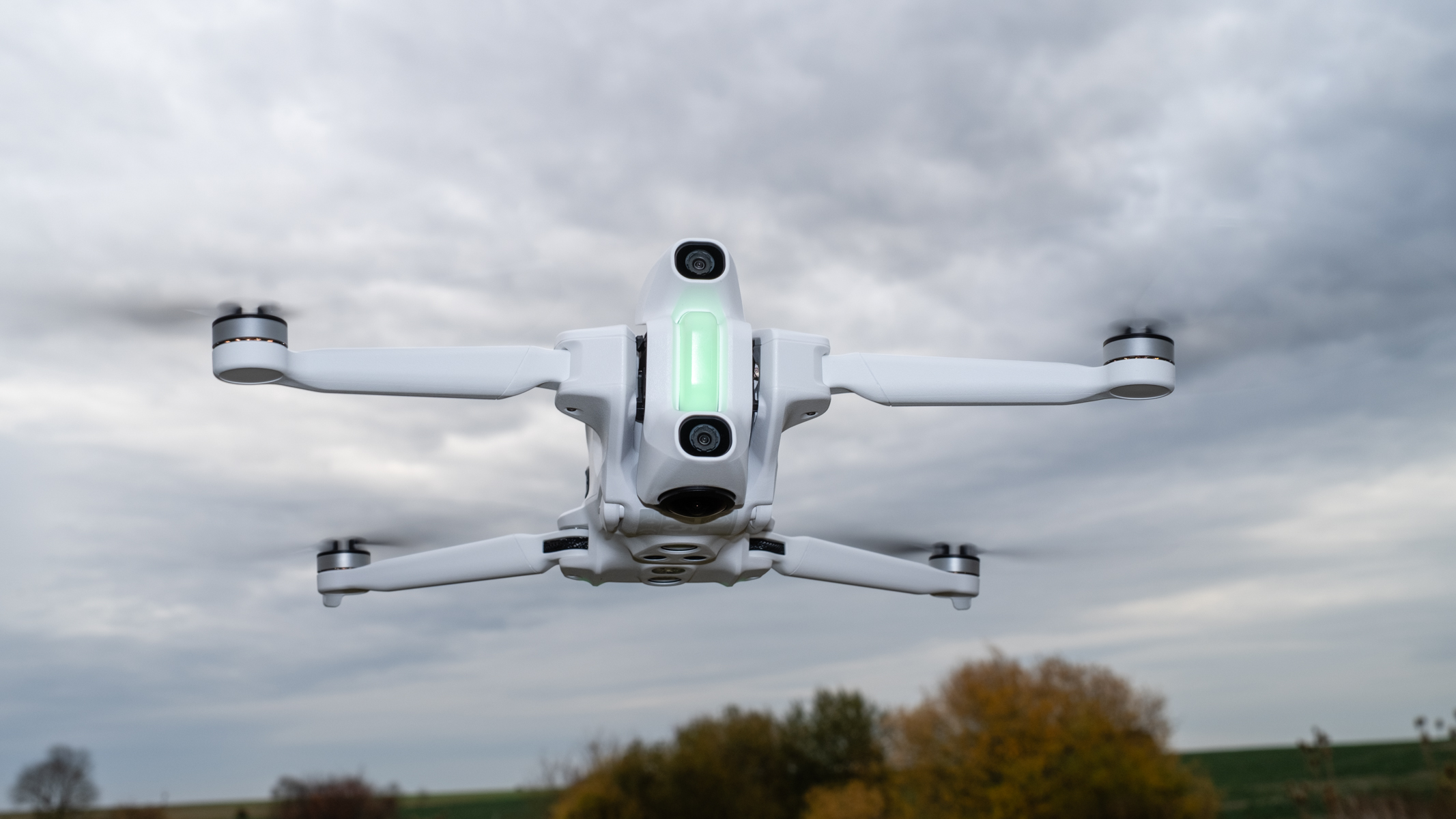
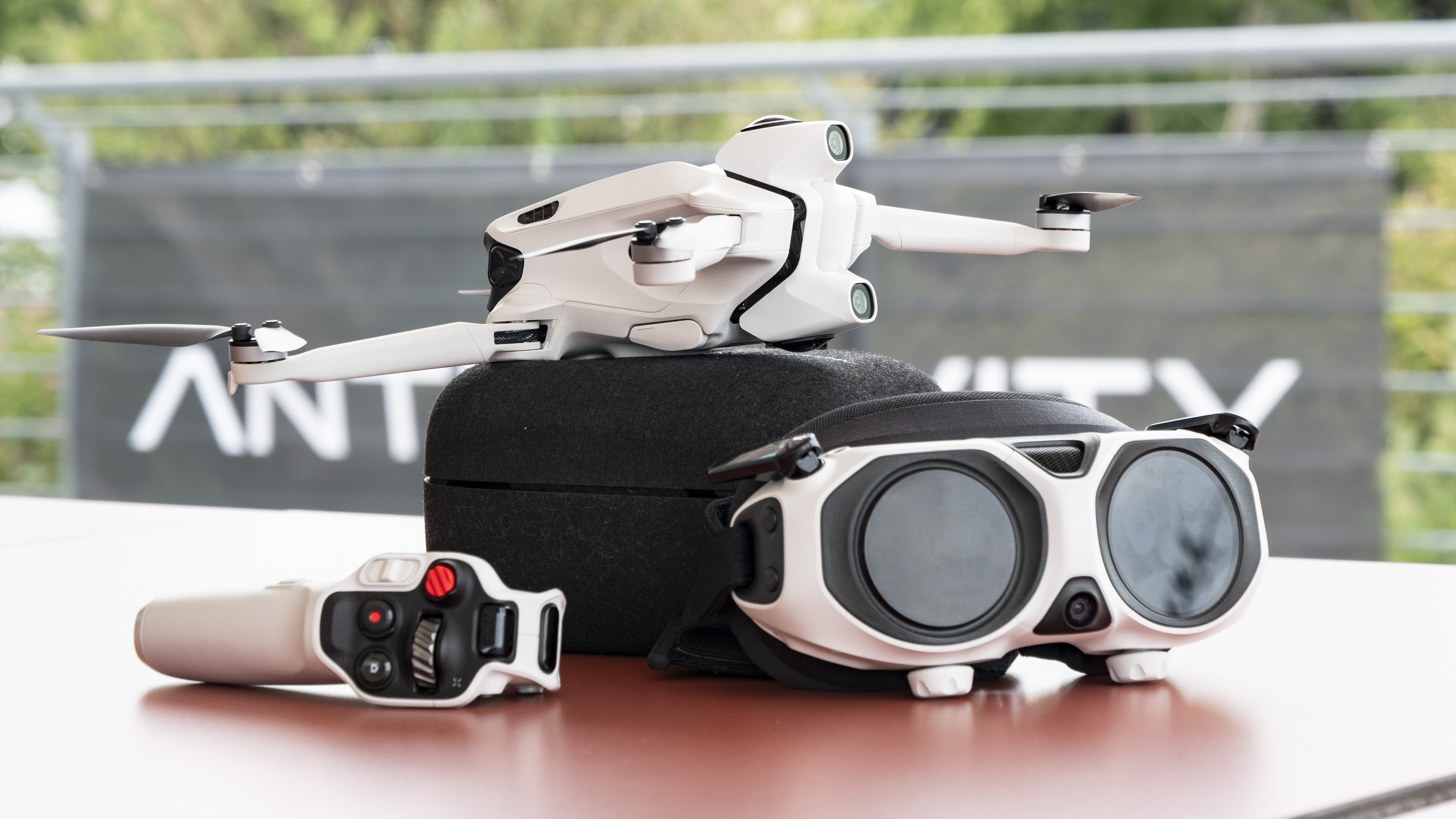
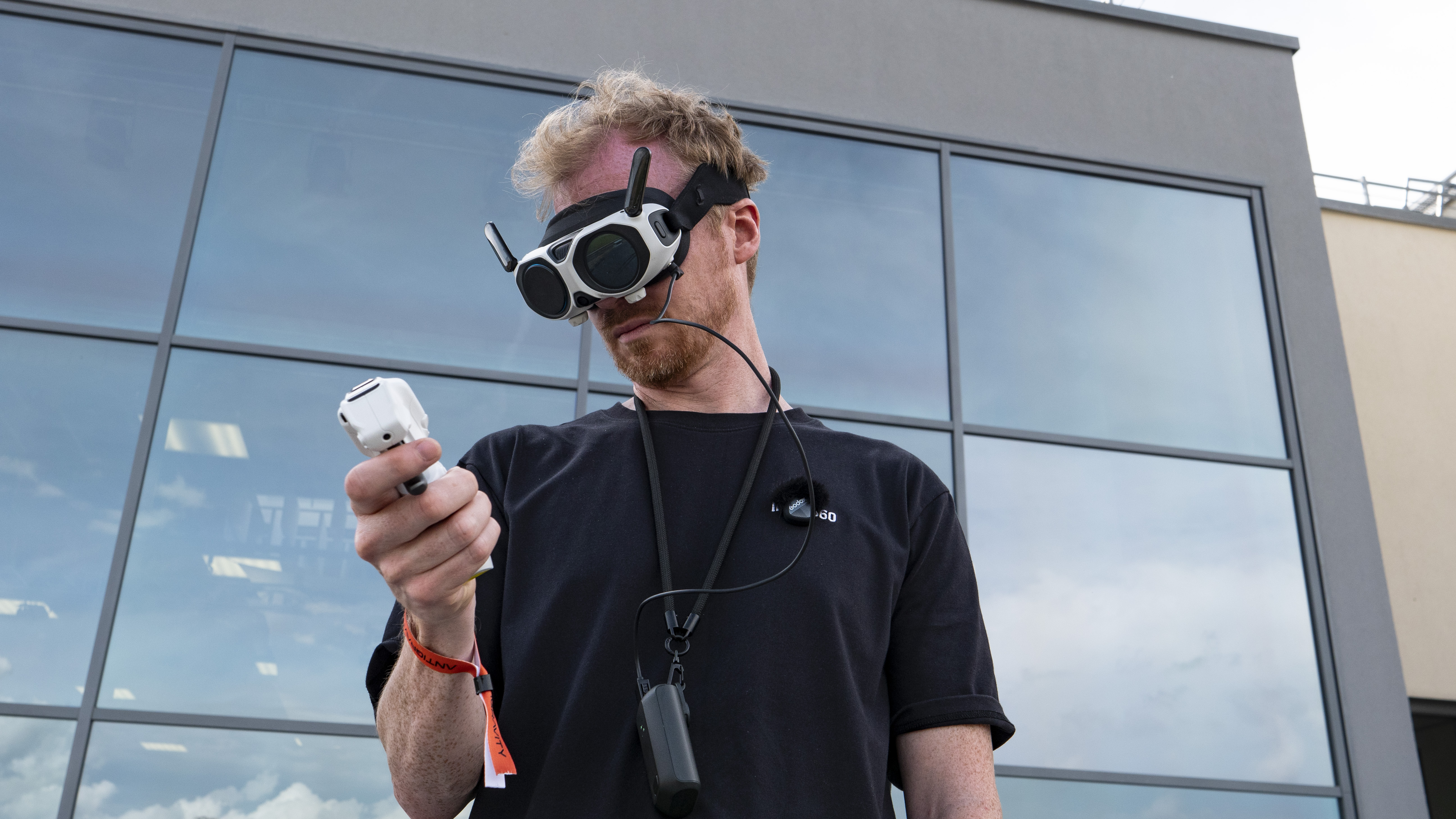
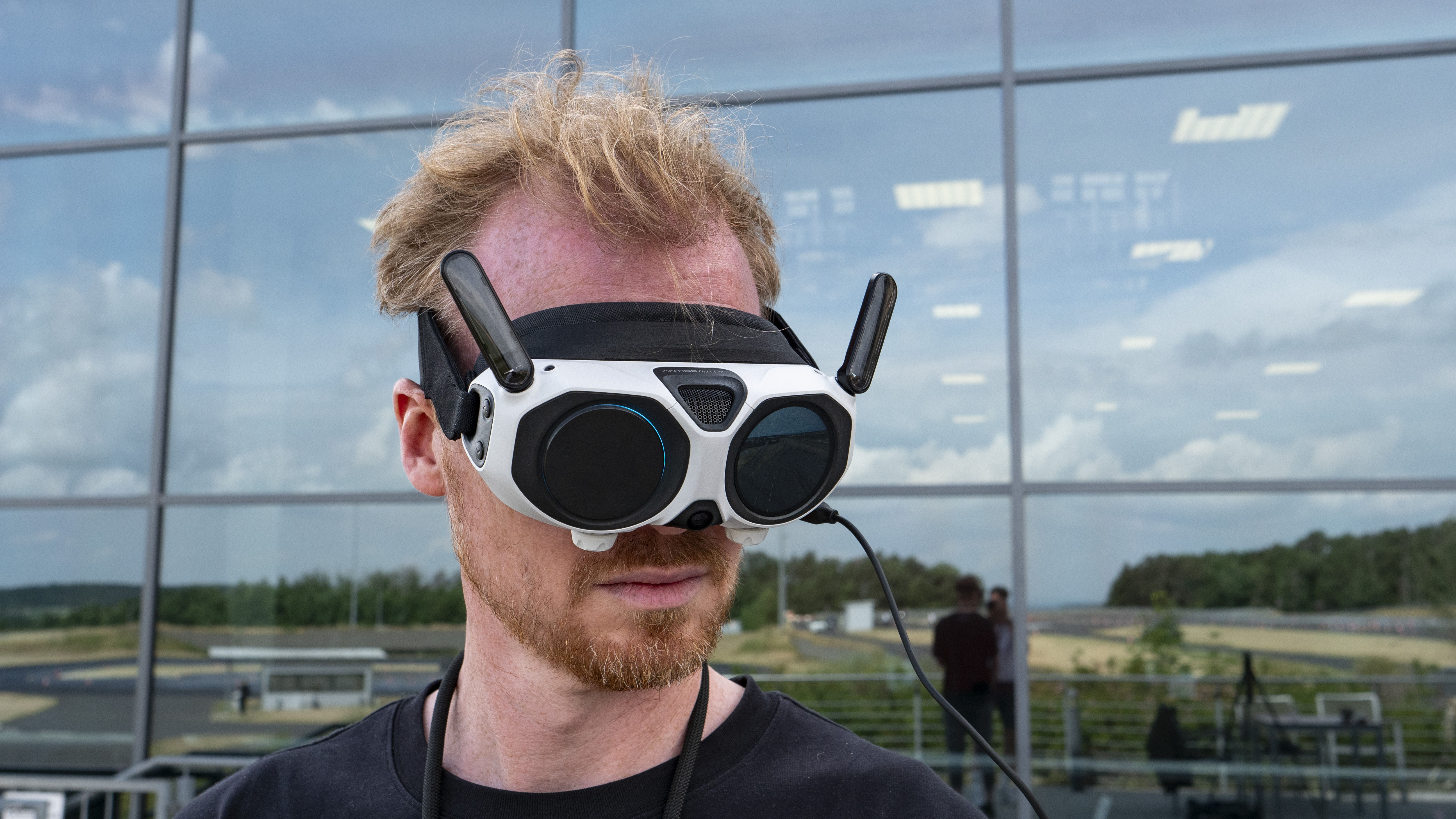
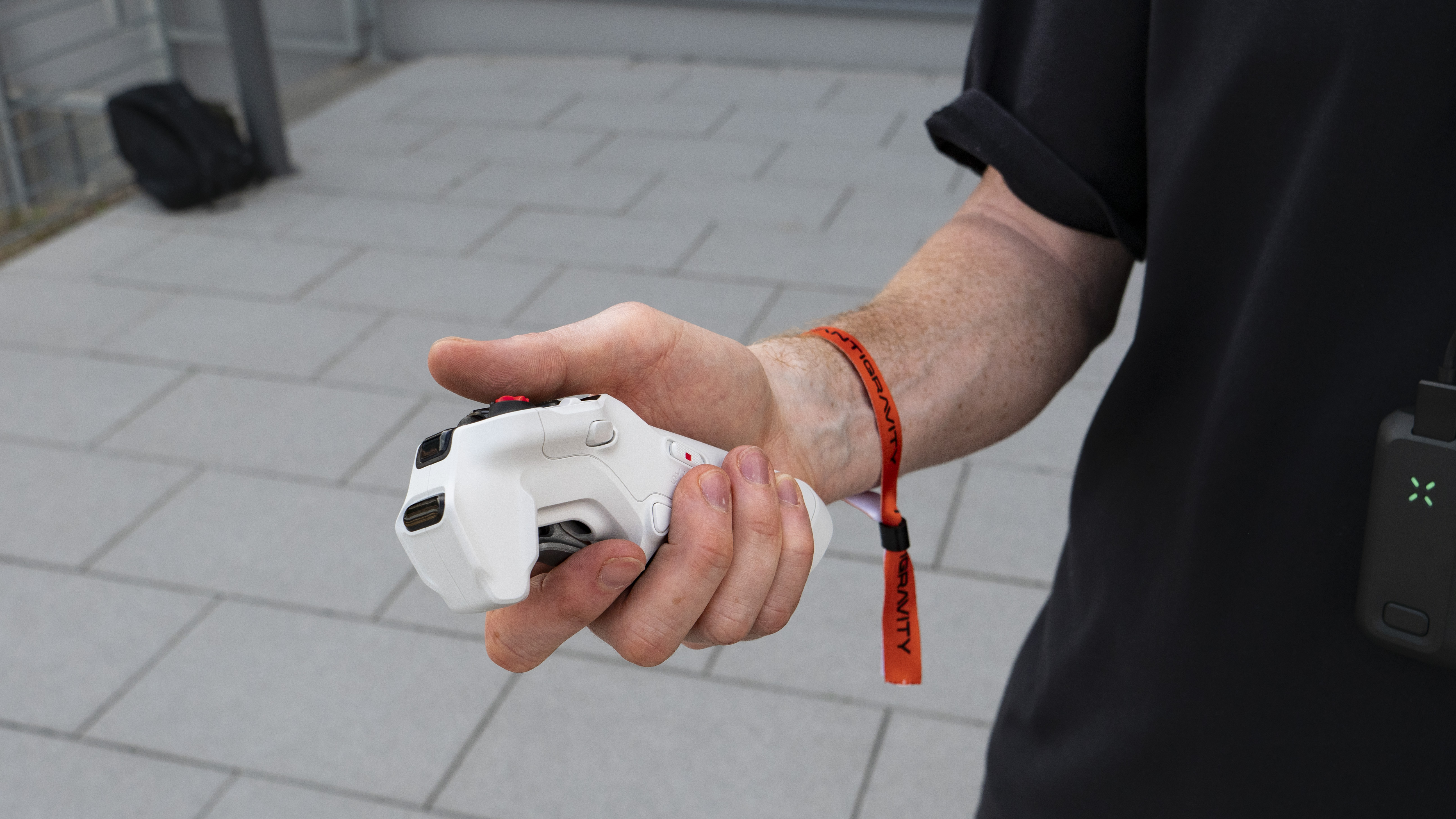
Specifications
Reasons to buy
Reasons to avoid
Antigravity A1 sample images
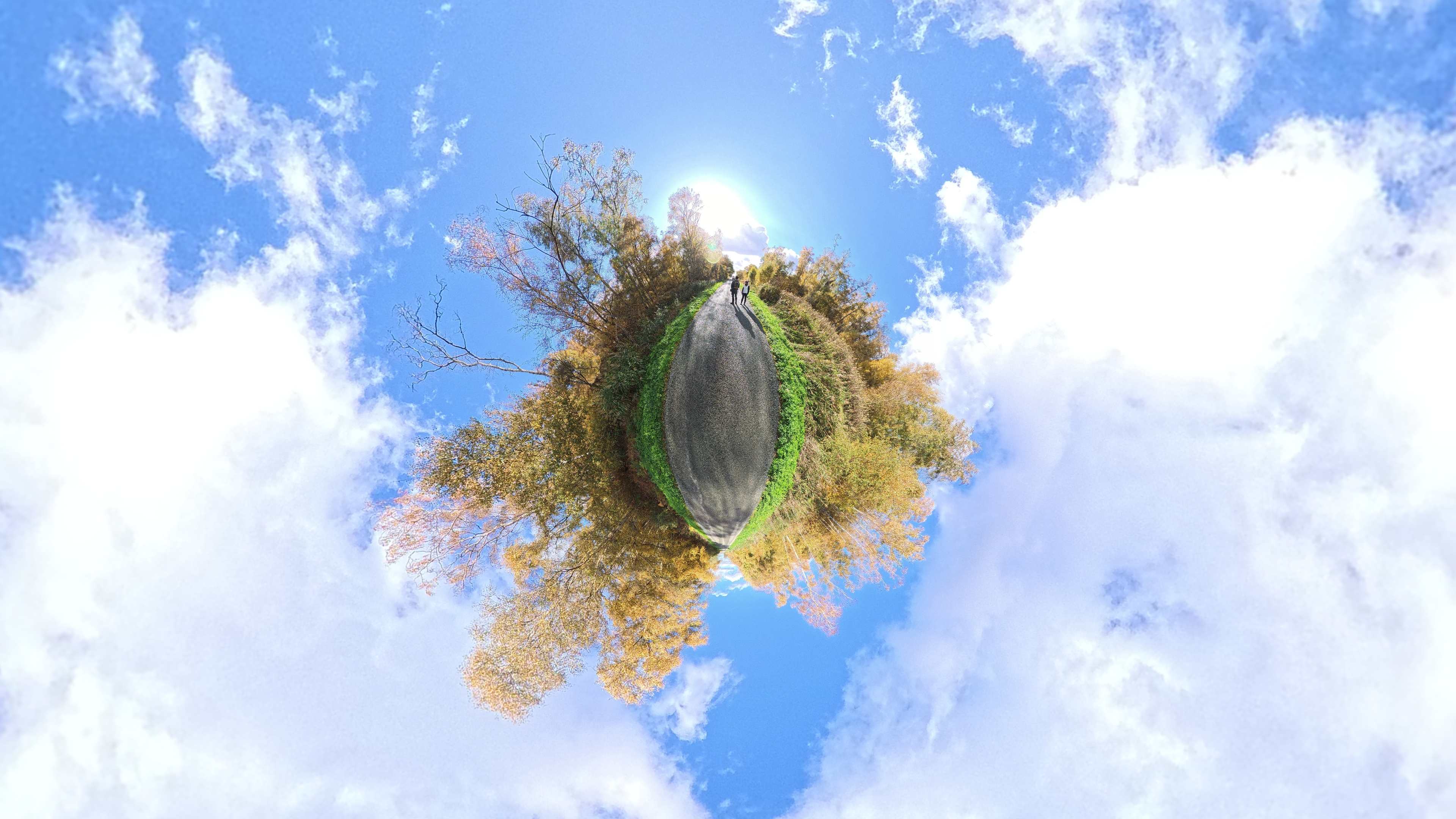
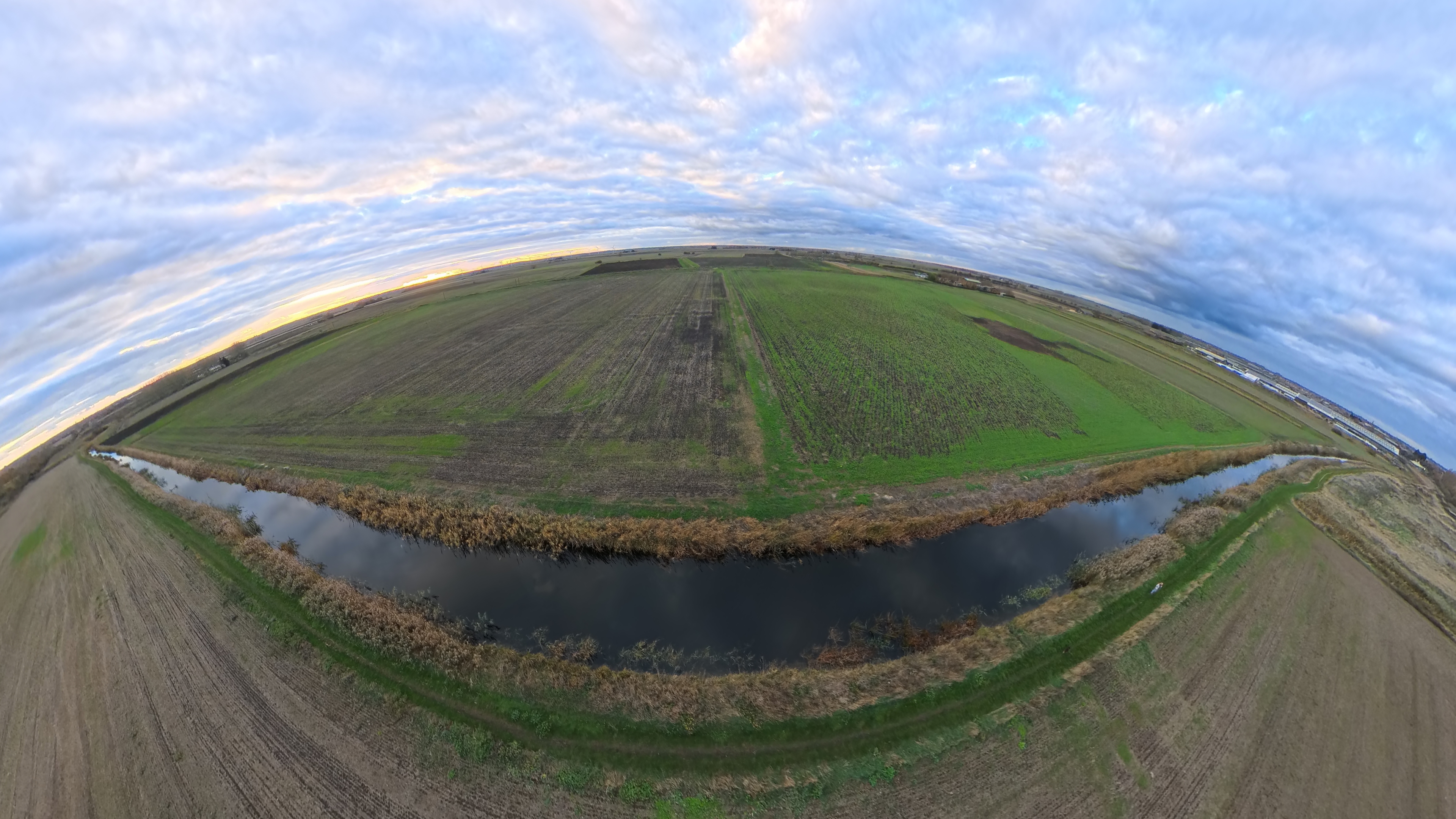
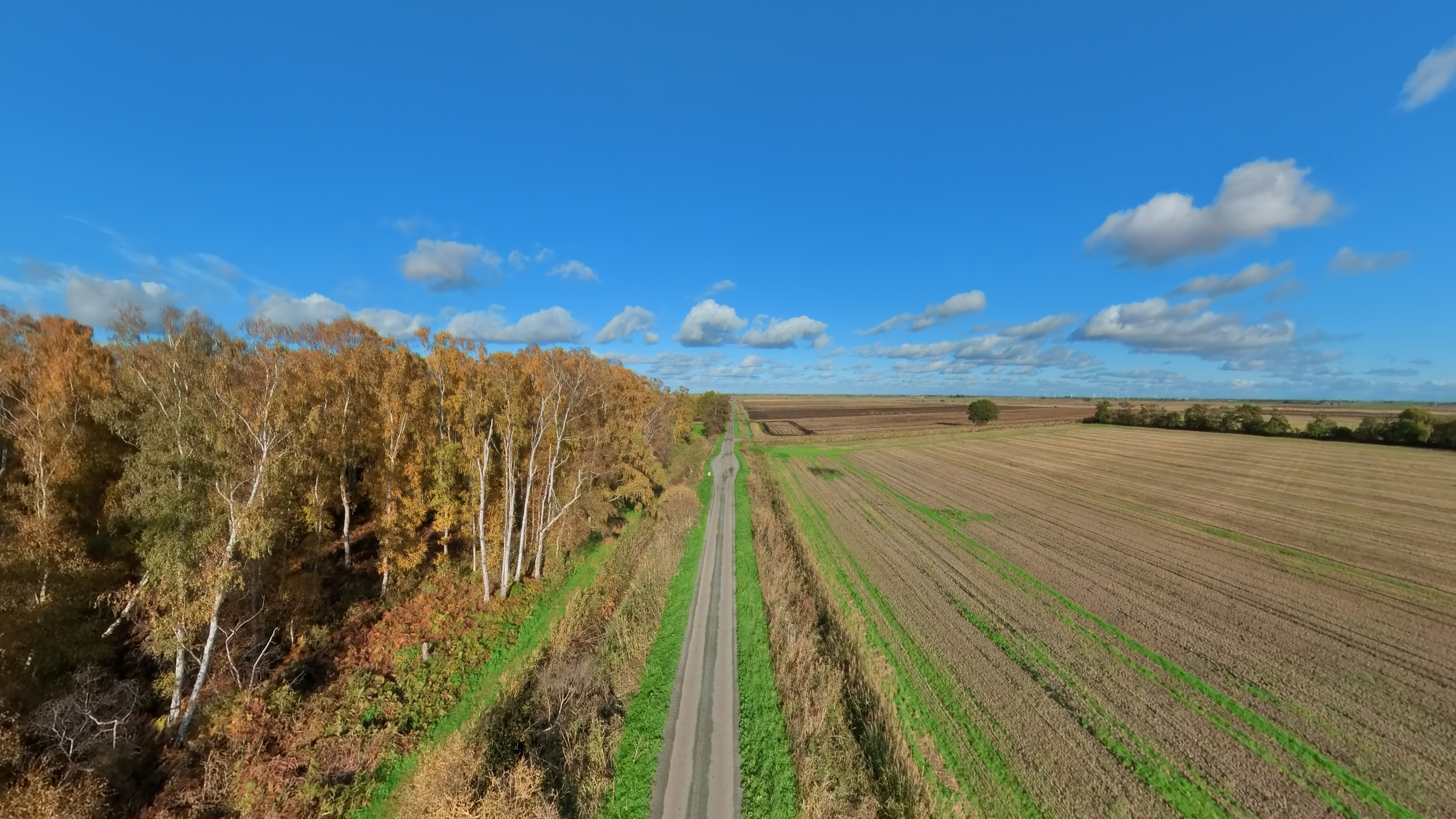
✅ You want immersive 360-degree aerial views: A first of its kind, the Antigravity A1 utilizes twin cameras for a complete view through a headset.
✅ You want an easy drone to fly: Once you're airborne, the A1 truly is an easy drone to fly and shoot immersive photos and videos with.
❌ You're a lone pilot: You'll need the headset to fly the A1, and legally that requires a spotter.
❌ You want flight thrills: The A1's top flight speeds are fairly pedestrian, especially when compared to FPV flight.
Antigravity broke onto the drone scene last year with the new A1 – the world's first true 360 drone with twin cameras; one facing up, the other down, for complete 360-degree aerial views and images. Incubated by Insta360, the Antigravity A1 is like an Insta360 X5 for the skies, equipped with 8K video (twin 4K cameras, with the 360 image stitched together). And it's these shoot first frame later skills that can elevate the quality of your aerial content, with some neat editing tricks that can mimic dynamic FPV flight moves.
During testing, we found the A1 incredibly easy to get going, truly immersive, and it really does work. It represents the biggest shake up in the drone market for many years, and is a welcome DJI alternative. The A1 wont be for everyone – it really needs the goggles and motion controllers, which makes for an expensive bundle. You'll also need a spotter present when flying the A1 using the goggles, while flight speed and agility is relatively pedestrian. However, if you want super immersive aerial views, this is the drone to pick.
Read our in-depth Antigravity A1 review
Also consider
Not every beginner drone could make the cut above, but there are a few alternatives we've tested which are also worth considering. Here are some honorable mentions for beginners:
Best multi-use – DJI Flip: The DJI Flip is a new breed of drone, designed for multiple use cases, with the ability to capture photos and videos in both beginner-friendly and more advanced formats. However, image quality sits at the beginner end of the scale, and if you don’t require the selfie drone capabilities, a standard folding drone like the Mini 4K is a better option.
Best entry-level Mini 4K alternative – DJI Mini 3: Less advanced than the Mini 4 Pro, the Mini 3 remains a strong choice for learners. Video is limited to 4K/30p and there are no collision avoidance sensors, but it’s still a small, lightweight drone that’s easy to fly at an affordable price. With no DJI Mini 4 on the market, it’s a great value option.
Best entry-level DJI Neo 2 alternative – HoverAir X1: Well-made, lightweight and easy to use, the HoverAir X1 uses intelligent tracking algorithms to capture automated 2.7K video of the user. It takes off and lands in the palm of your hand, making it a super-portable way to capture fun video selfies. Manual flight controls are limited in the app, so look at the HoverAir X1 Pro if these matter to you.
Best advanced DJI Mini 5 Pro alternative – DJI Mini 4 Pro: The DJI Mini 4 Pro lacks the 1-inch sensor and LiDAR that make it successor the Mini 5 Pro so appealing, but it remains a very strong all-rounder in the sub-250g category thanks to solid camera performance and omni-directional obstacle avoidance. And it is actually sub-250g, unlike some DJI Mini 5 Pros!
Best value – DJI Neo: for the time being, the recently supplanted DJI Neo is excellent value with deals bringing it to a record-low price, much cheaper than the new Neo 2 above. For the low down on how the models compare, check out our DJI Neo 2 vs DJI Neo article.
Best premium DJI alternative – Autel Evo Nano+: The Autel Evo Nano+ takes on DJI's Mini 4 Pro in the sub-250g category. That's no easy task, with the latter being so close to perfect. But to its credit, the Evo Nano+ holds up as an impressive beginner drone in its own right. nb. this drone is discontinued.
Upcoming drones
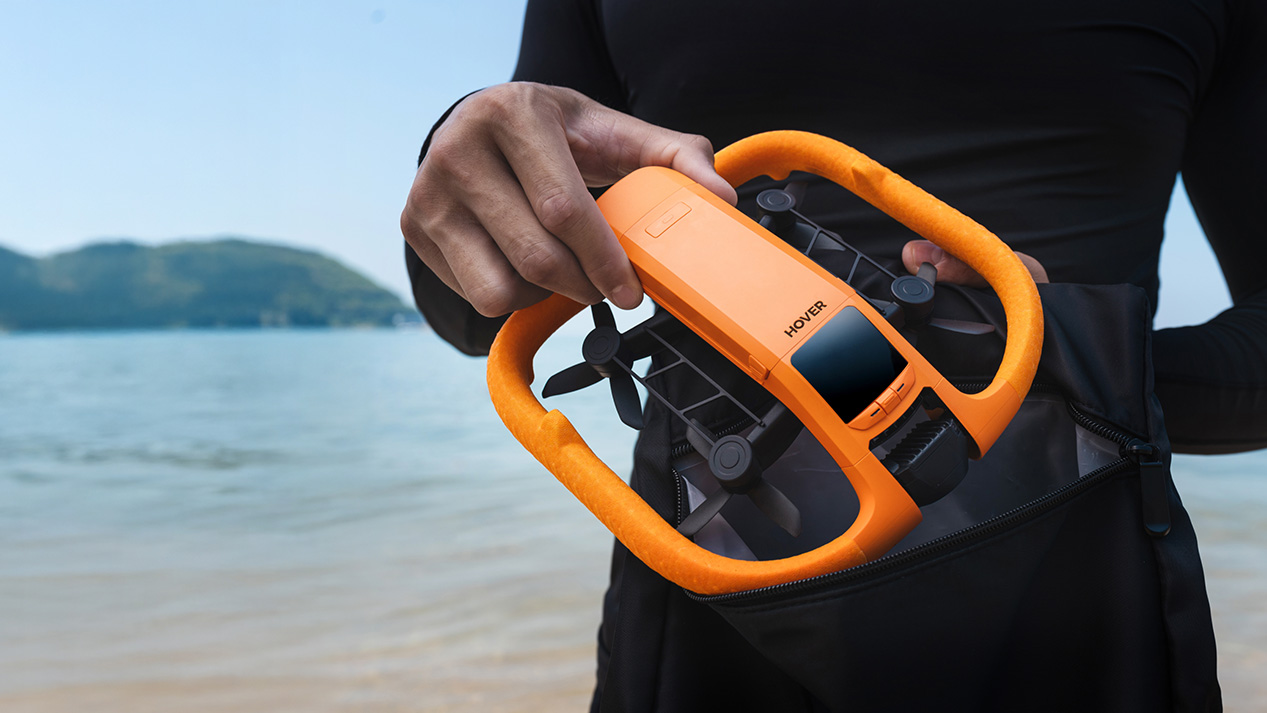
• HoverAir Aqua
• V-Copter Falcon Mini
• DJI Avata 360
There are two upcoming beginner drones by Zero Zero Robotics that have already been announced: the unique HoverAir Aqua and V-Copter Falcon Mini. Both are sub-249g in weight and we are in the process of testing them, so watch this space.
The HoverAir Aqua is a pioneering product, being the first 100% waterproof self-flying consumer drone. Designed for capturing watersports and similar activities, it can float on water and operate in conditions that would leave most drones a soggy wreck. It's currently available to pre-order via a crowdfunding campaign, ahead of a late-2026 launch. This timing might mean that it never takes off in the US, following a ban on the sale of future foreign drones.
The V-Copter Falcon Mini is the world's first 'bi-copter' drone, announced last year, and its makers promise faster acceleration, unmatched agility and quieter flight than all of the traditional quadcopter drones in this guide.
We also keep a close eye on the online rumor mill and, with most drones being leaked in some way, shape or form ahead of their official launch, it’s not often that one appears out of nowhere with no prior warning.
One rumored drone we're very interested in is DJI's apparent answer to the Antigravity A1, the so-called Avata 360. This would be DJI's third Avata model, suggesting it's an FPV drone, but would offer full 360º camera coverage thanks to the same 1/1.1-inch sensors used on the recently launched DJI Osmo 360 action camera. One potential party trick up its sleeve could be its ability to switch between 360 cameras and a single camera setup with FPV skills.
How to choose the best beginner drone
What are the best beginner drone features?
Beginner drones come in a range of shapes and sizes, but the best models all share a few key features. If you’re just starting out, then a slick companion app will be invaluable – some of the best I've tried are from DJI and HoverAir. A drone that’s happy to hover in place will also allow you to carefully learn the controls and understand how sensitive it is to commands. A few of the drones above, such as the DJI Mini 4K, also feature preset flying tricks that allow you to easily capture Hollywood-style shots, which can produce impressive results with just a little bit of practice.
What’s the best beginner drone for videography?
If you’re looking for a beginner drone with a camera, then bear in mind that you’ll need to spend a bit more to get genuinely usable footage. Look for a drone with a camera that has 4K video. A low-resolution sensor like the 720p one found on the Ryze Tello is fine for learning the basics, but you’ll need to spend at least $350 / £200 / AU$550 to get a really high-quality camera, such as the DJI Mini 4K.
What’s the best beginner outdoor drone?
It’s important to think about where you’re most likely to fly your drone. If you’re happy to stay indoors or in sheltered spots near your home, then a small, toy model (like the Ryze Tello) will be fine. But for more ambitious flights, you’ll need a drone that can withstand gusts of wind and a few crash landings, like the Potensic Atom 2 with its level 5 wind resistance. Drones with obstacle avoidance sensors, such as the DJI Mini 4 Pro, are the safest to fly outdoors, but these usually come at a premium.

Do I need a license to fly a drone?
Drone laws mean that taking to the sky is tightly regulated. This is to ensure that the skies remain safe for everyone, especially around sensitive locations such as airports and national parks. Drone laws also try to address privacy concerns when camera-equipped drones fly in residential areas.
In many regions, like the US, drones that weigh below 250g do not need to be registered with the FAA (Federal Aviation Administration). You'll still need to follow all the local drone laws, such as keeping your drone within line of sight at all time, but registration commonly isn't required.
This isn't the case in all countries, though. In the UK, drones weighing less than 250g used to be exempt from registration requirements. This has now changed, so that owners of any drone with a camera will need to register their flying machine with the Civil Aviation Authority and get an Operator ID. You can do this for a fee of £11 per year, provided you’re 18 or over.
If your drone weighs more than 250g, you’ll also need a Flyer ID. To get this, you’ll need to take an online test consisting of 40 multiple-choice questions. The answers can all be found in the Drone Code and should help to ensure that you’re a safer flyer. The UK's drone laws are ever-changing – here's the guidance as of January 2026.
If your drone weighs less than 250g and does not have a camera, you won’t need either ID. But you’ll still need to check that you’re piloting your drone in line with the UK’s drone laws. According to the Drone Code, that means keeping eyes on your drone at all times, not flying higher than 120m above the ground and staying at least 150m away from built-up areas. And you’ll need to avoid restricted airspace, which is usually around airports.
Sign up for breaking news, reviews, opinion, top tech deals, and more.

Tim is the Cameras editor at TechRadar. He has enjoyed more than 15 years in the photo video industry with most of those in the world of tech journalism. During his time as Deputy Technical Editor with Amateur Photographer, as a freelancer and consequently editor at Tech Radar, Tim has developed a deeply technical knowledge and practical experience with cameras, educating others through news, reviews and features. He’s also worked in video production for Studio 44 with clients including Canon, and volunteers his spare time to consult a non-profit, diverse stories team based in Nairobi. Tim is curious, a keen creative, avid footballer and runner, and moderate flat white drinker who has lived in Kenya and believes we have much to enjoy and learn from each other.